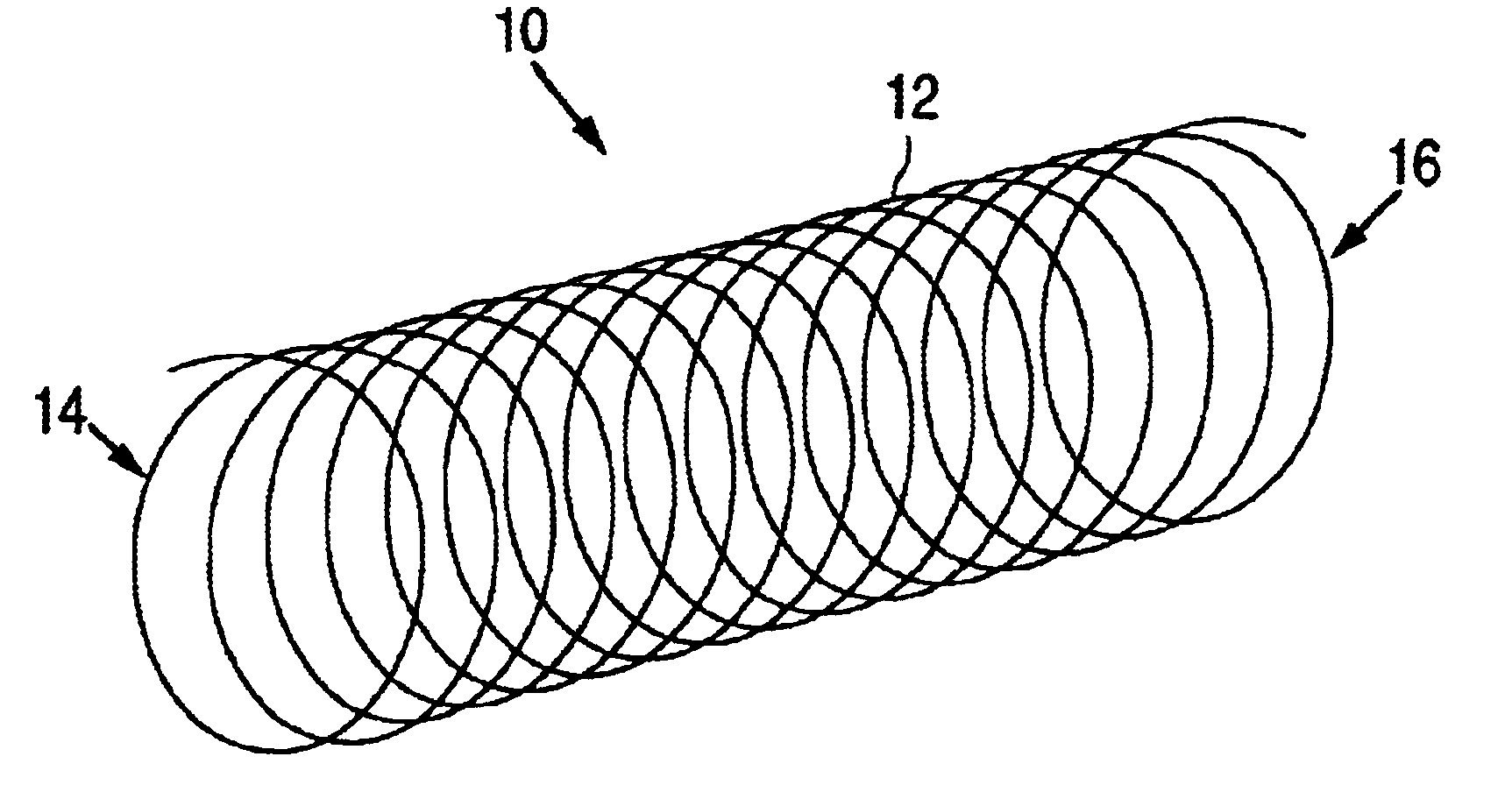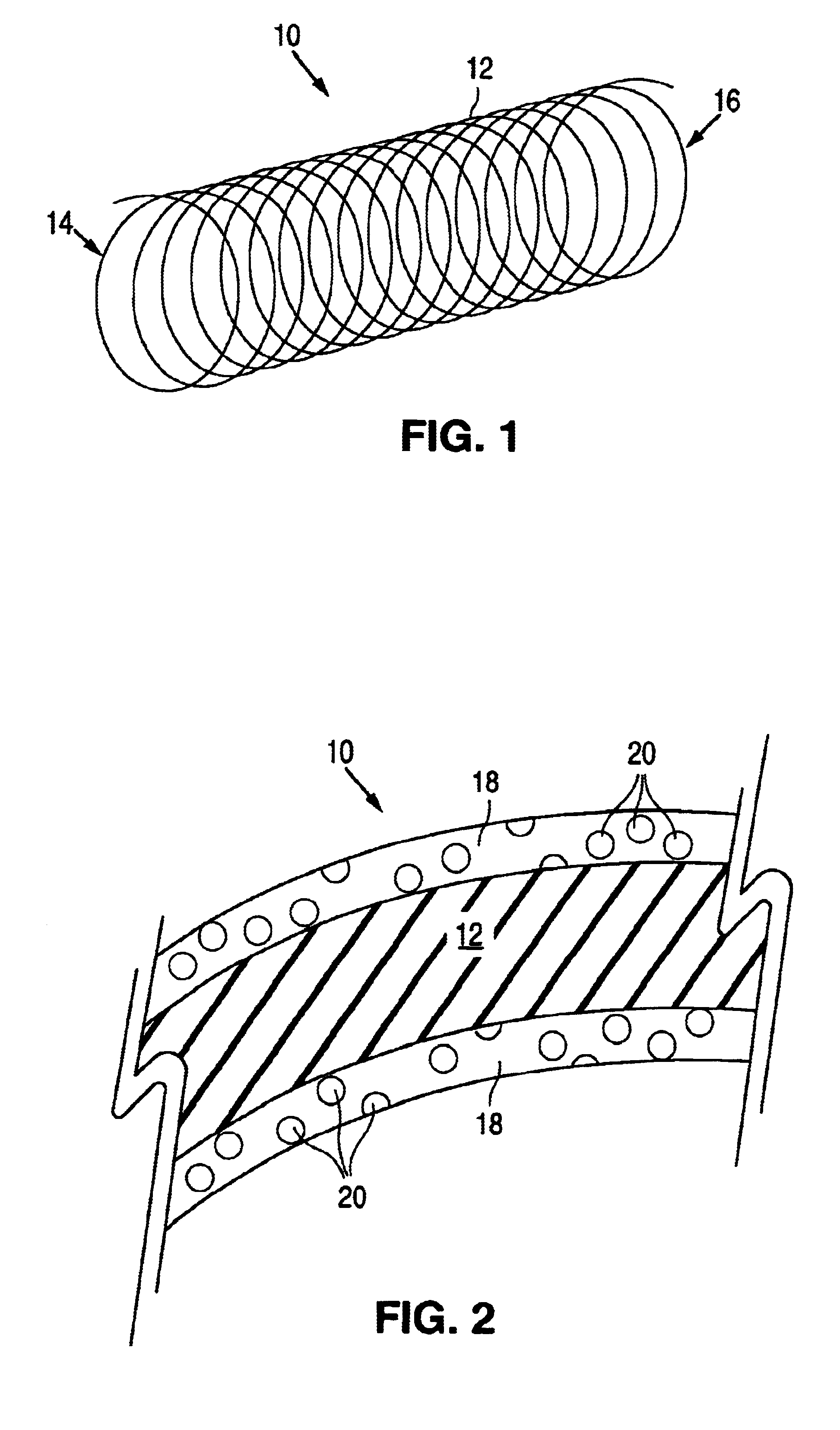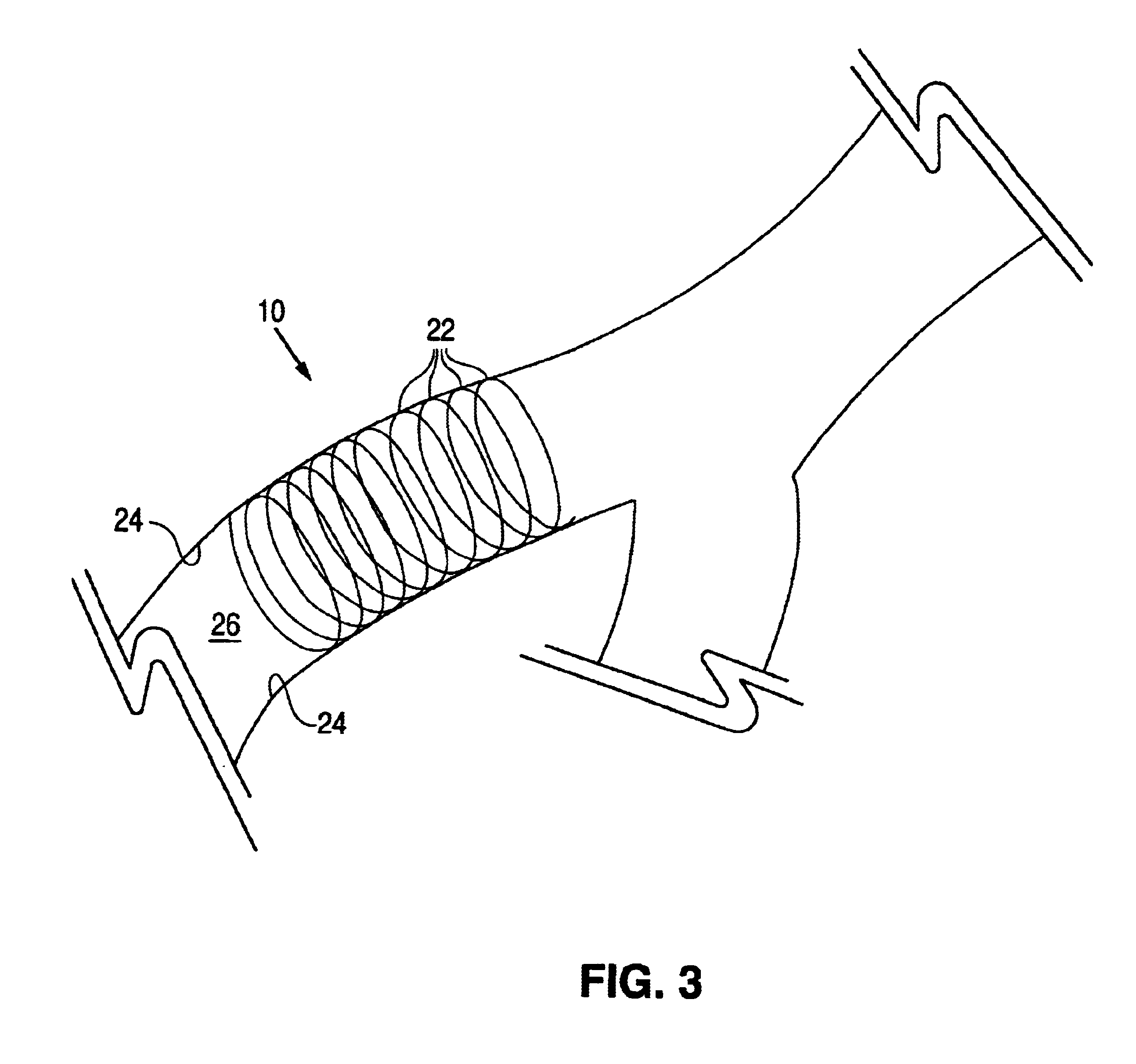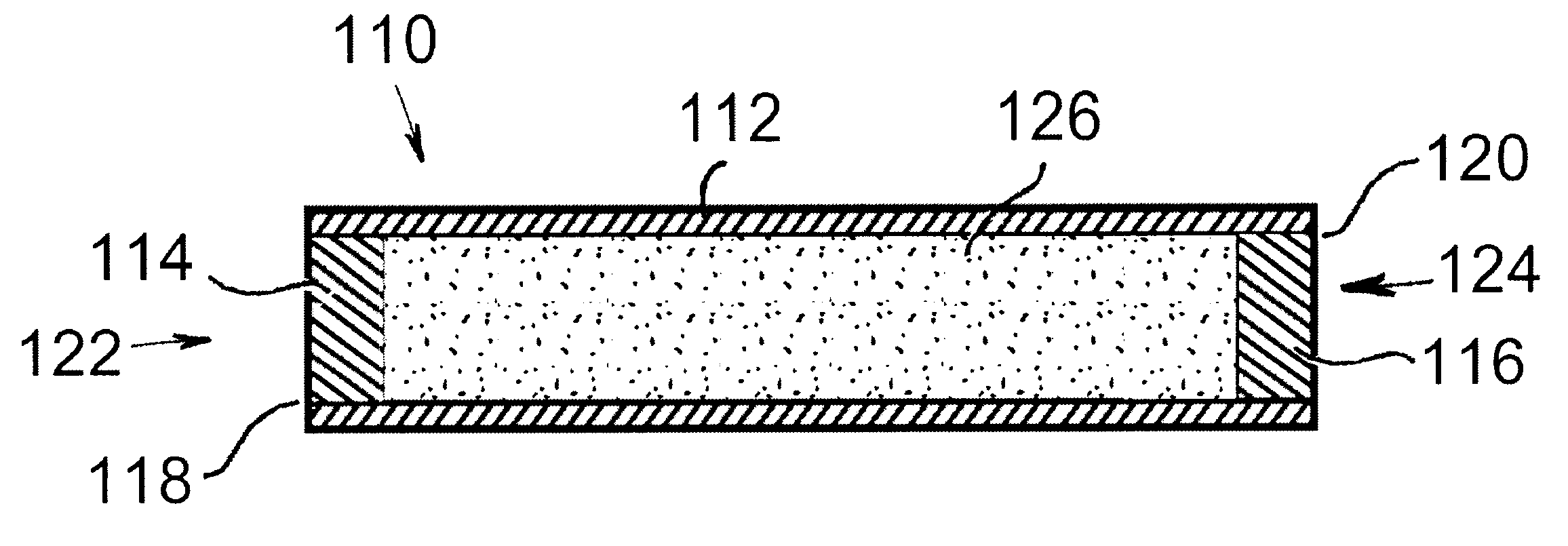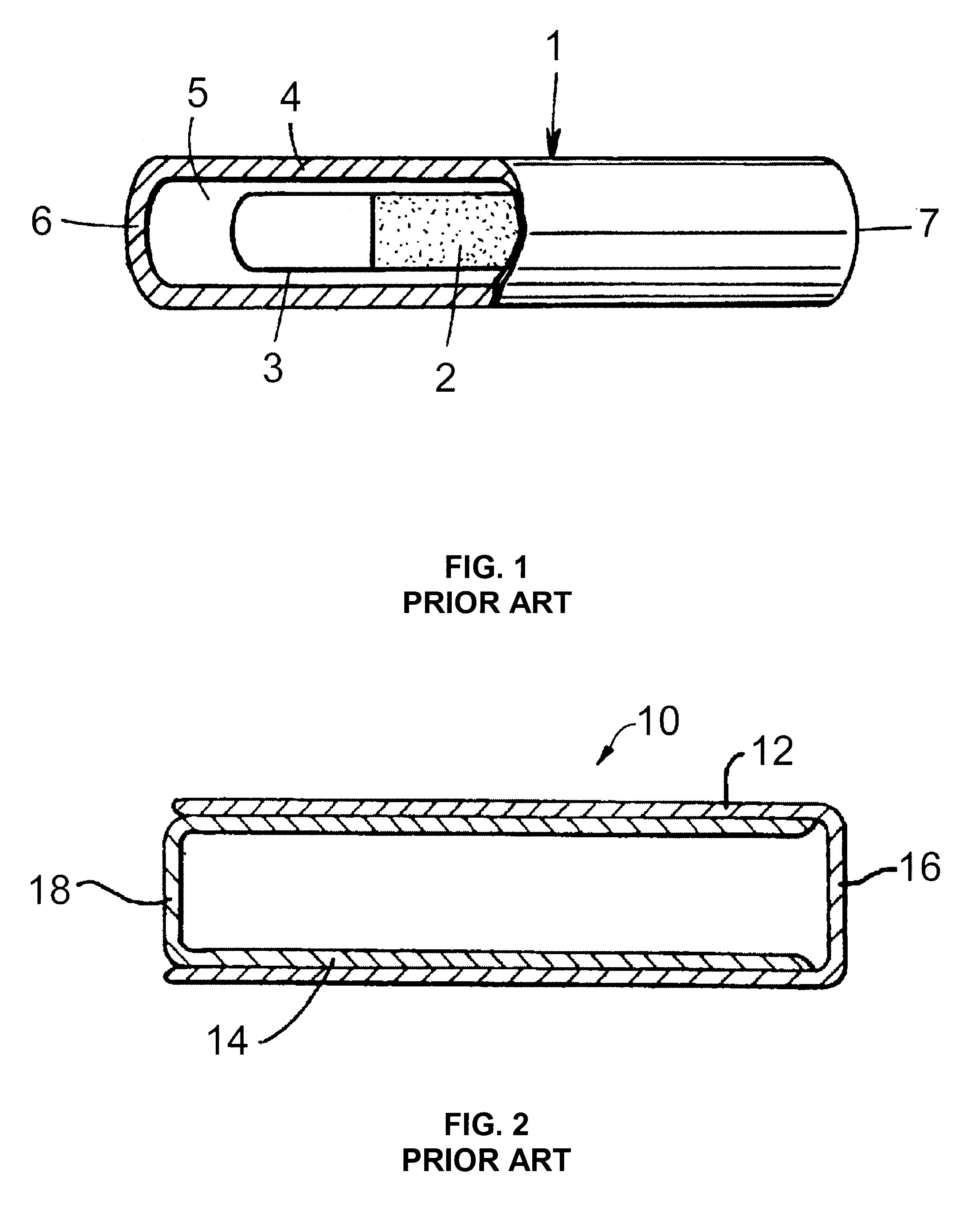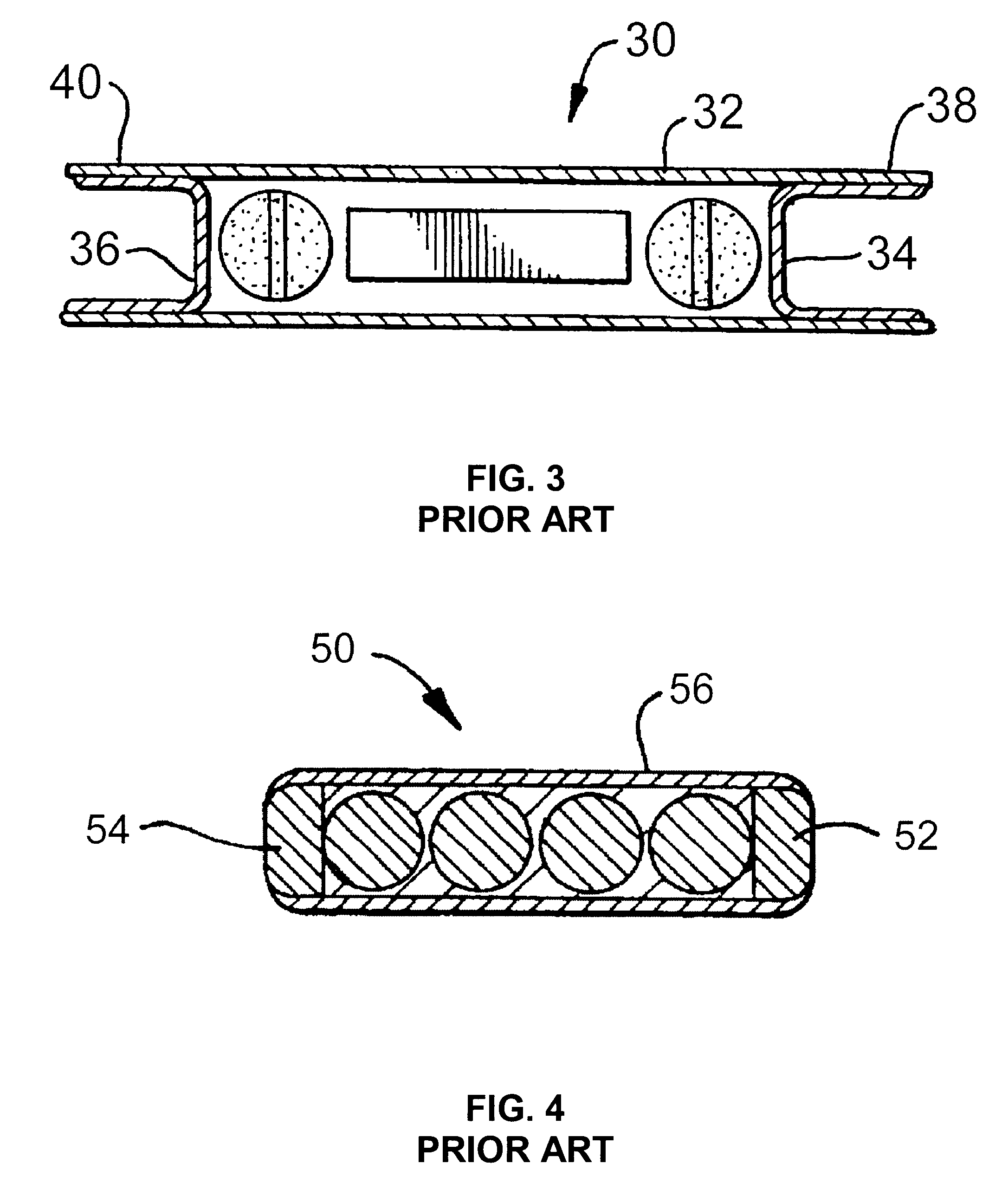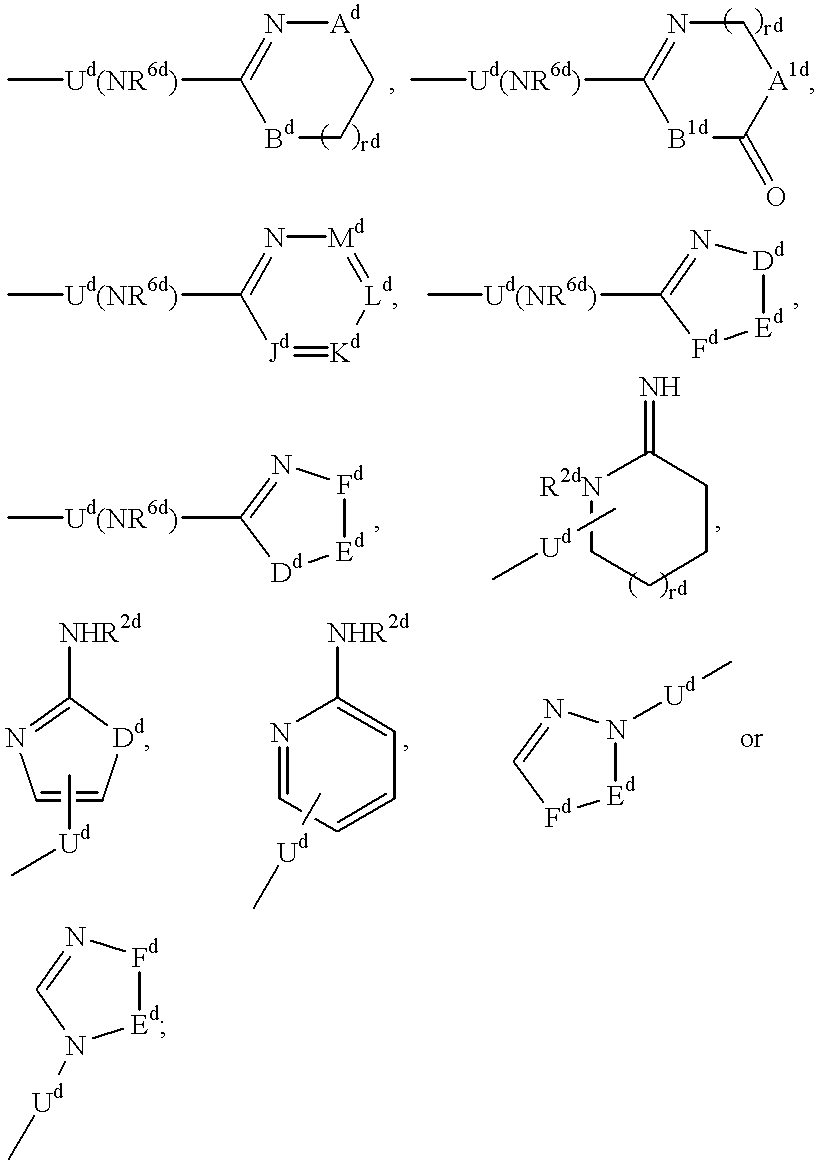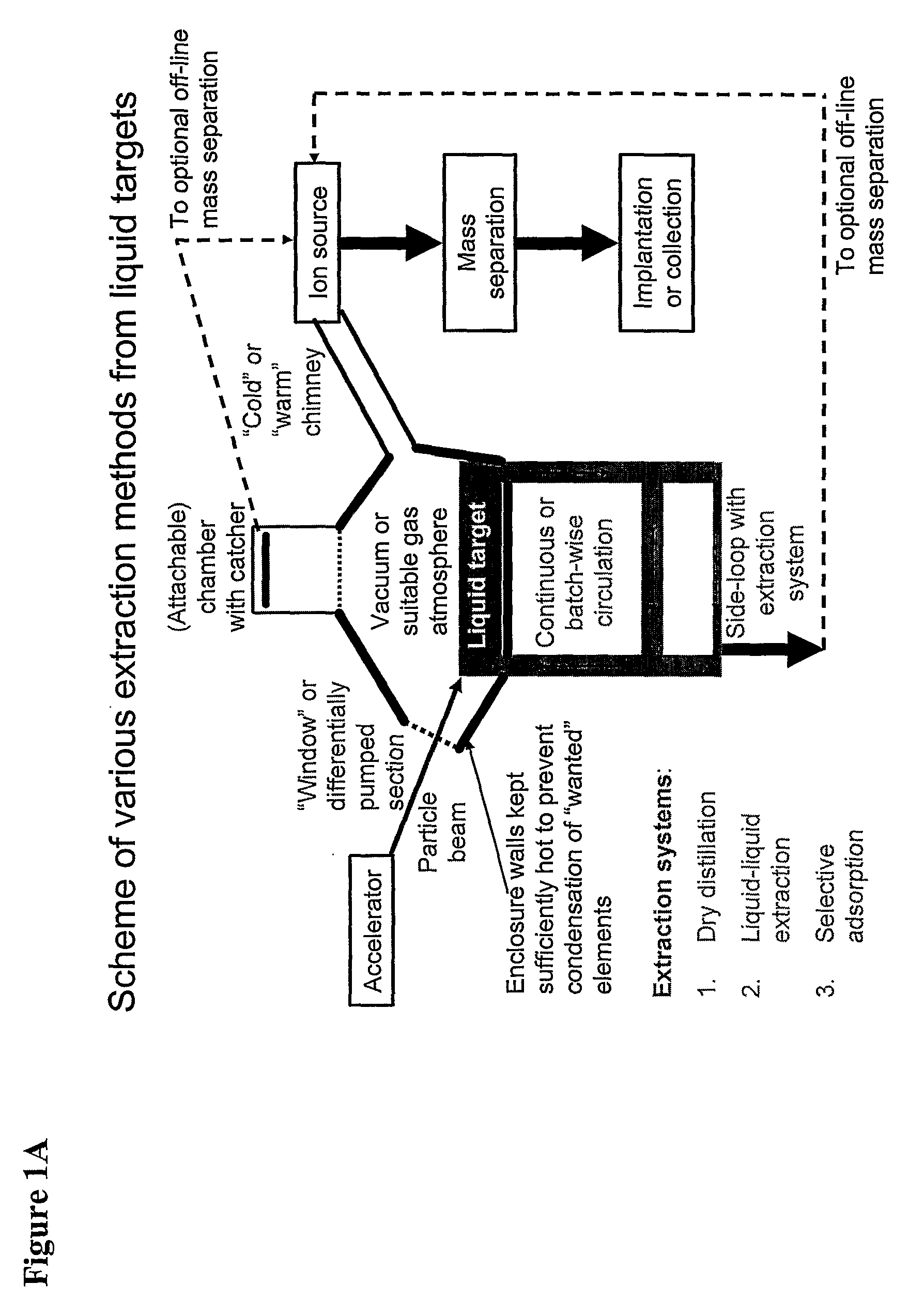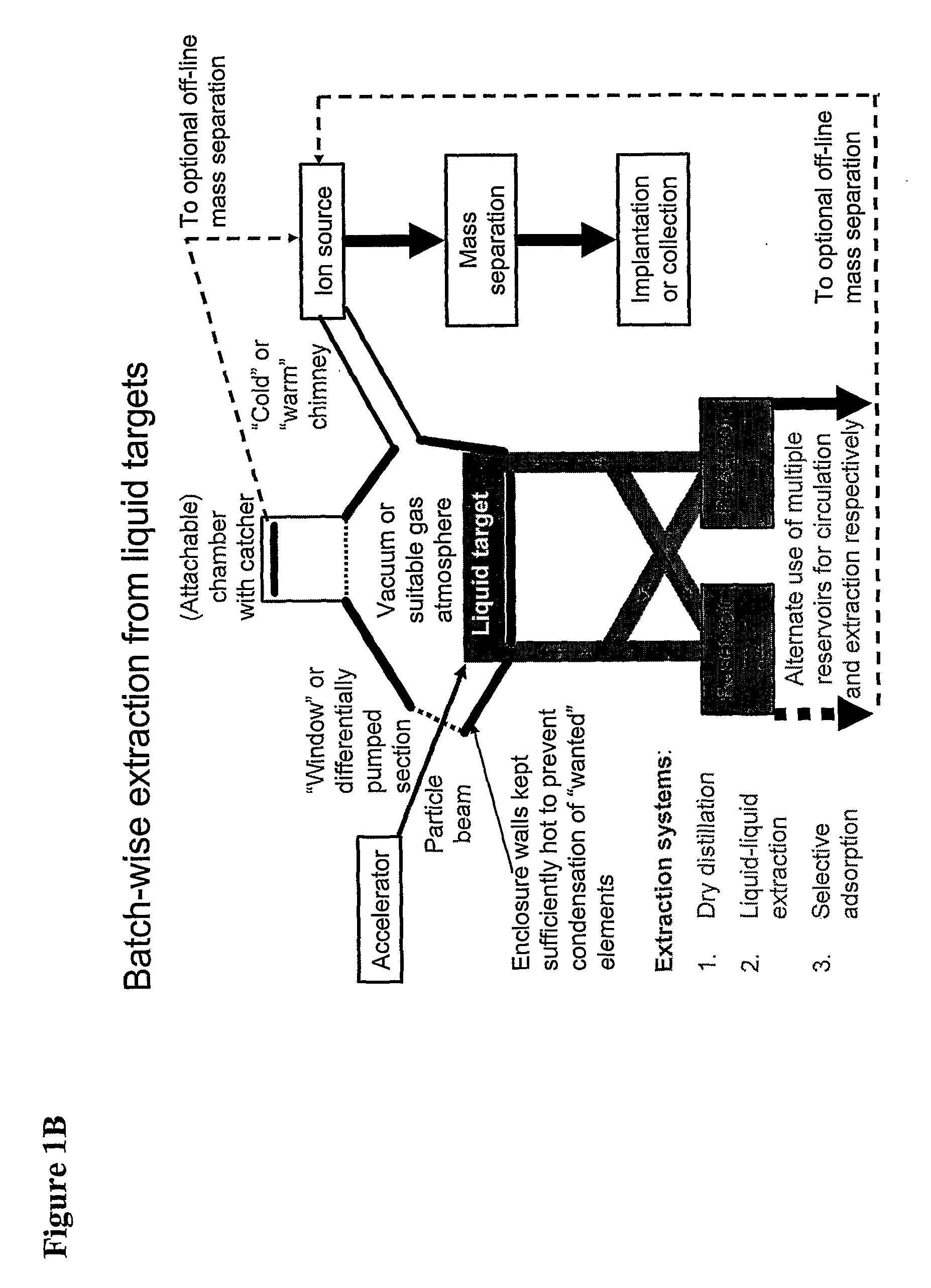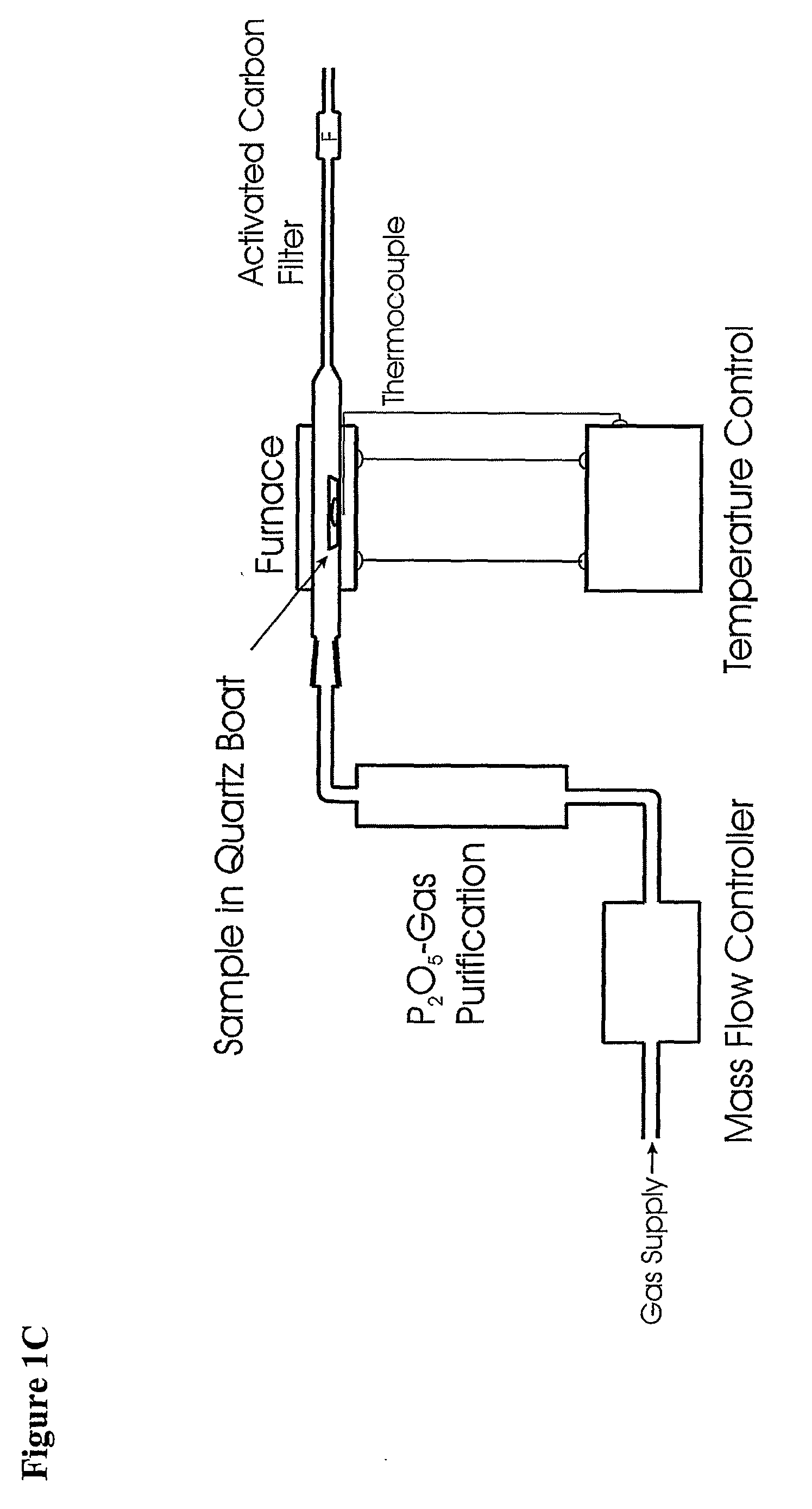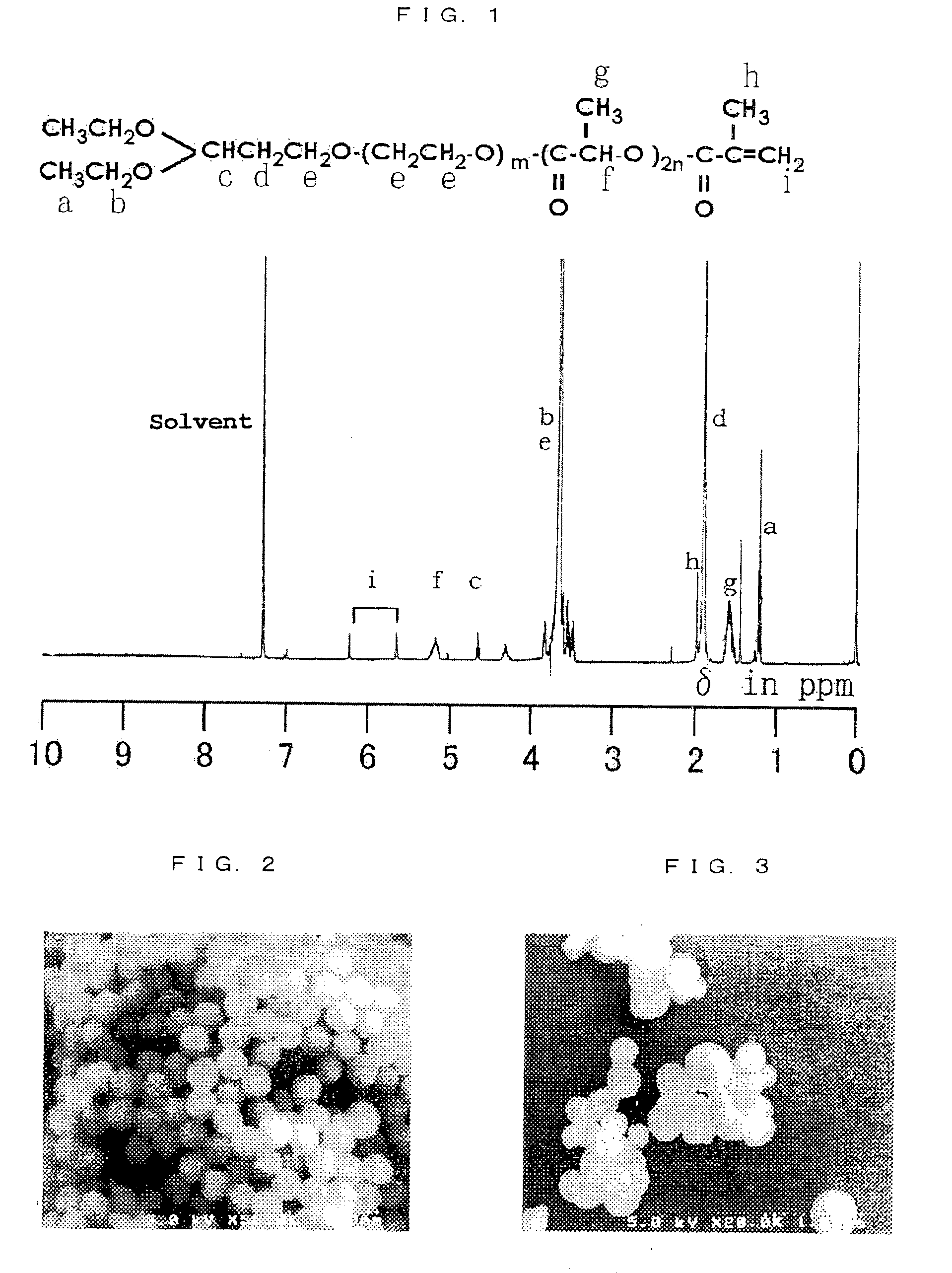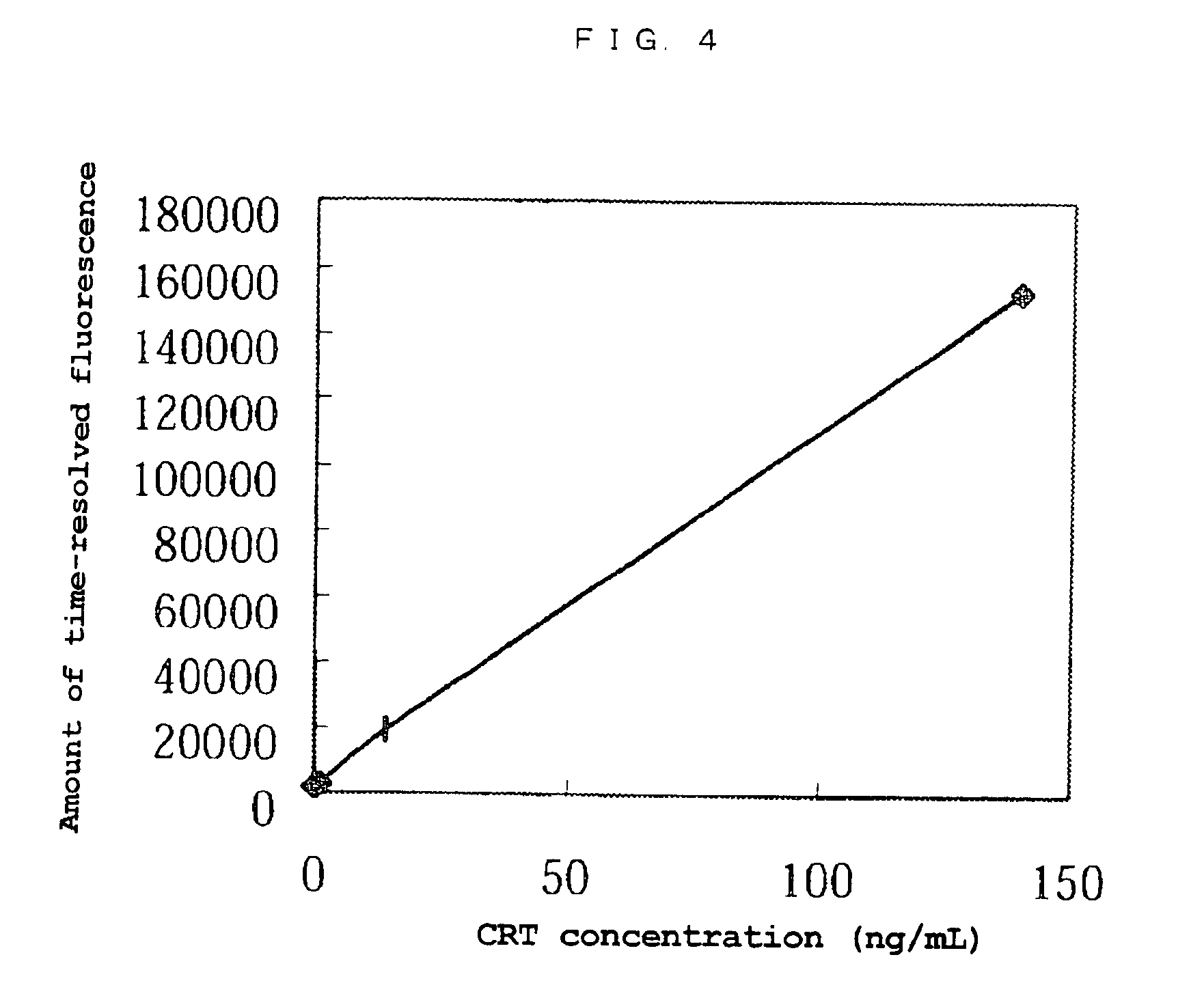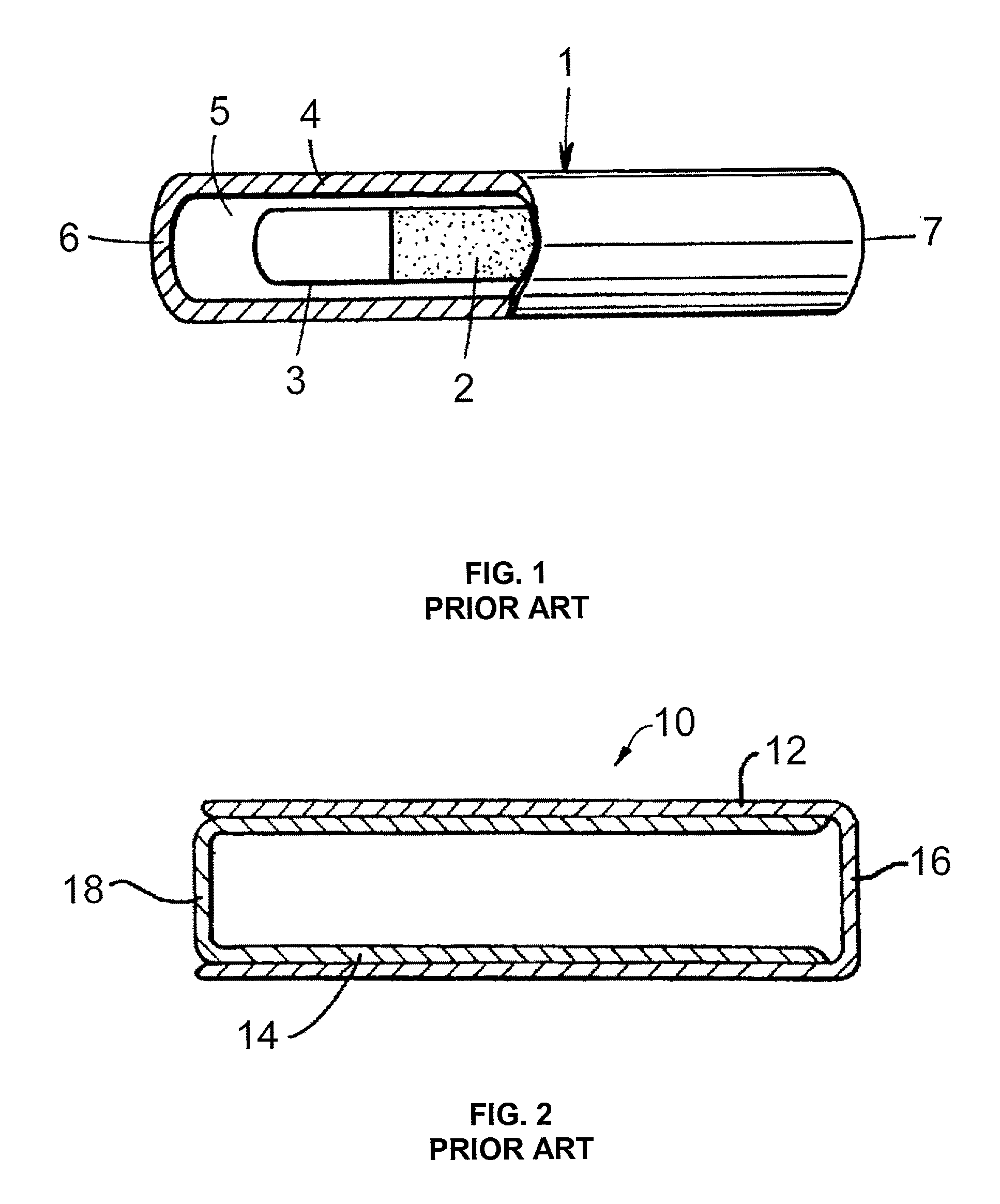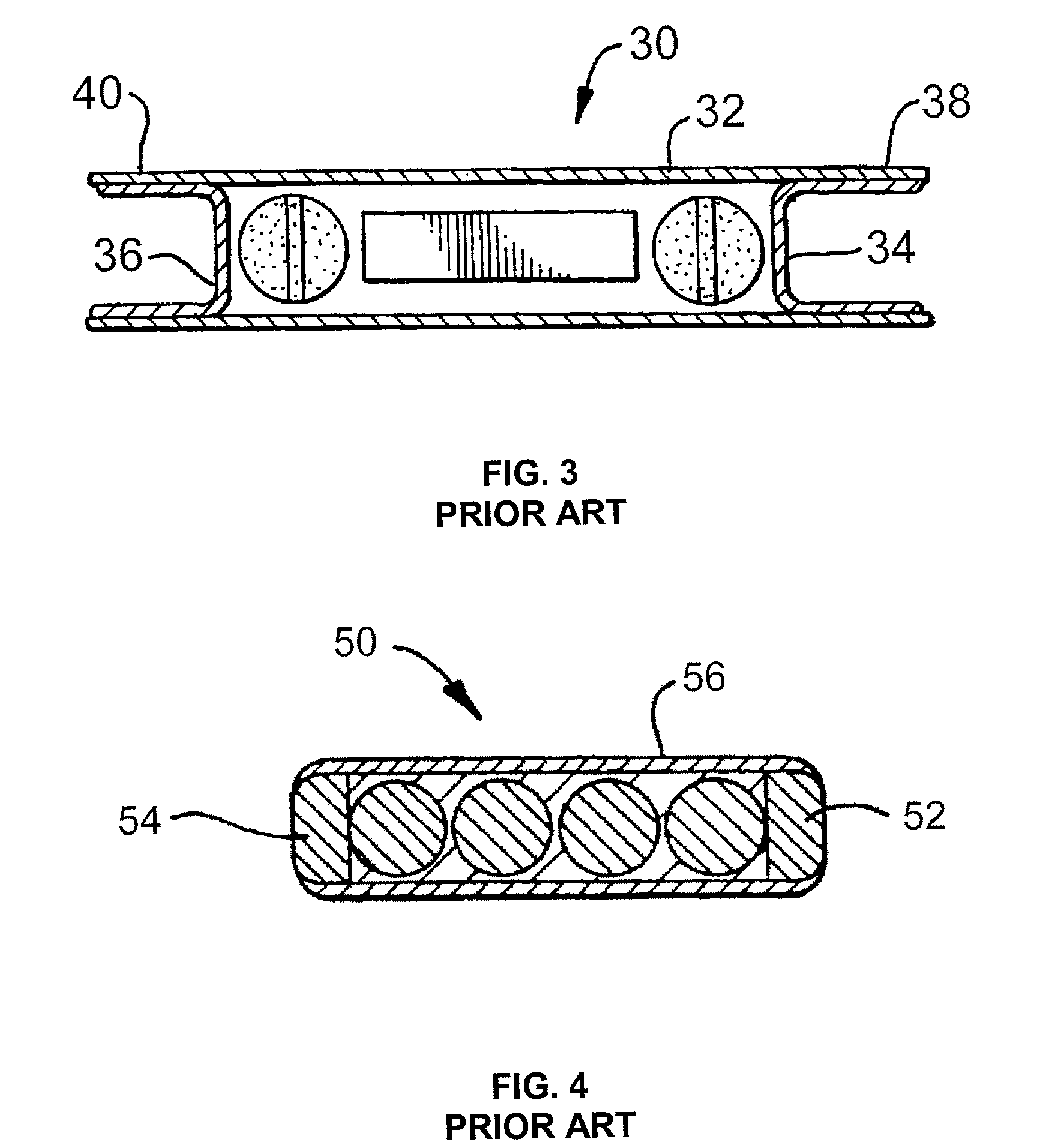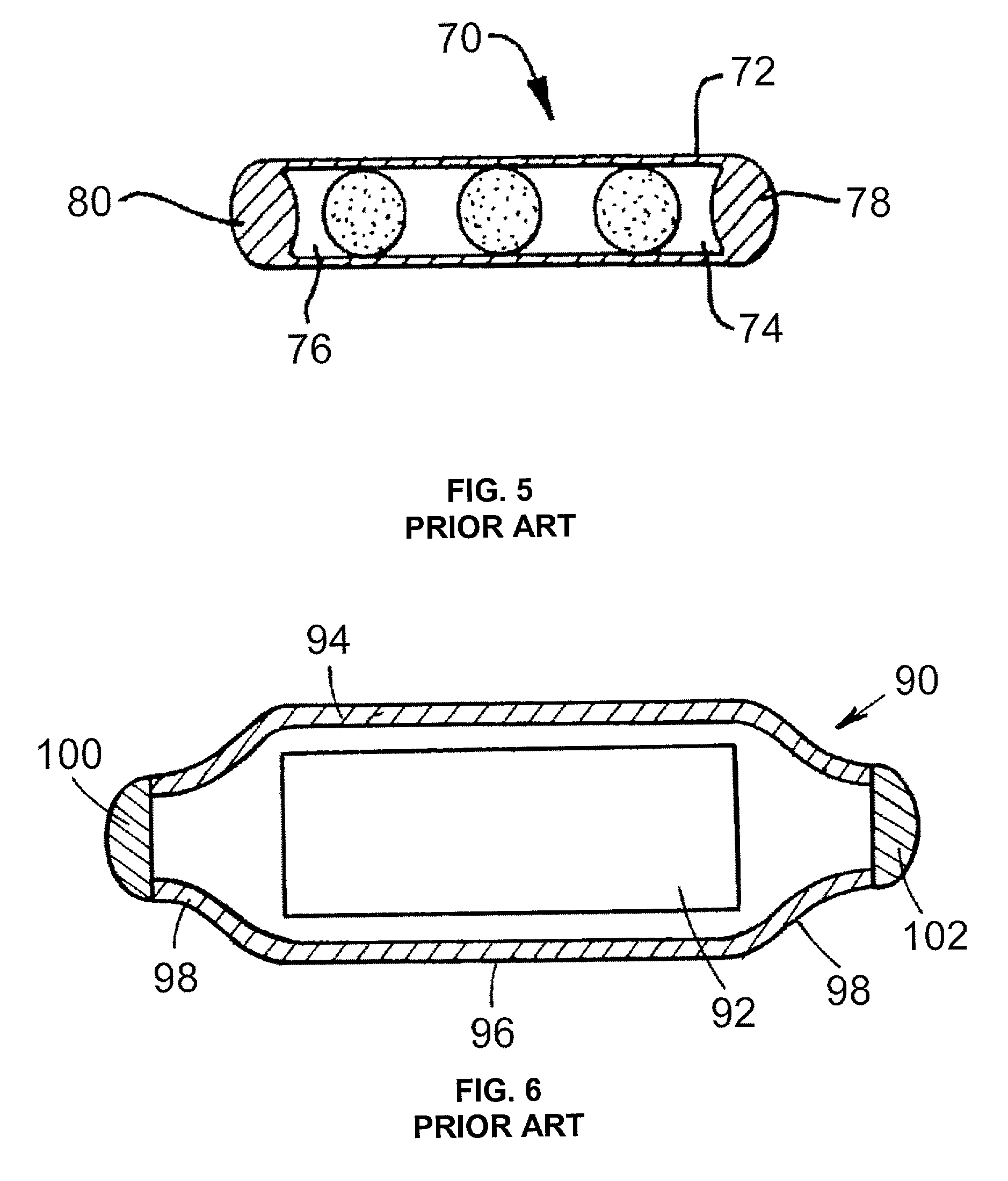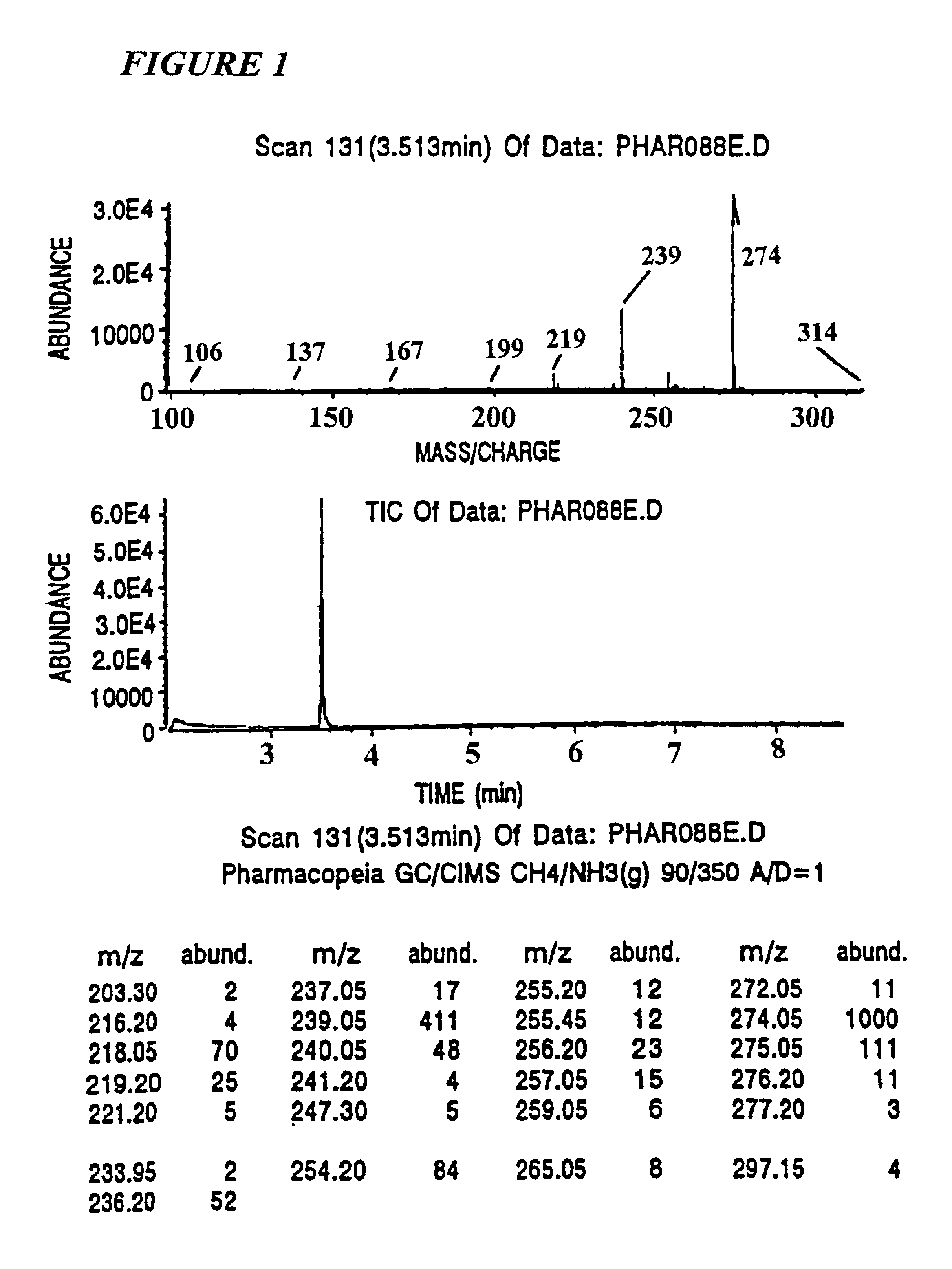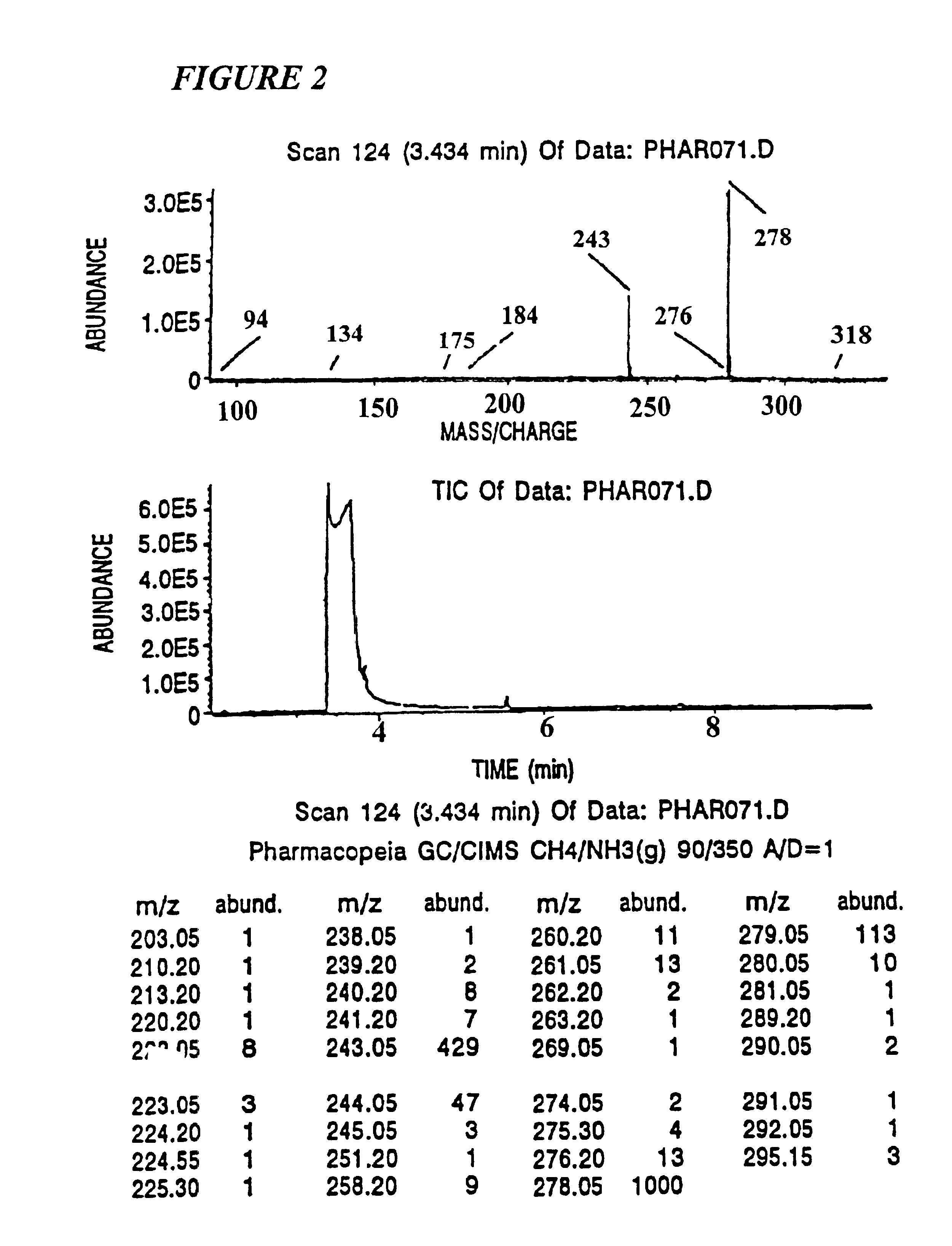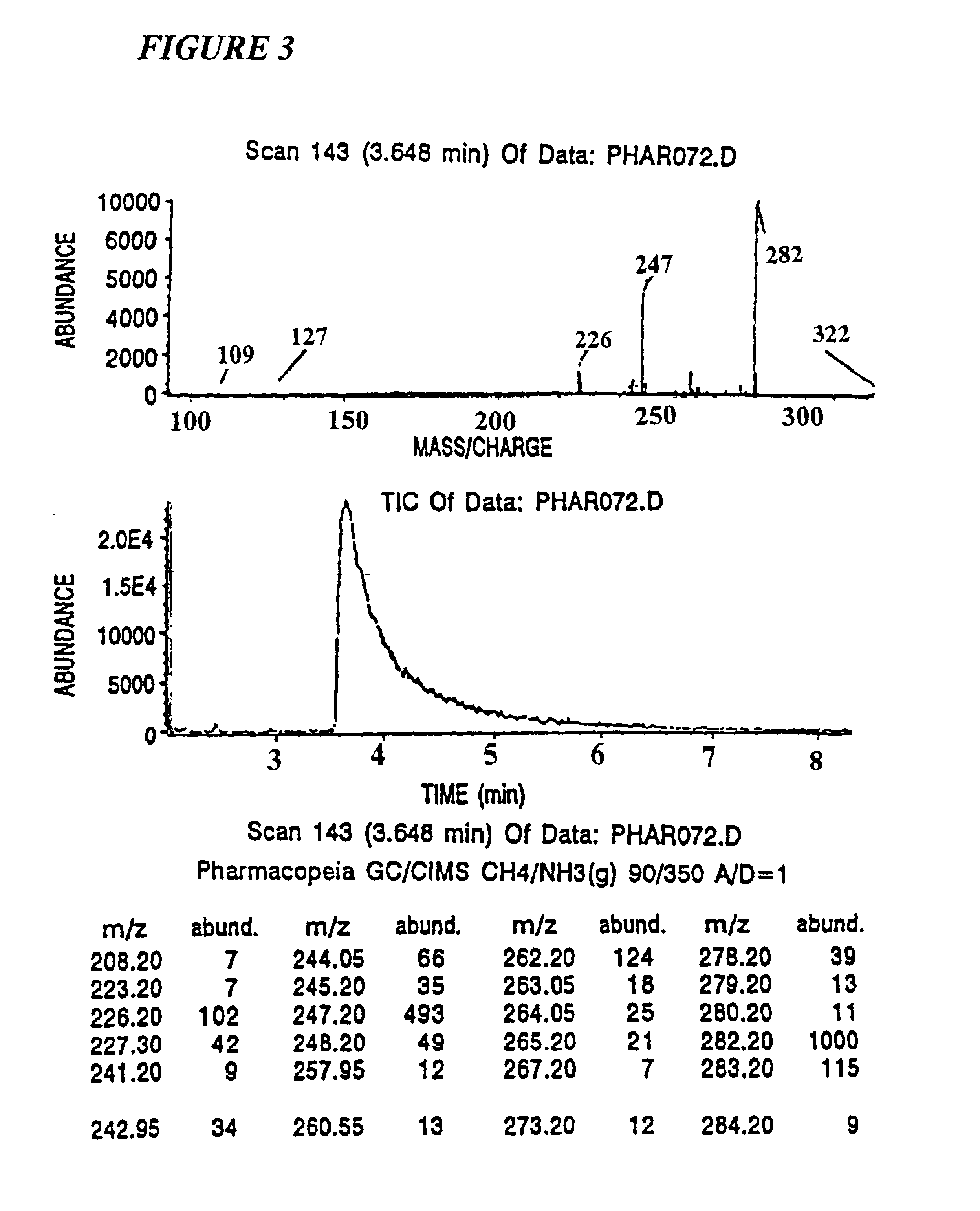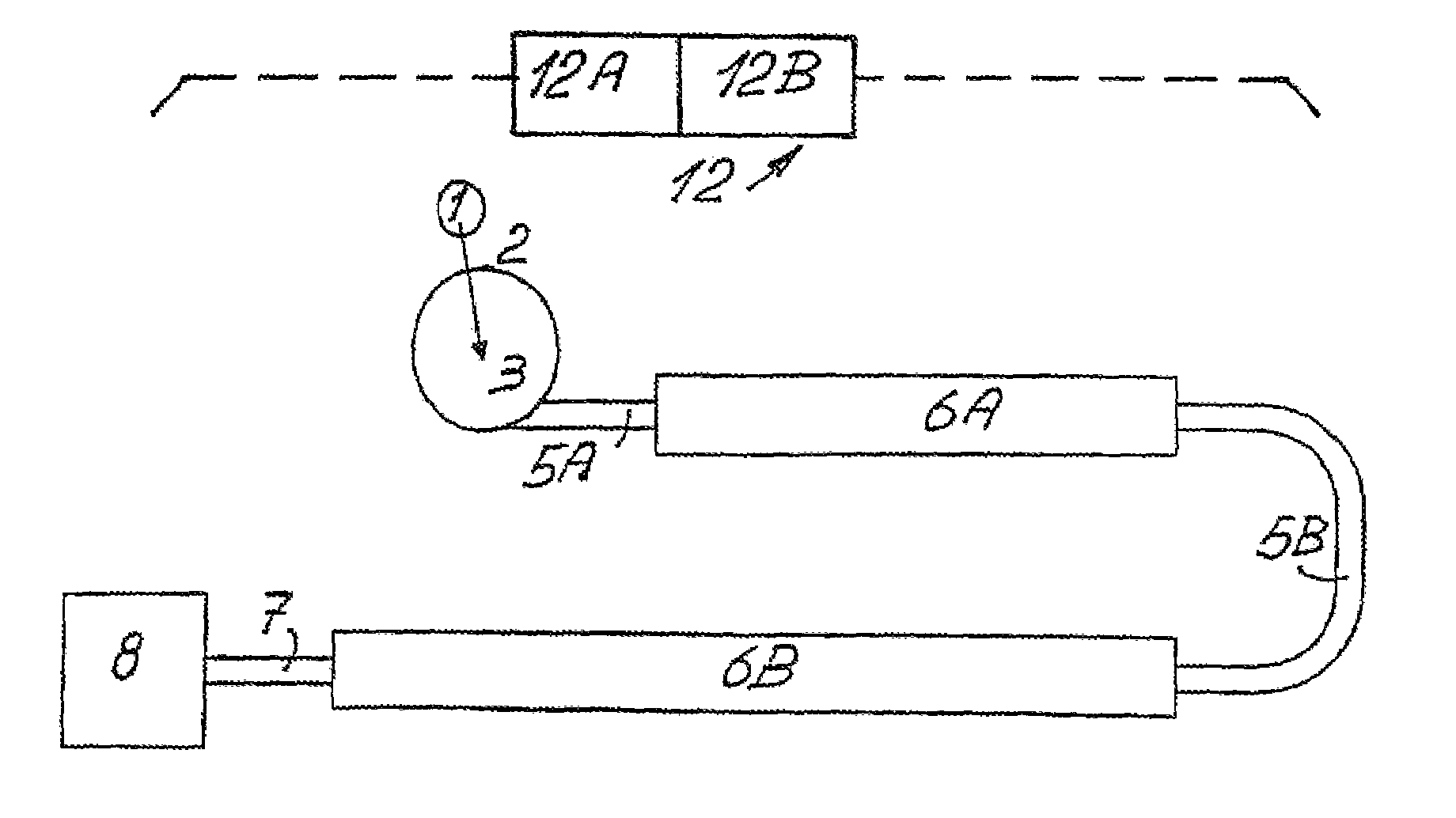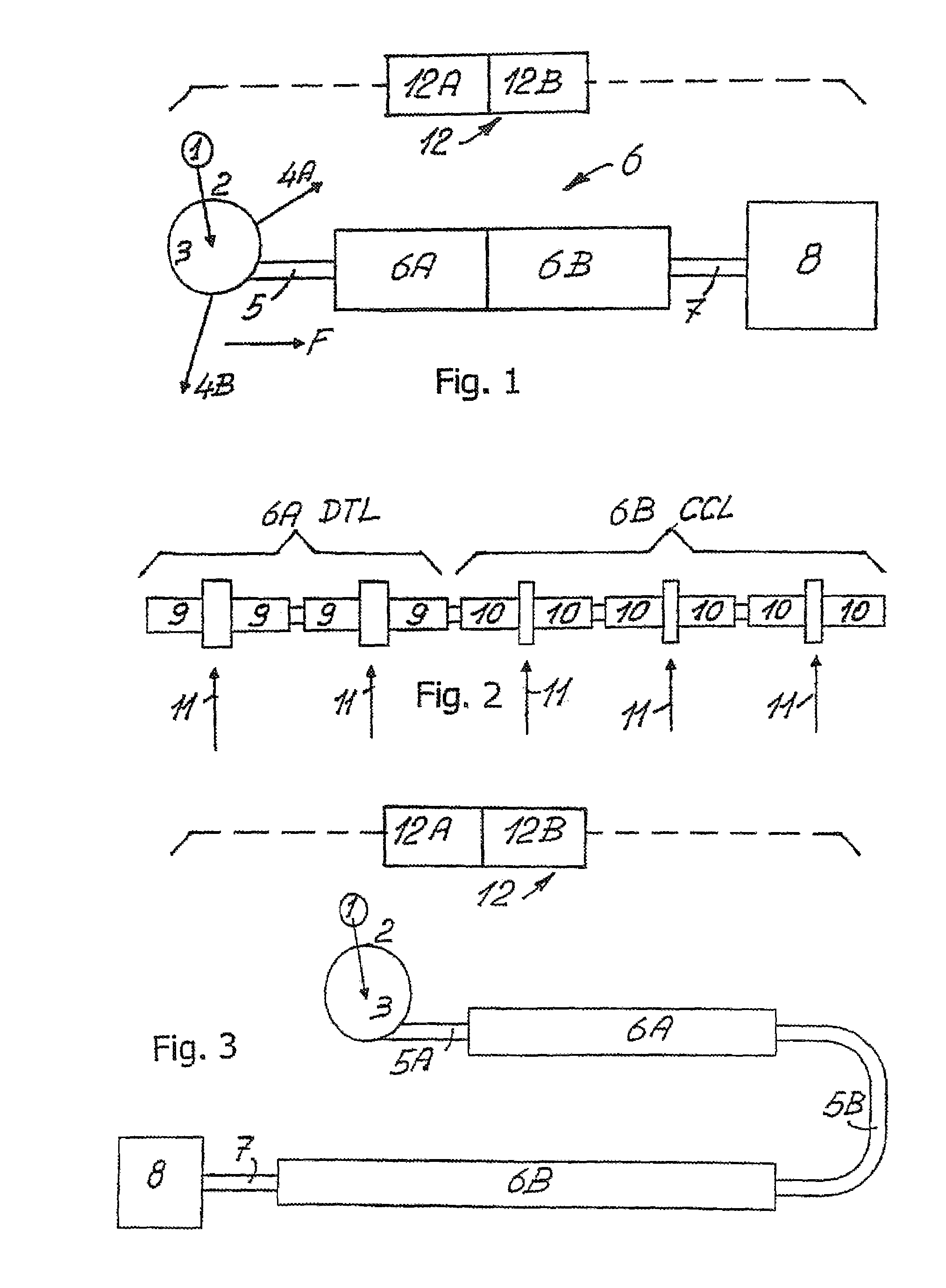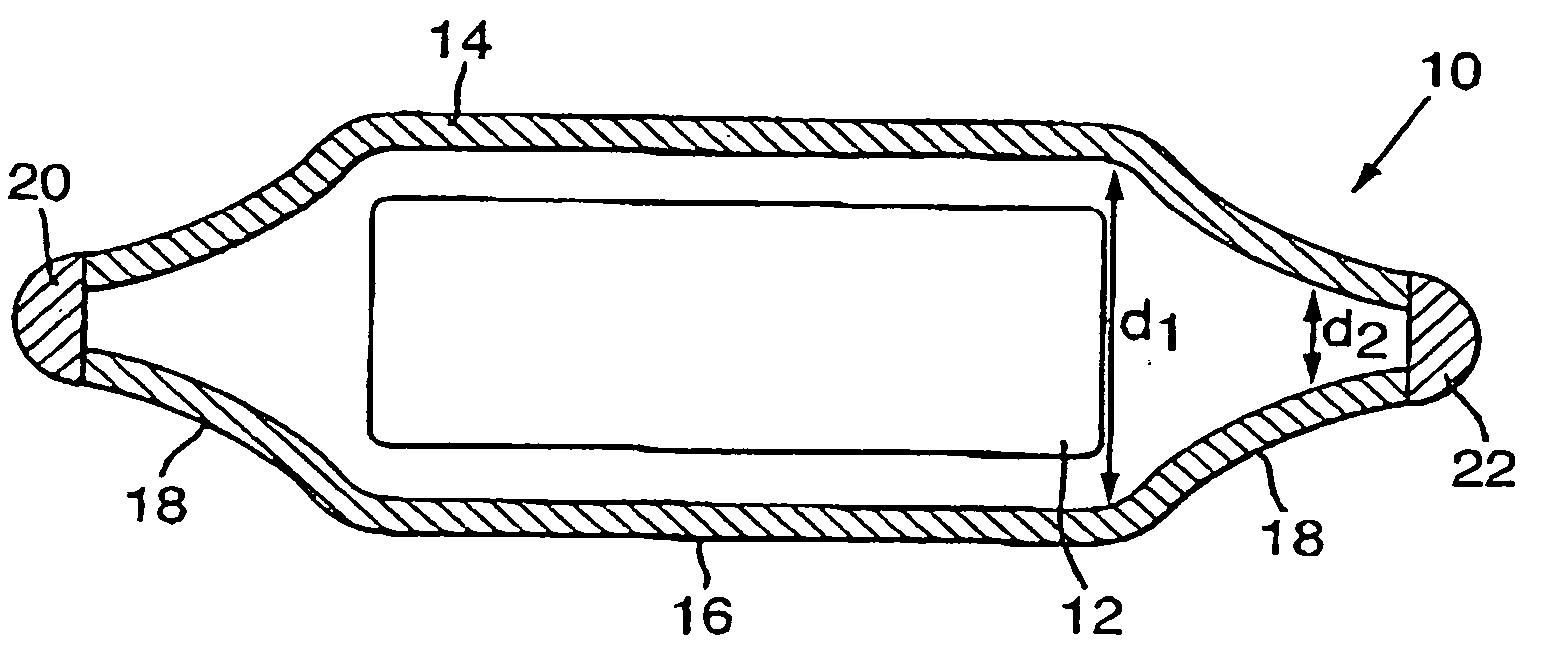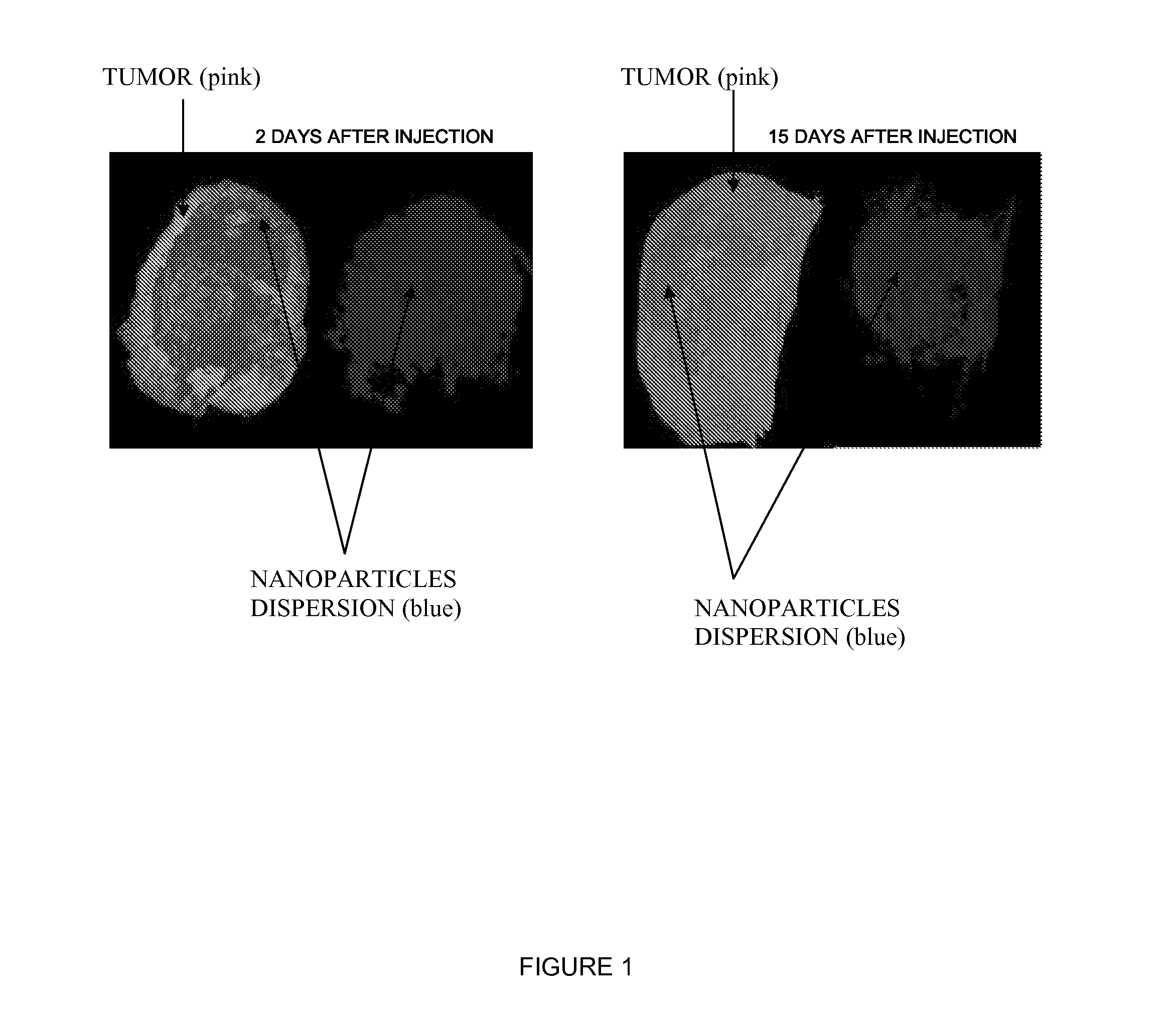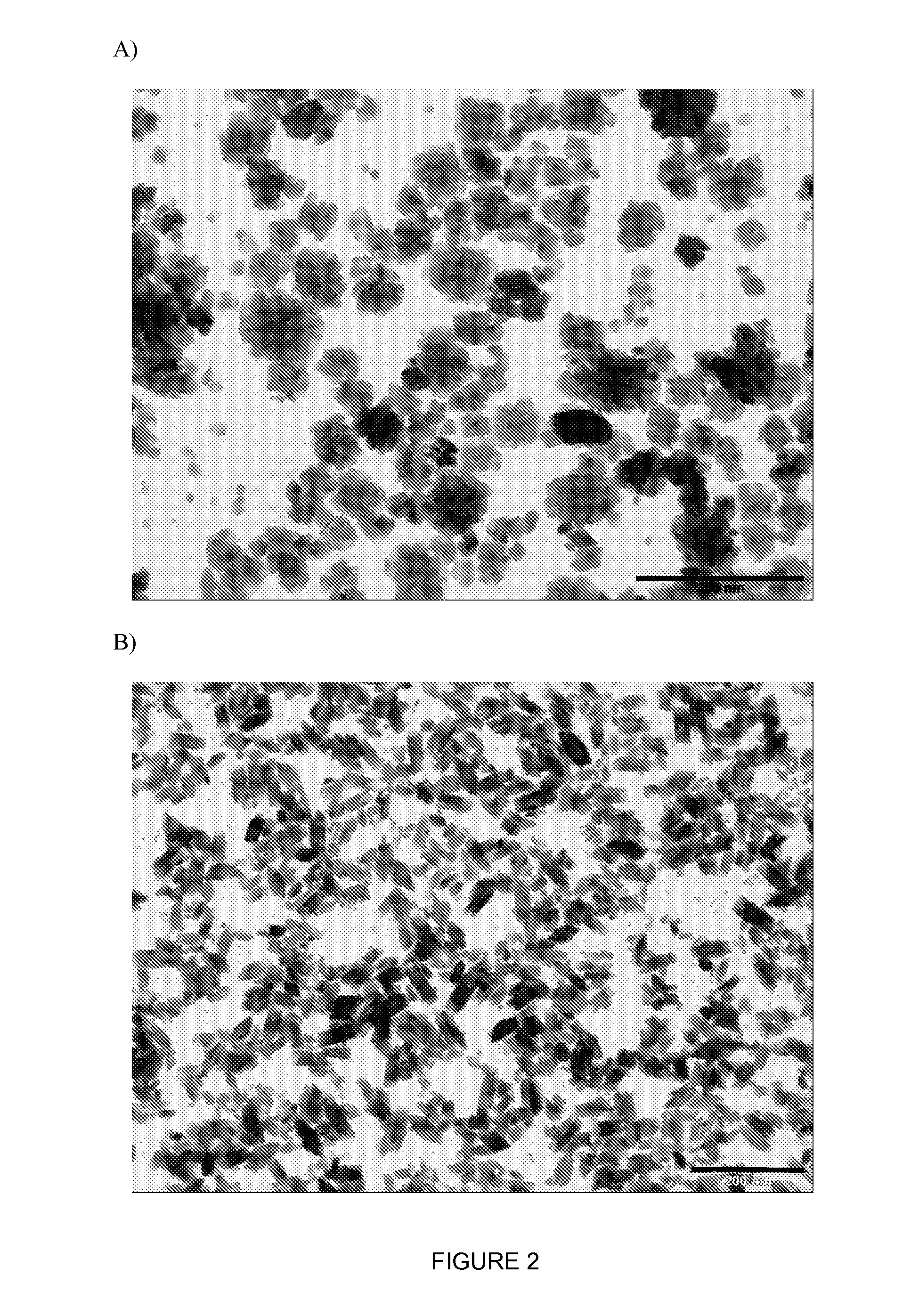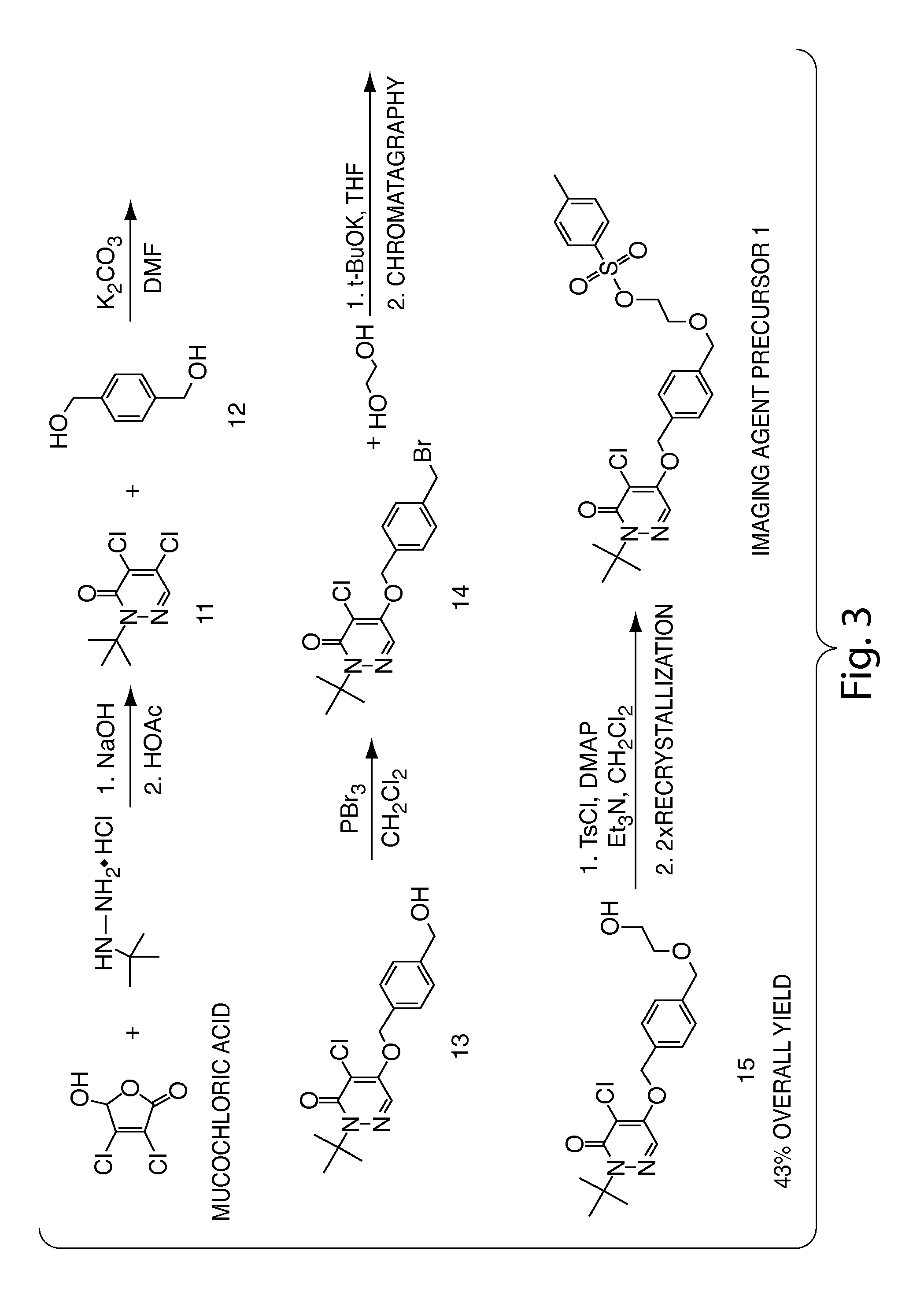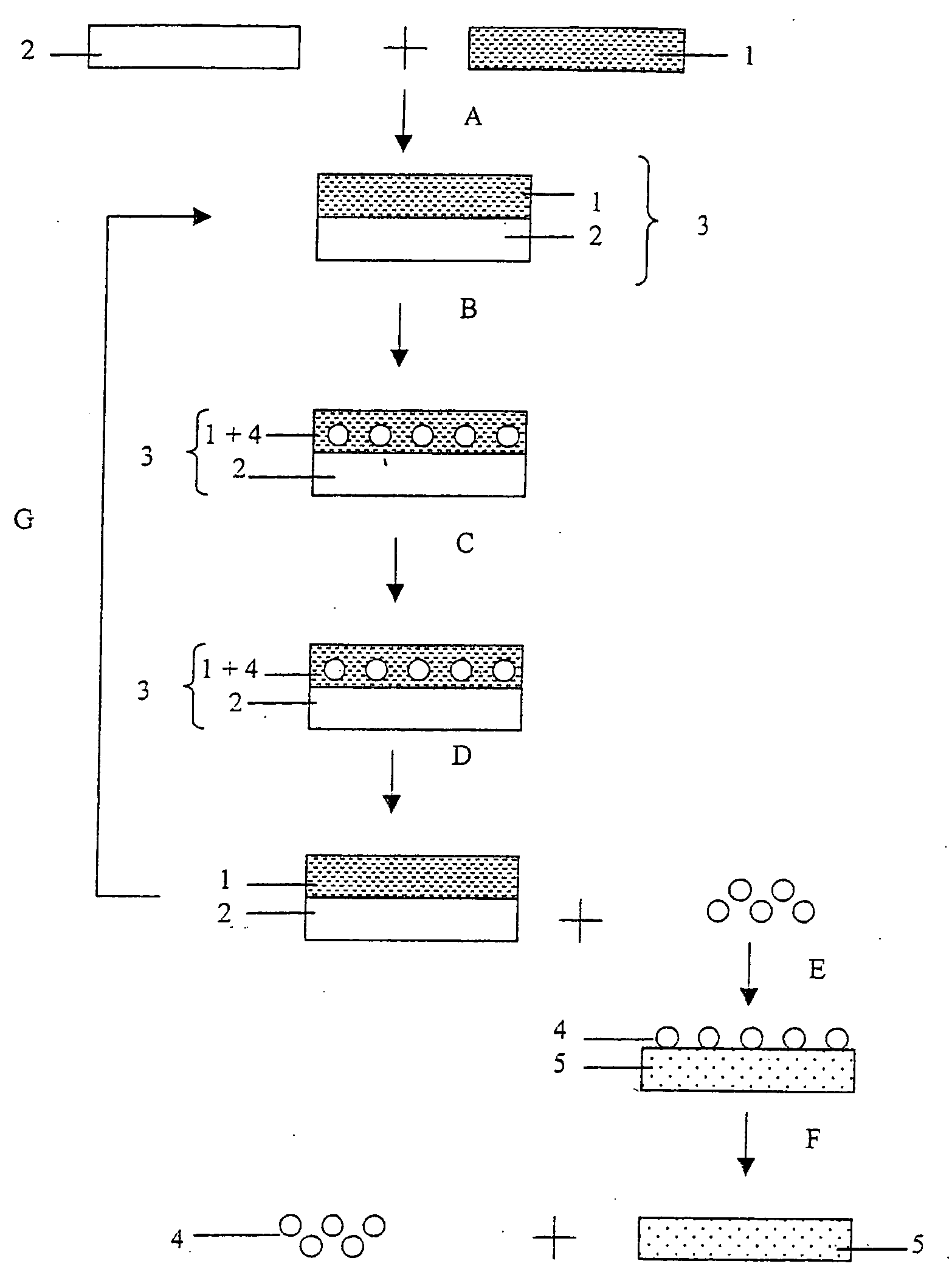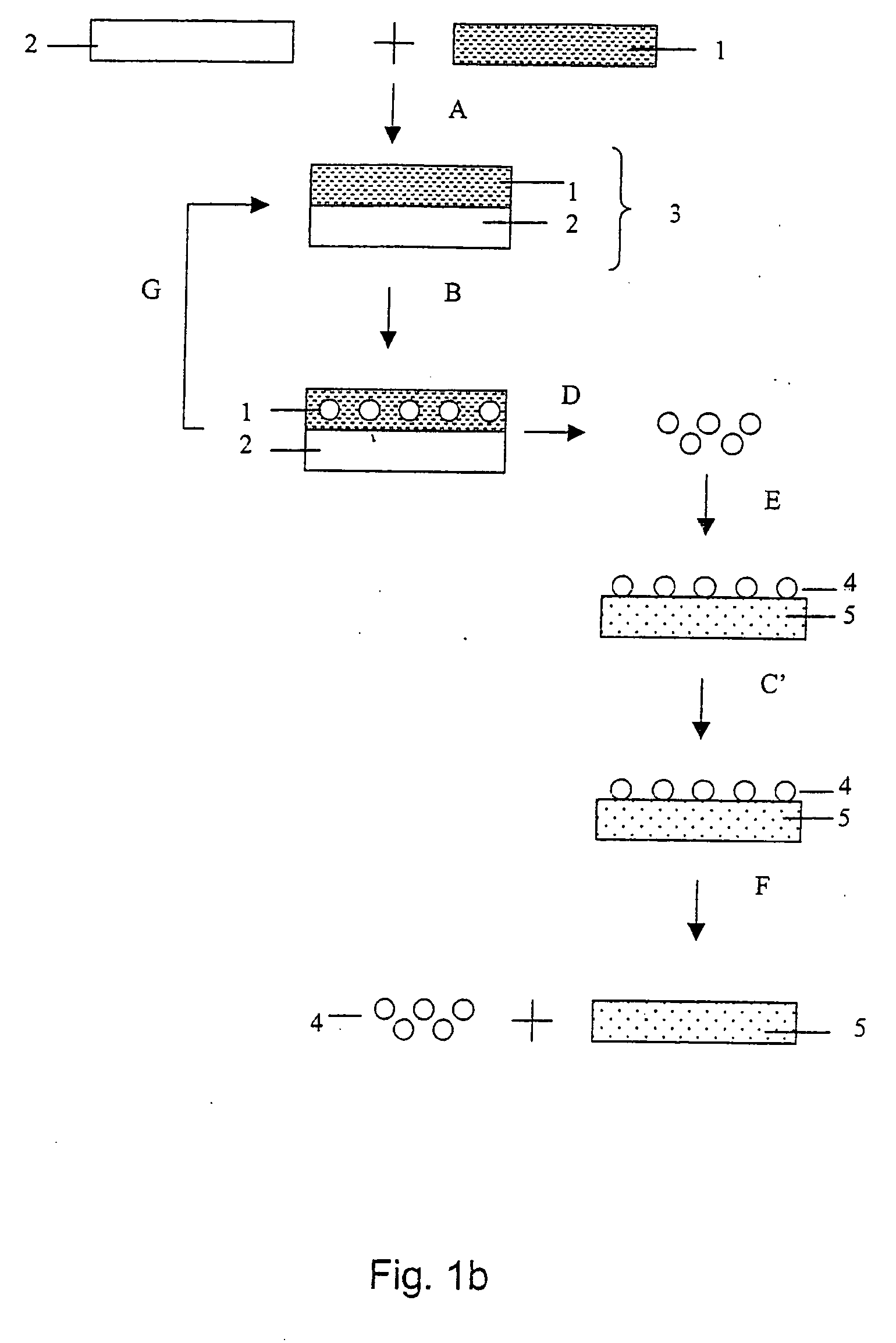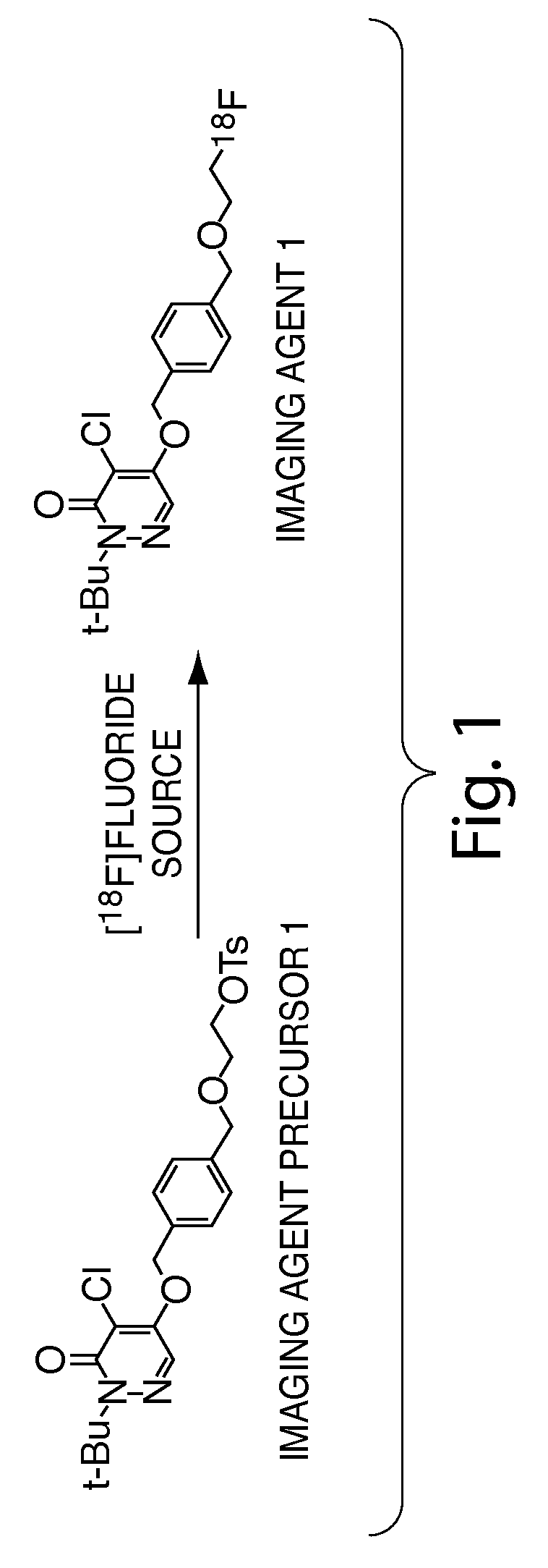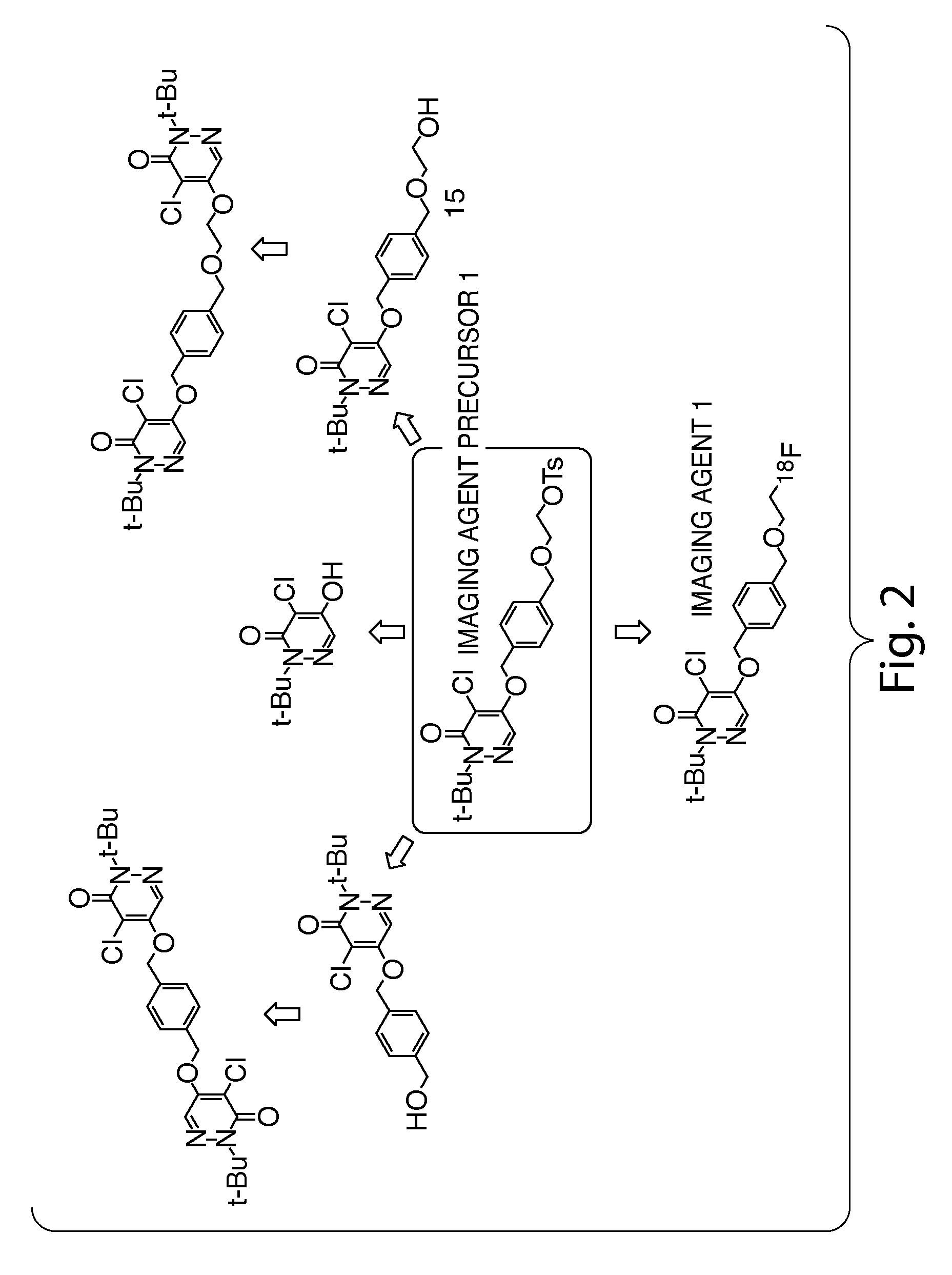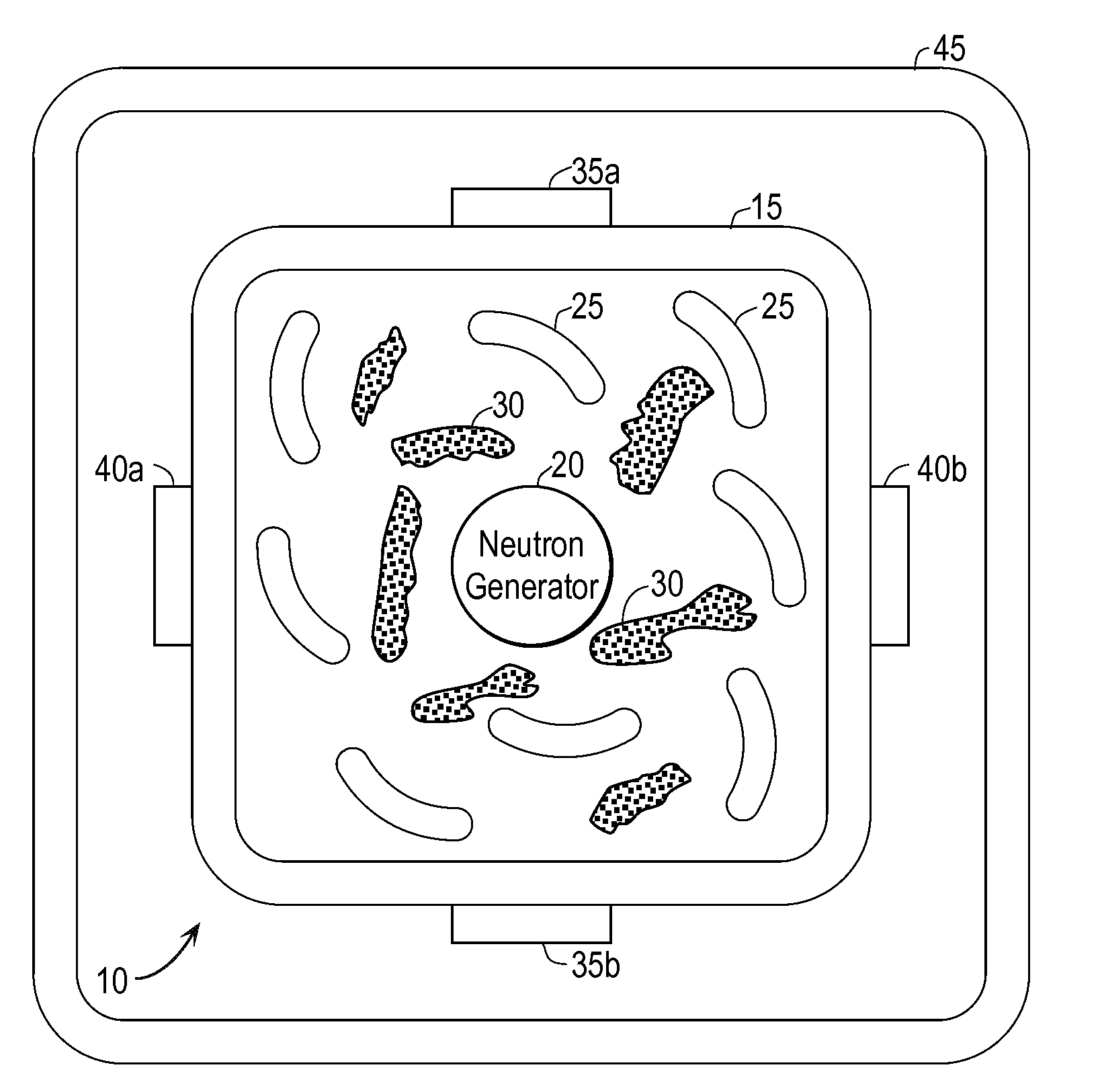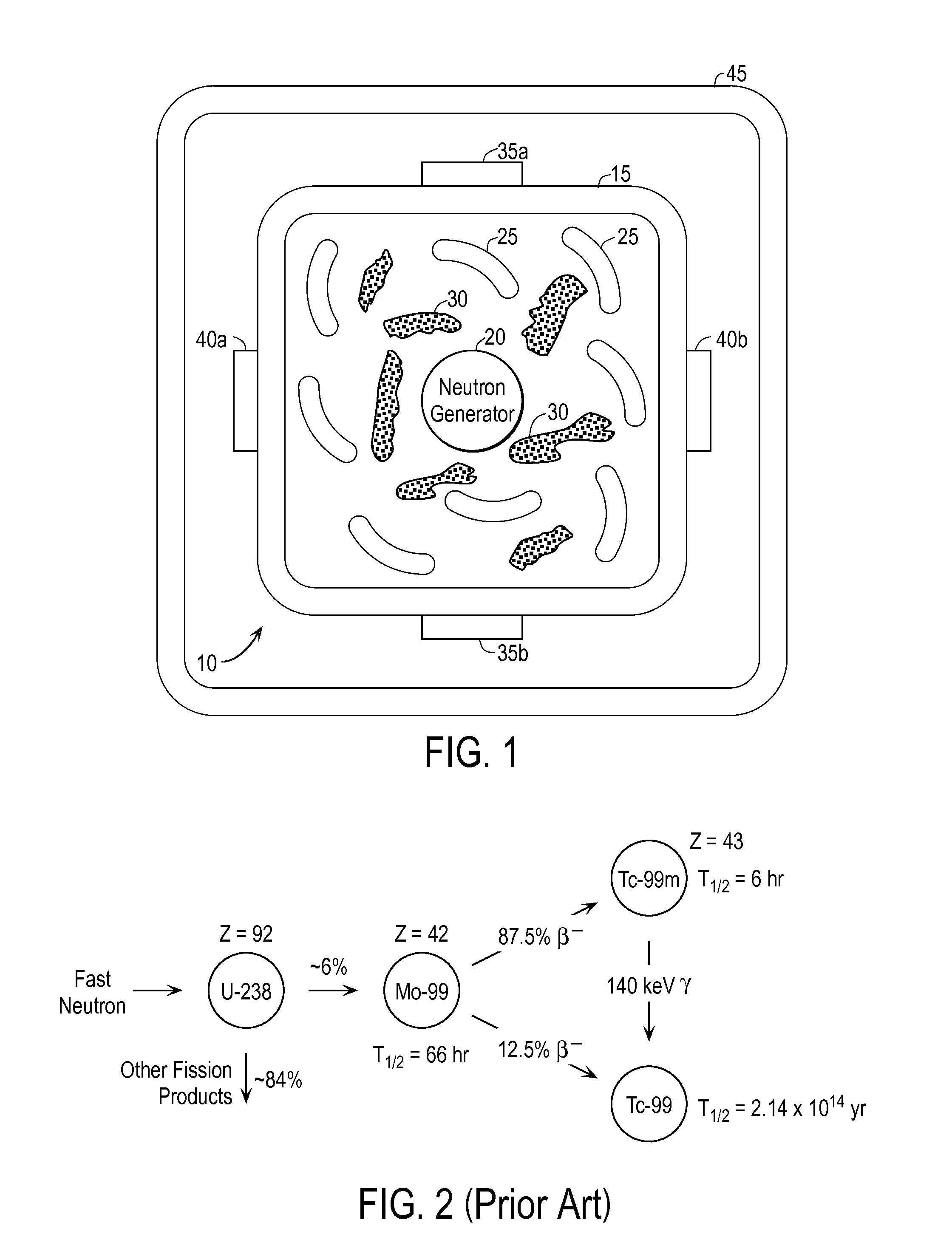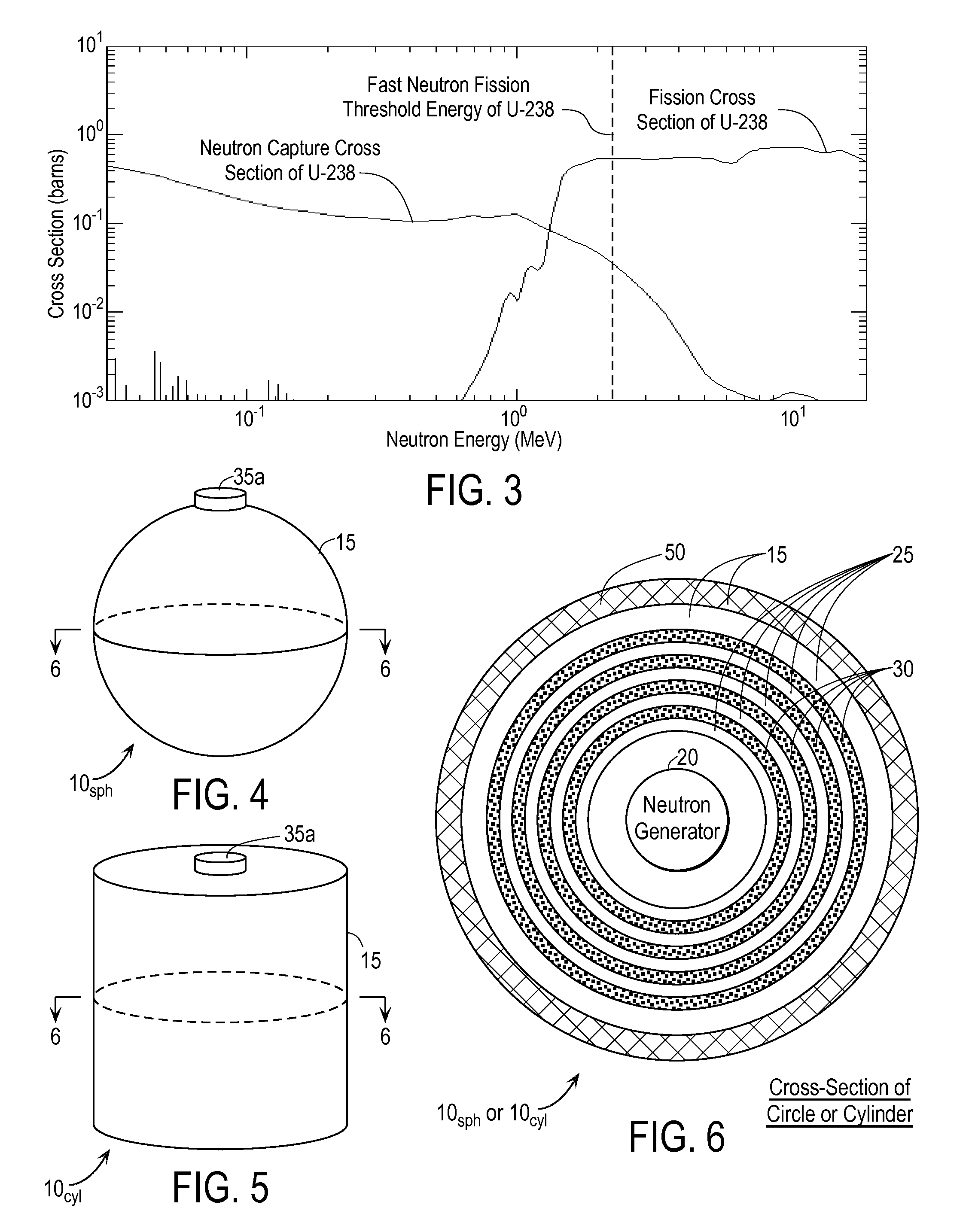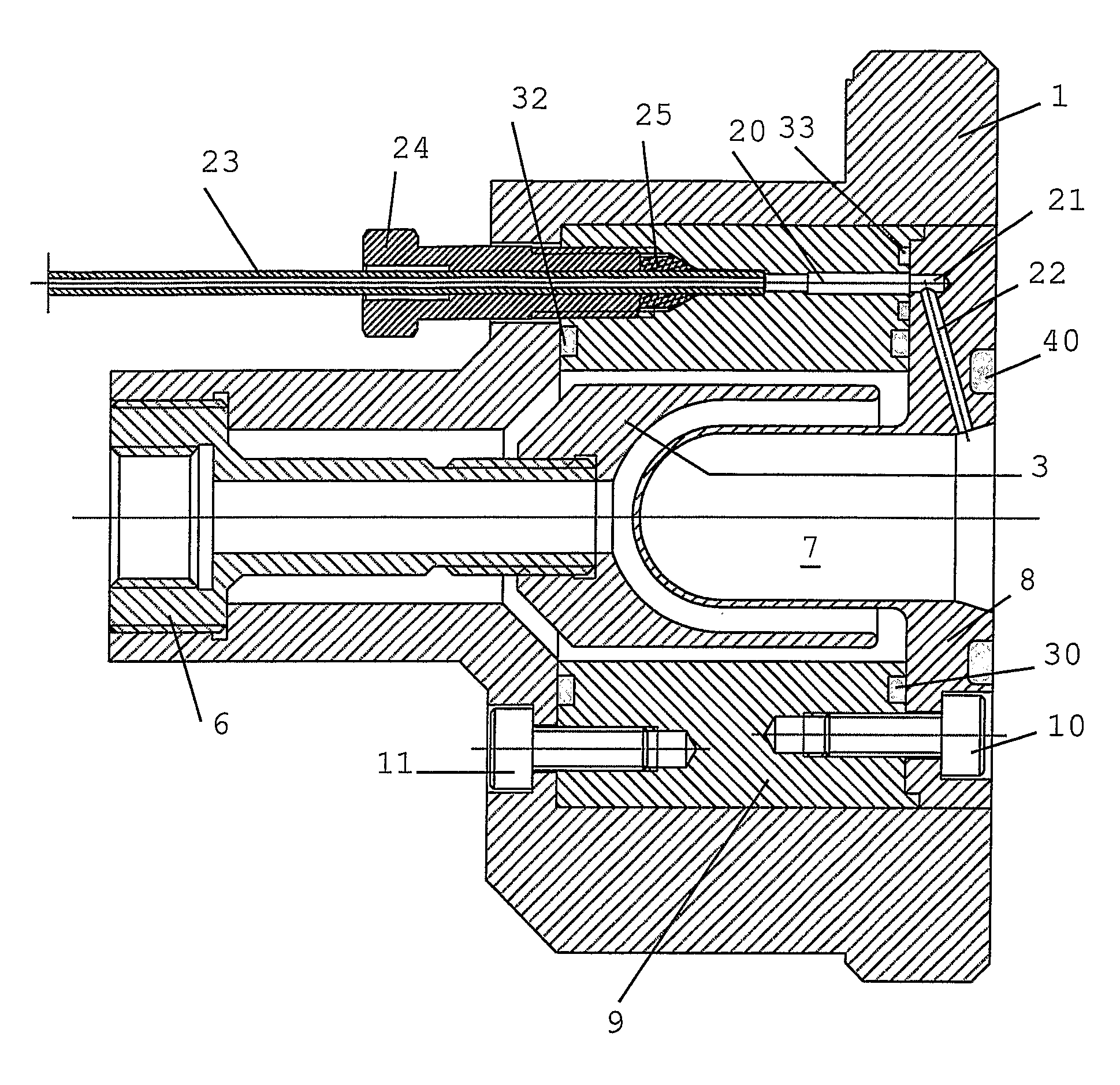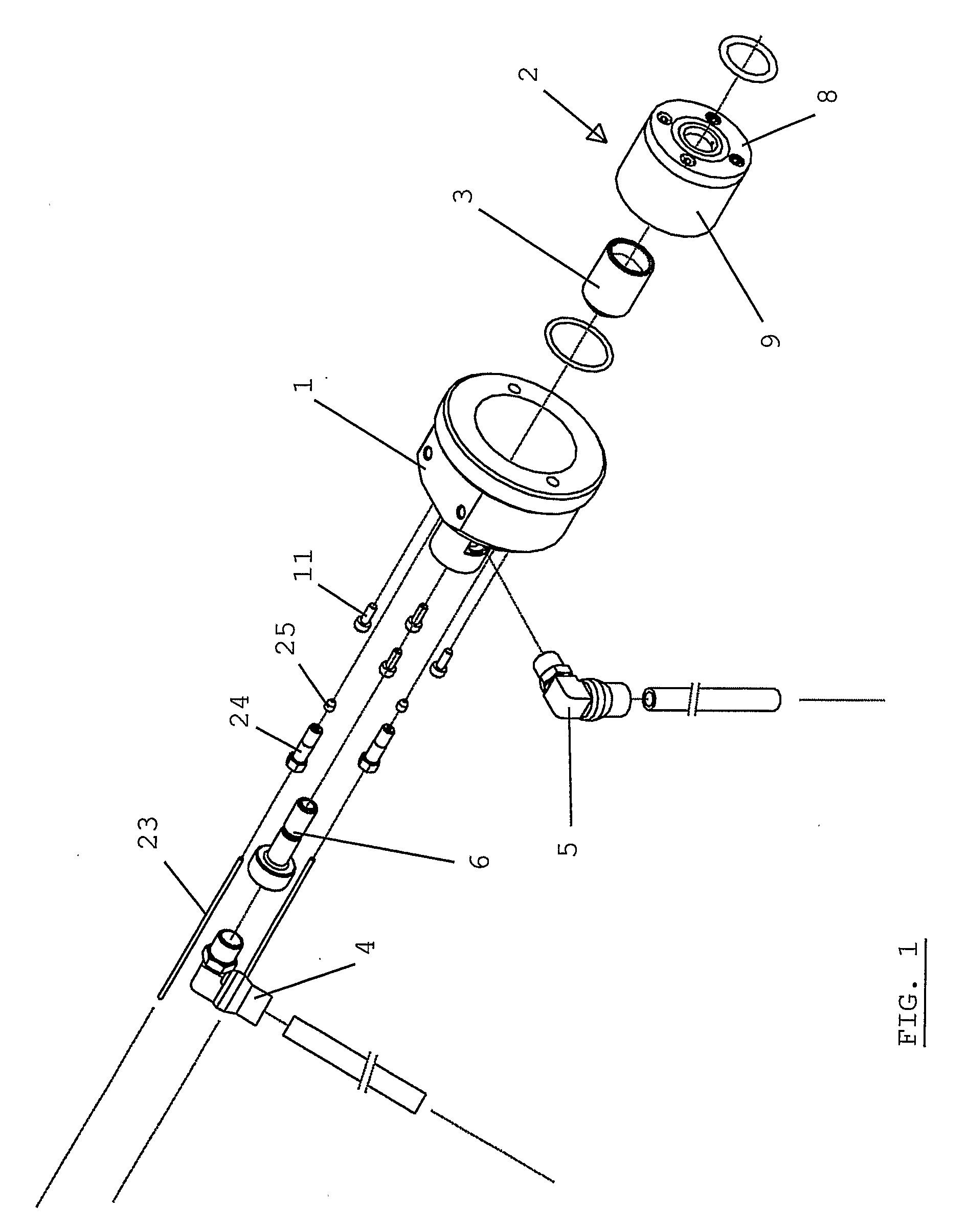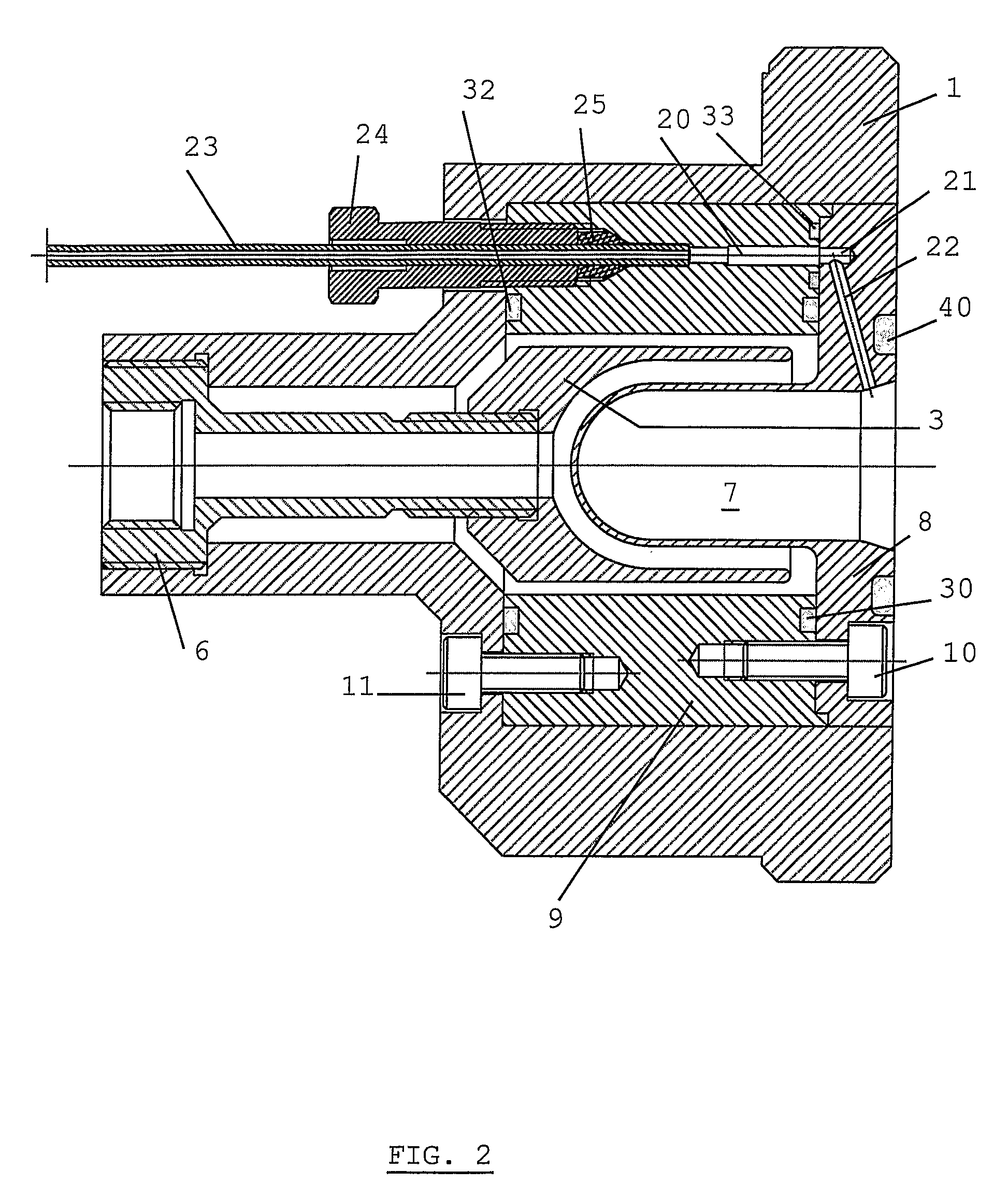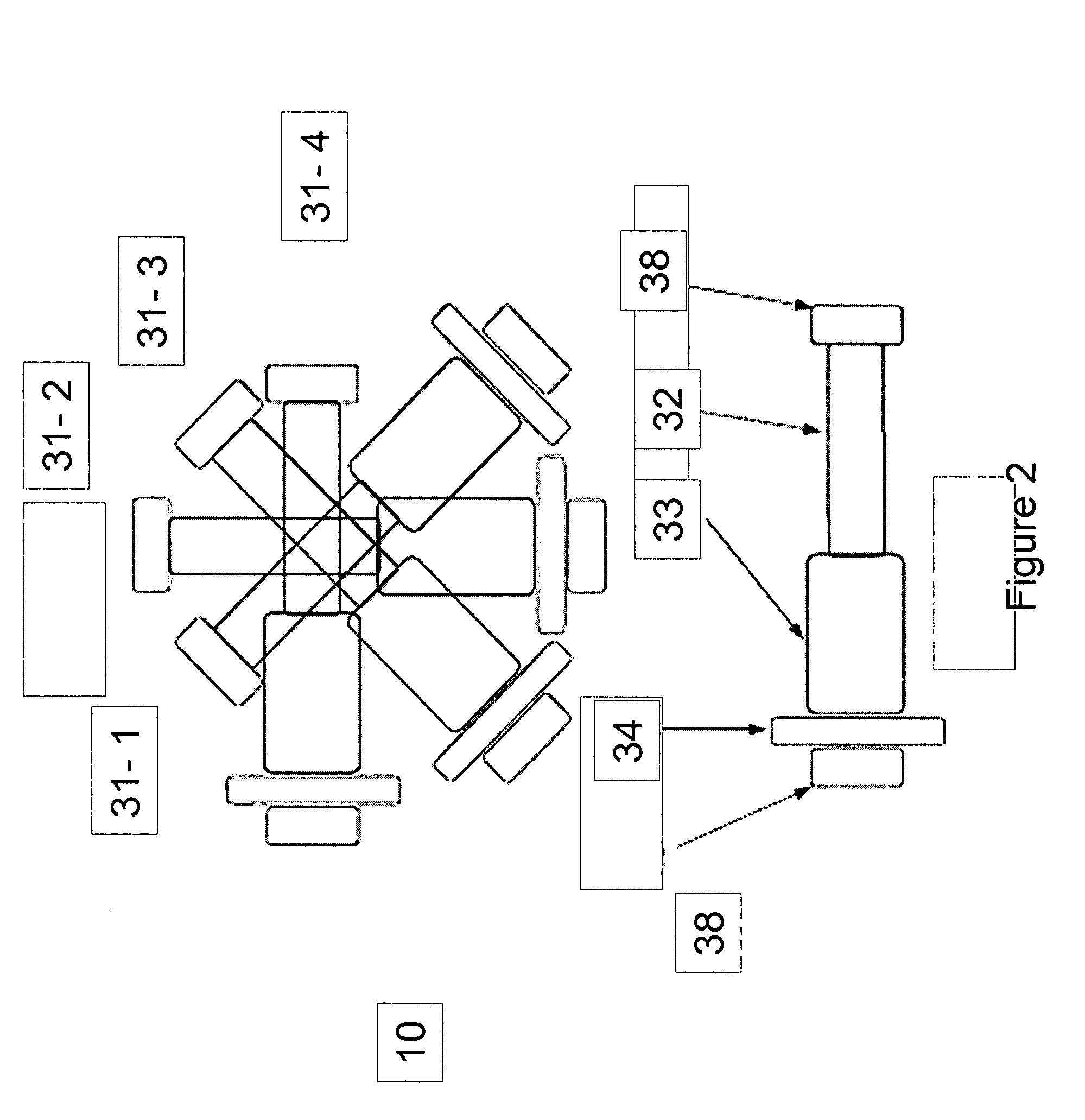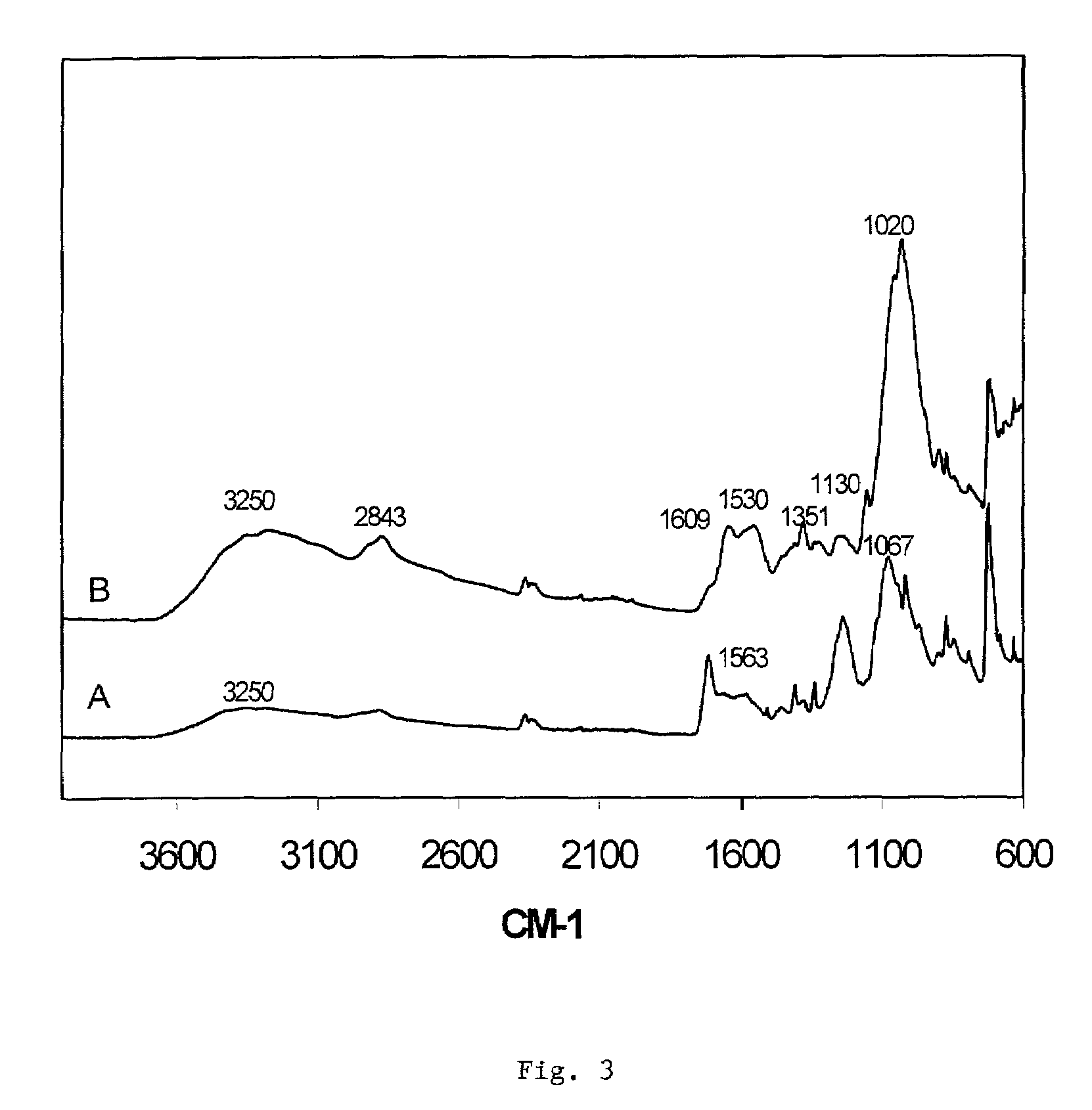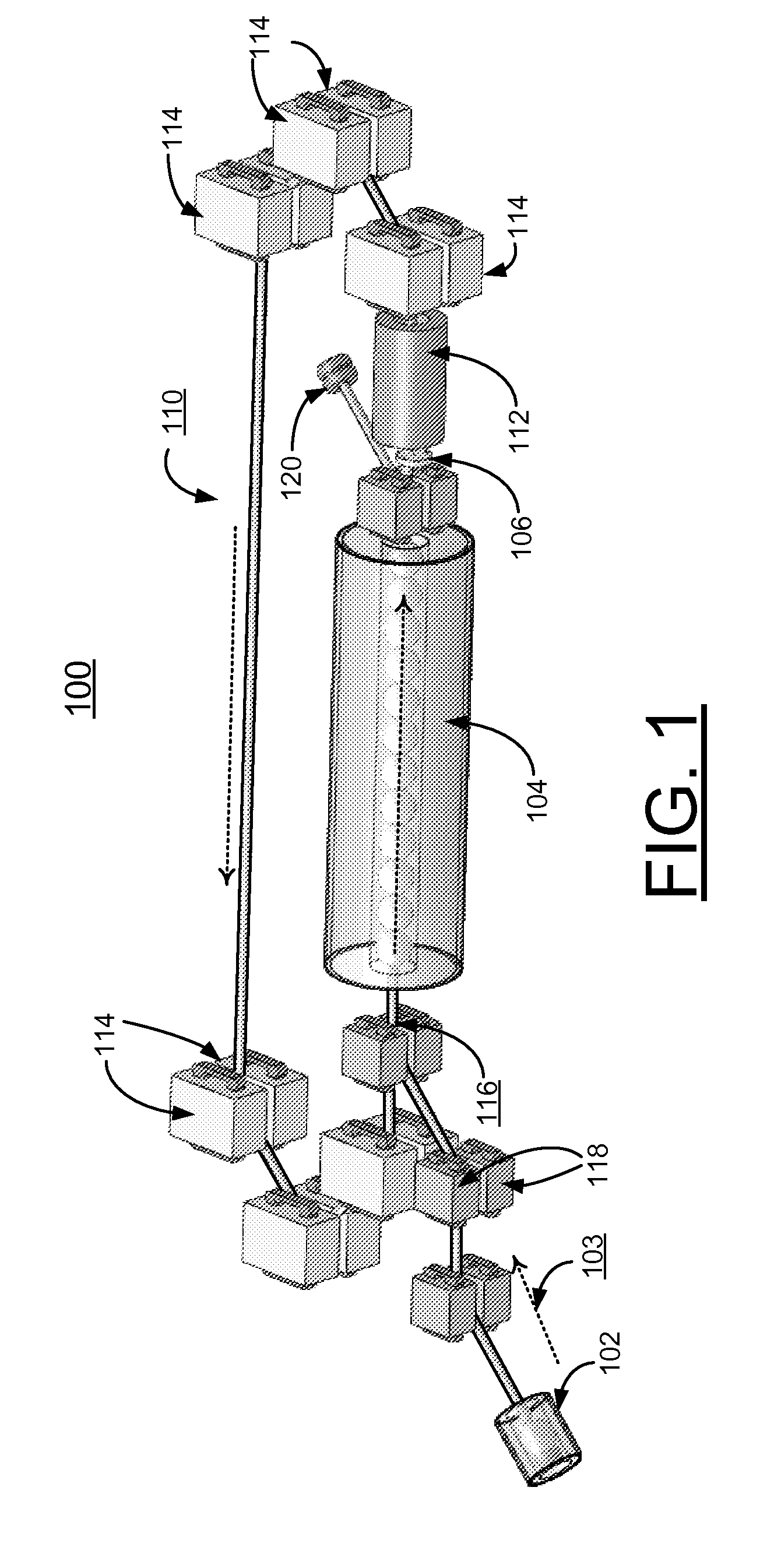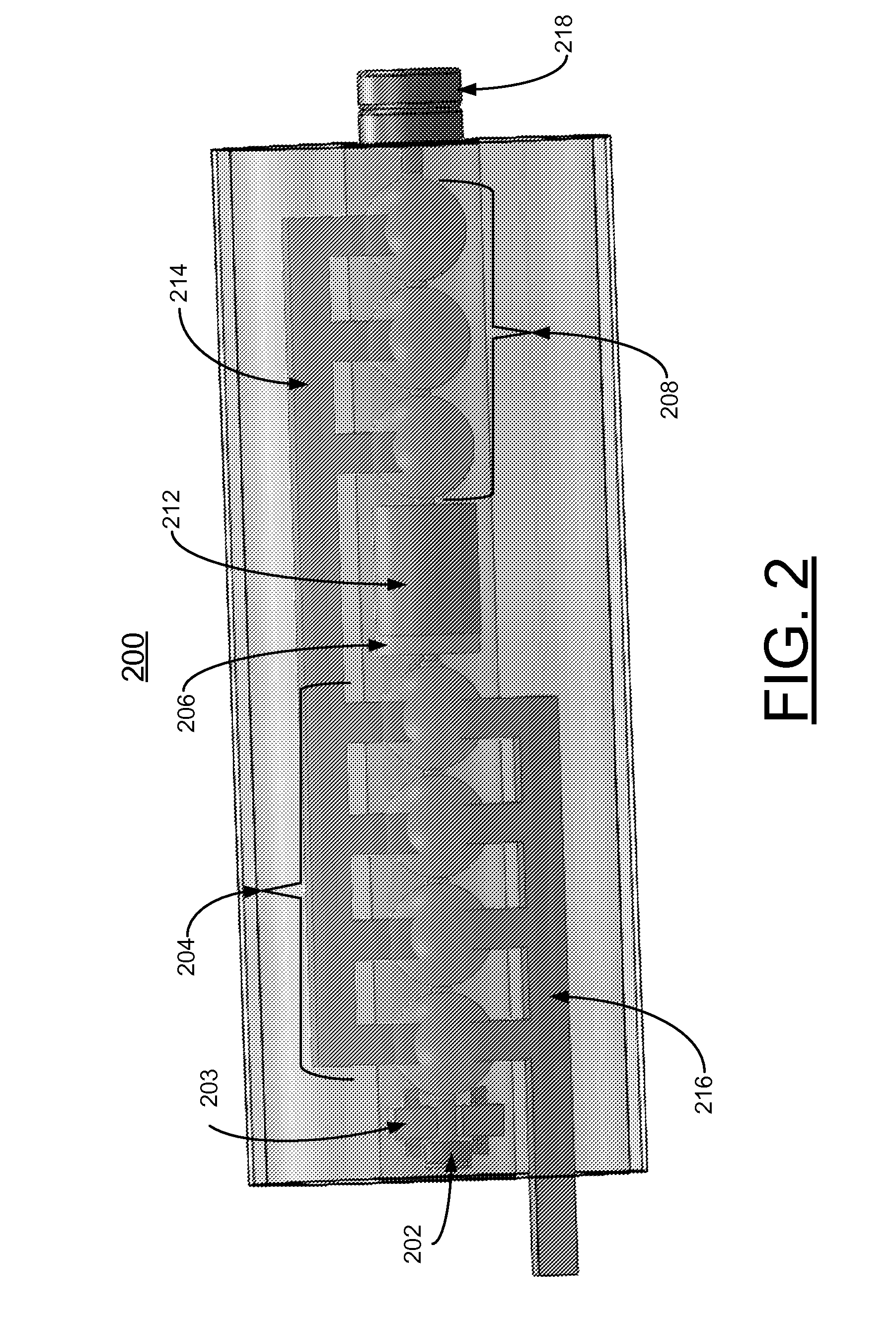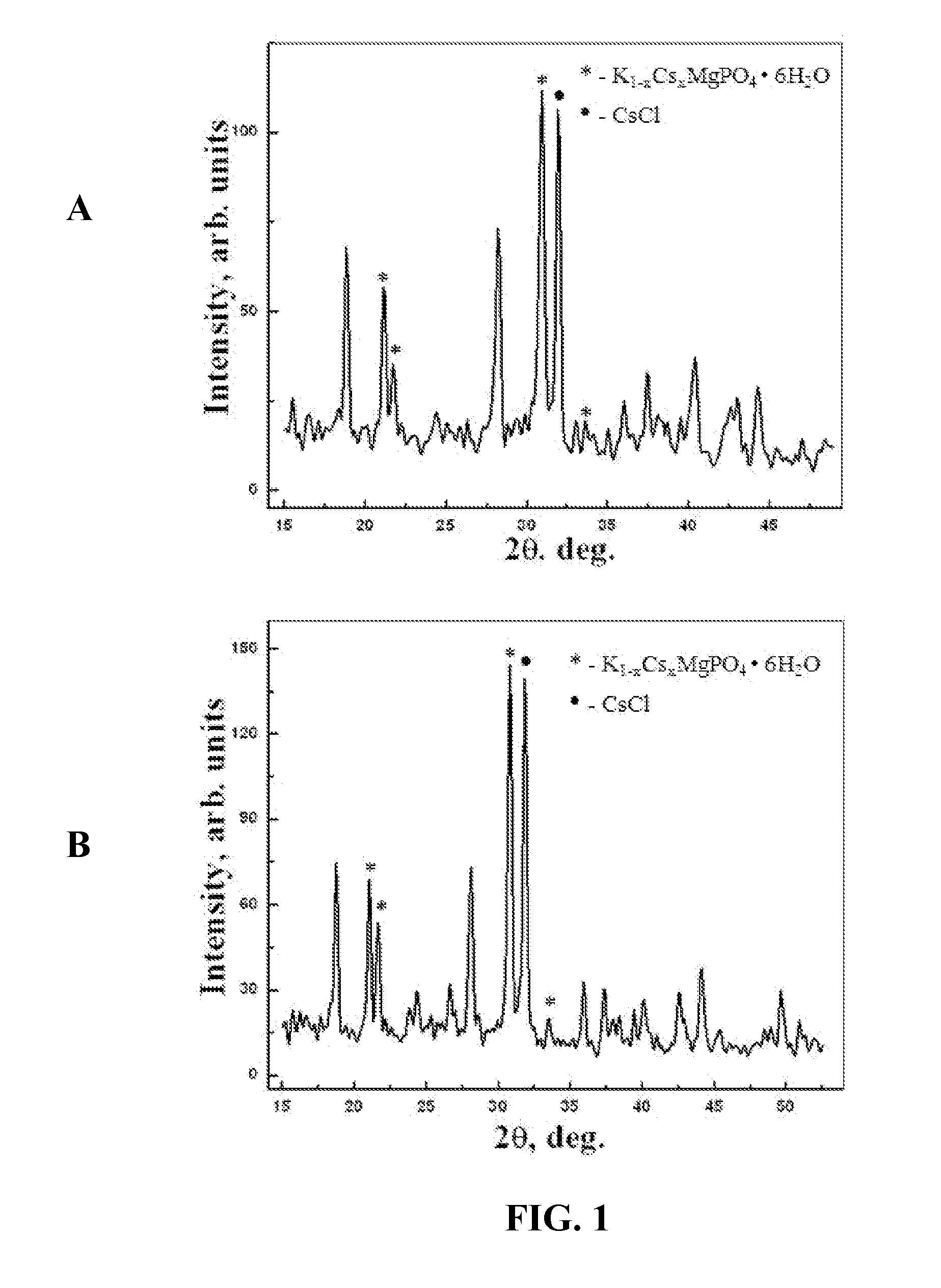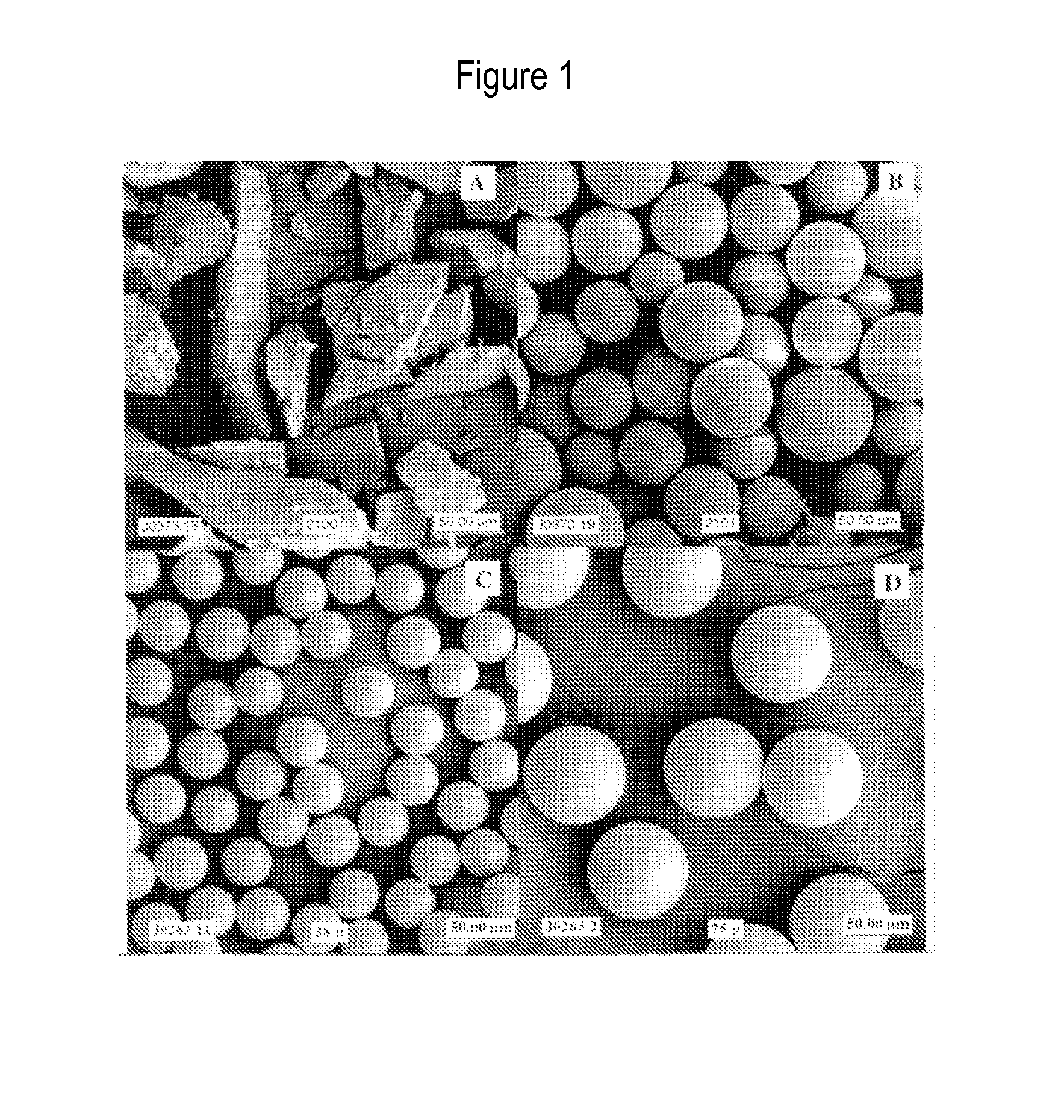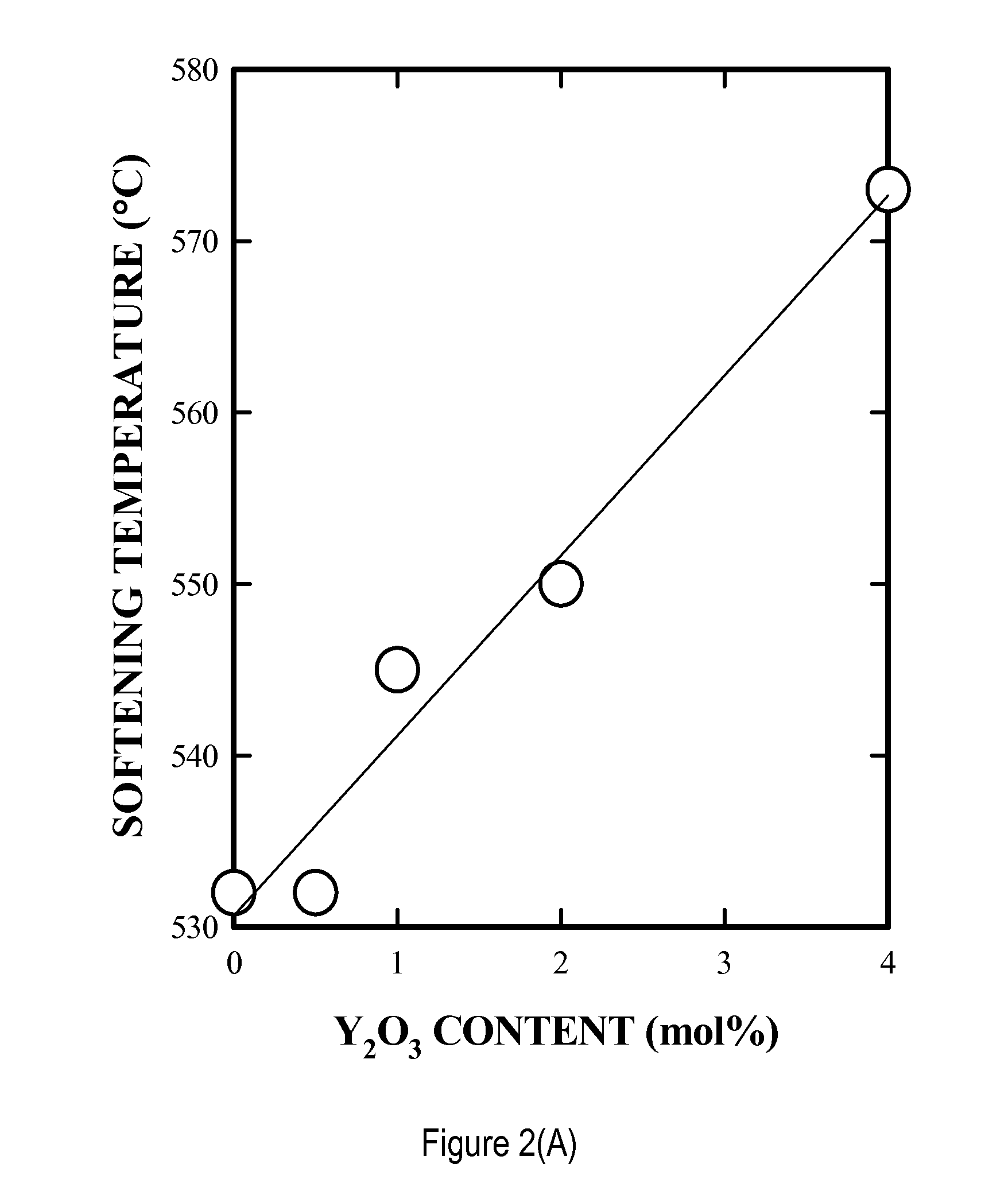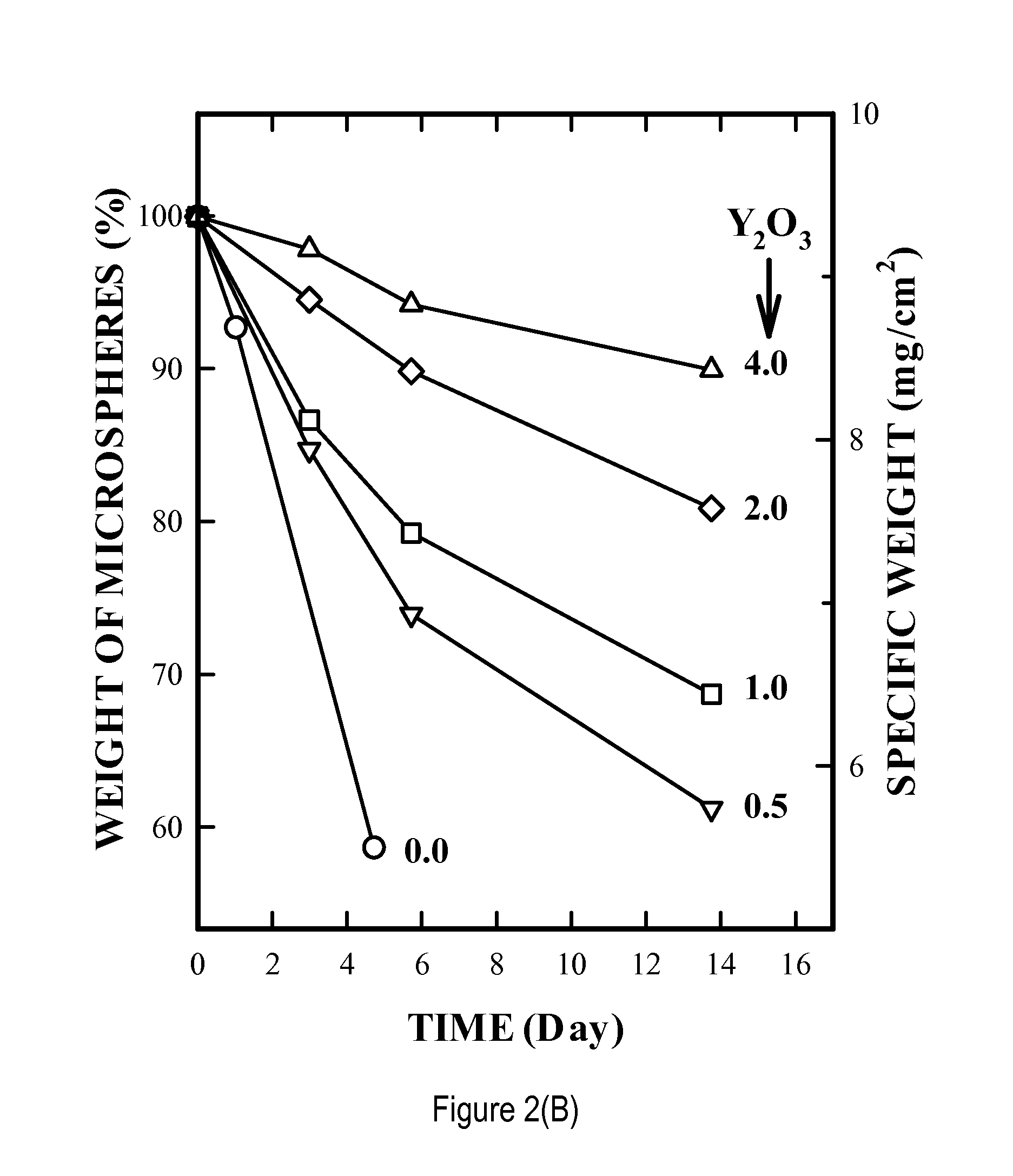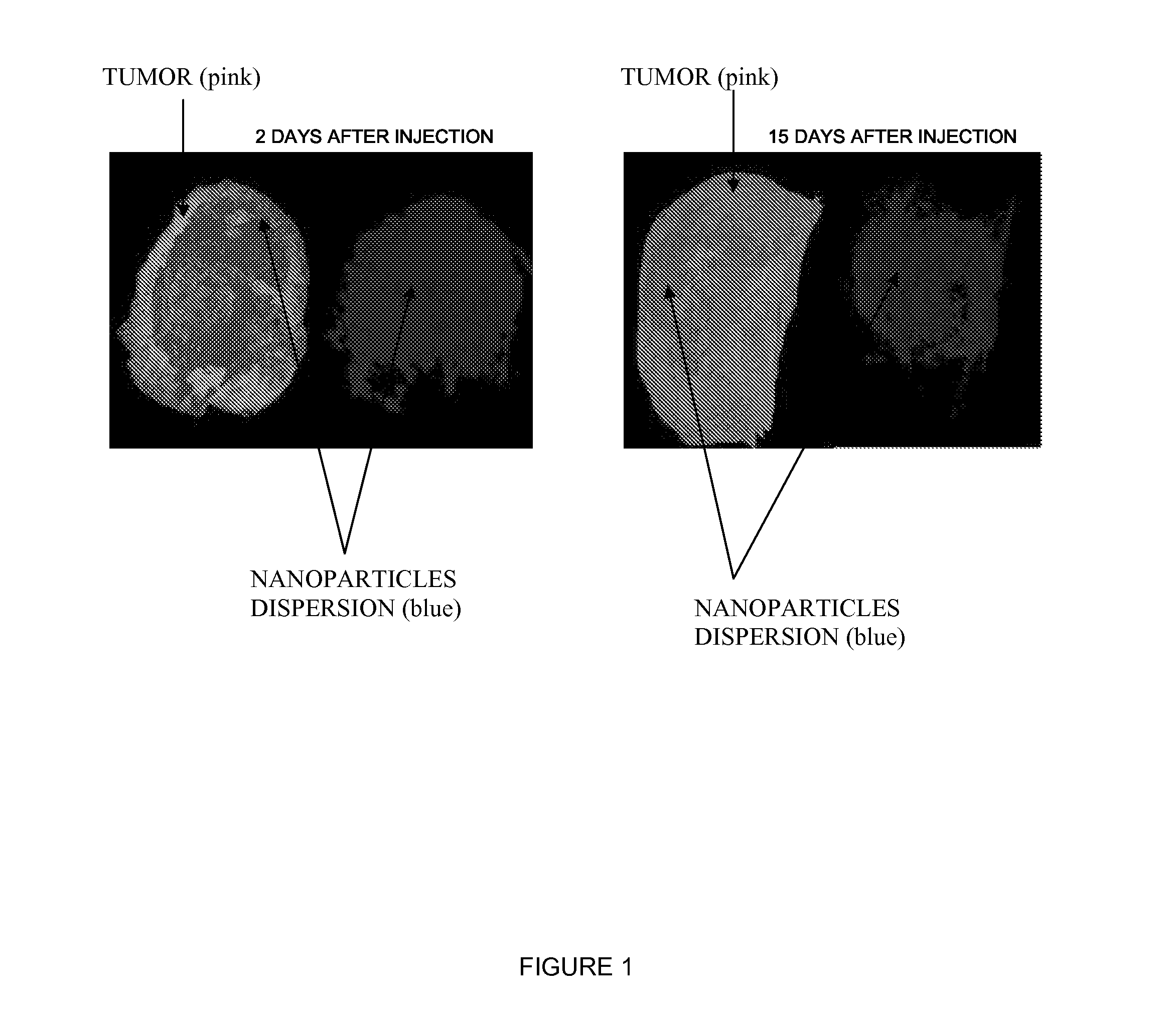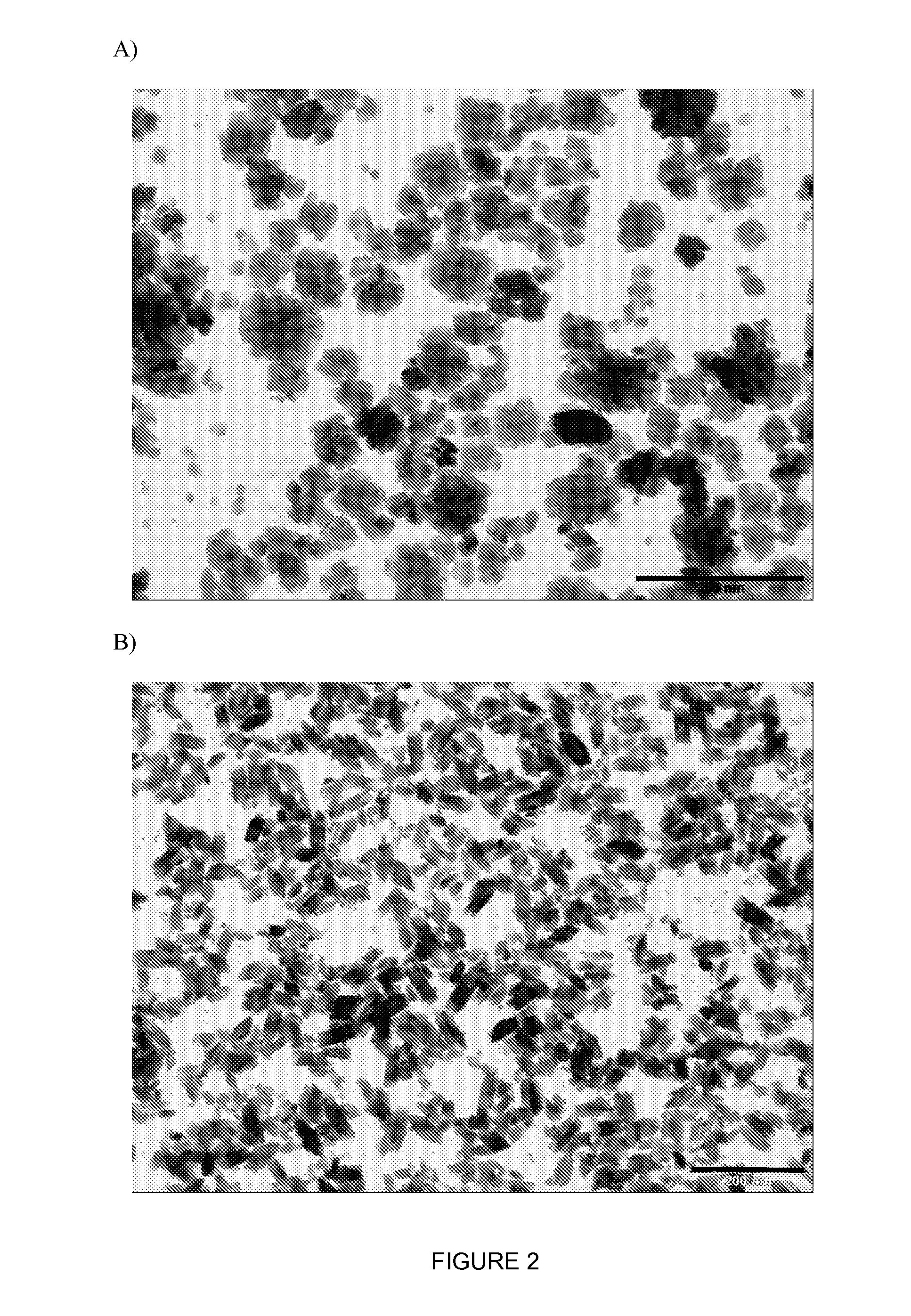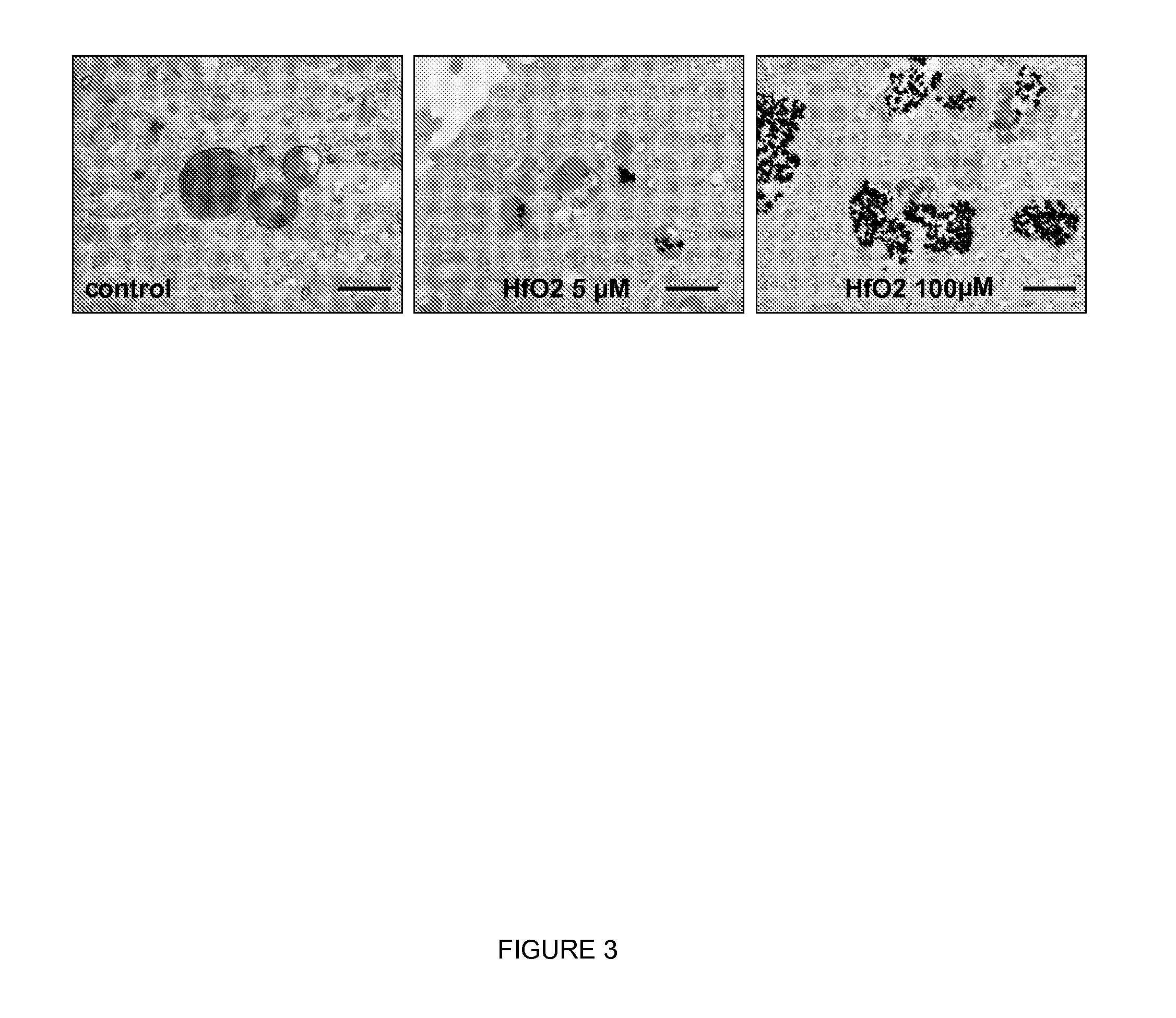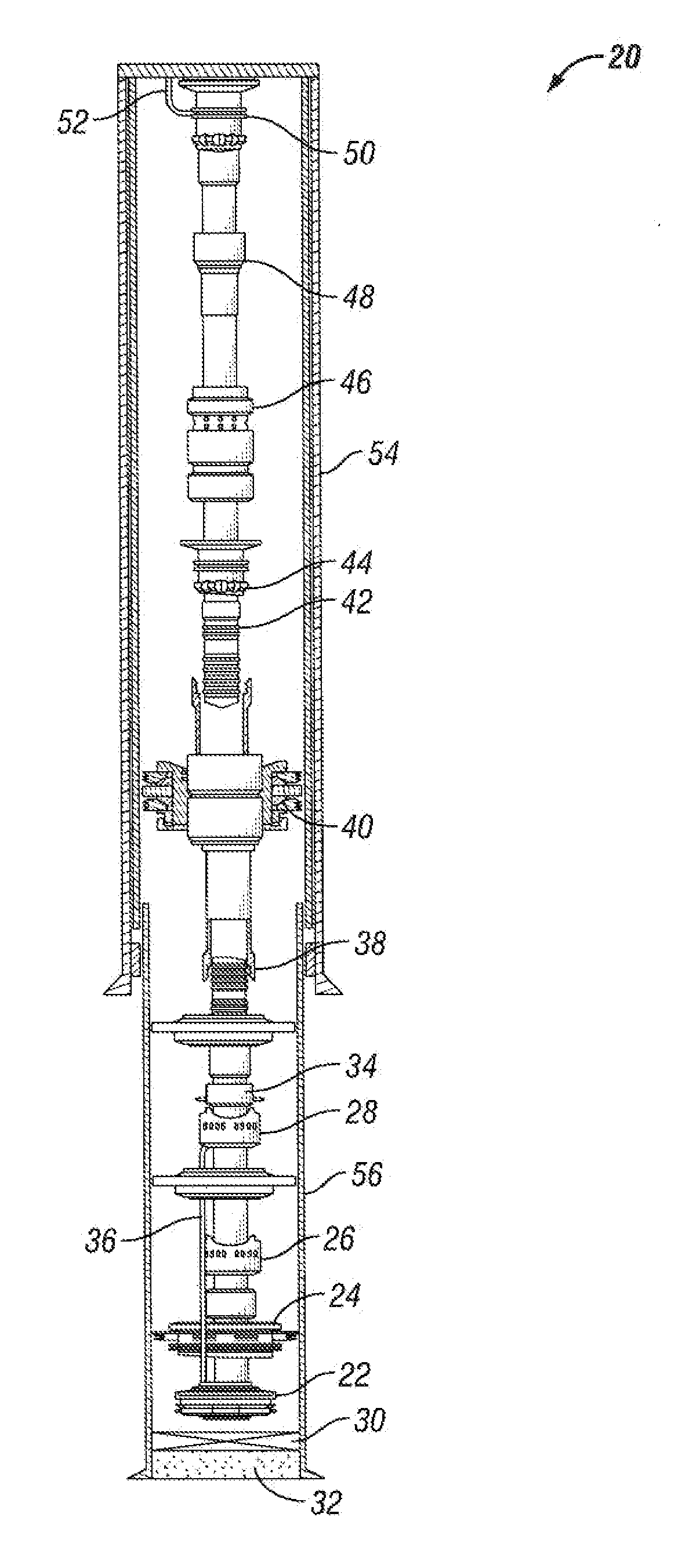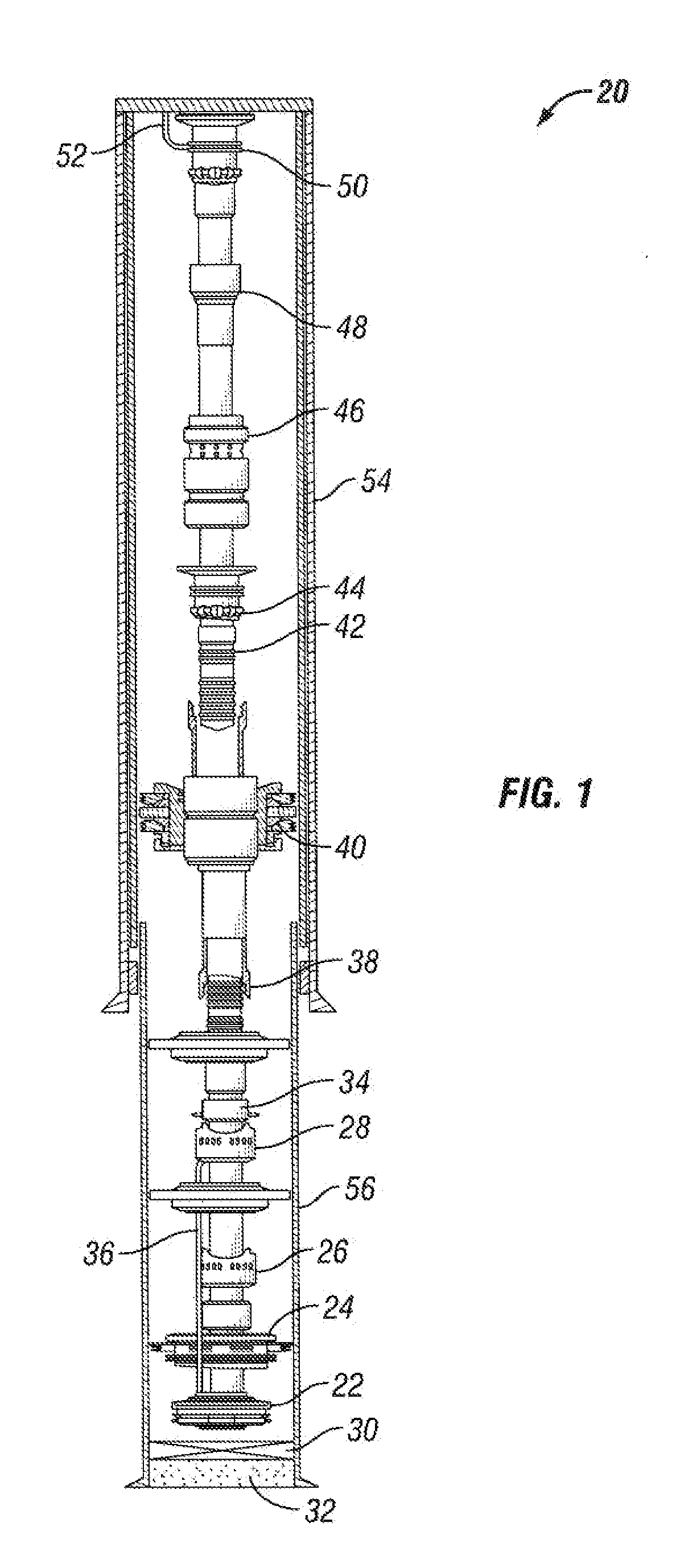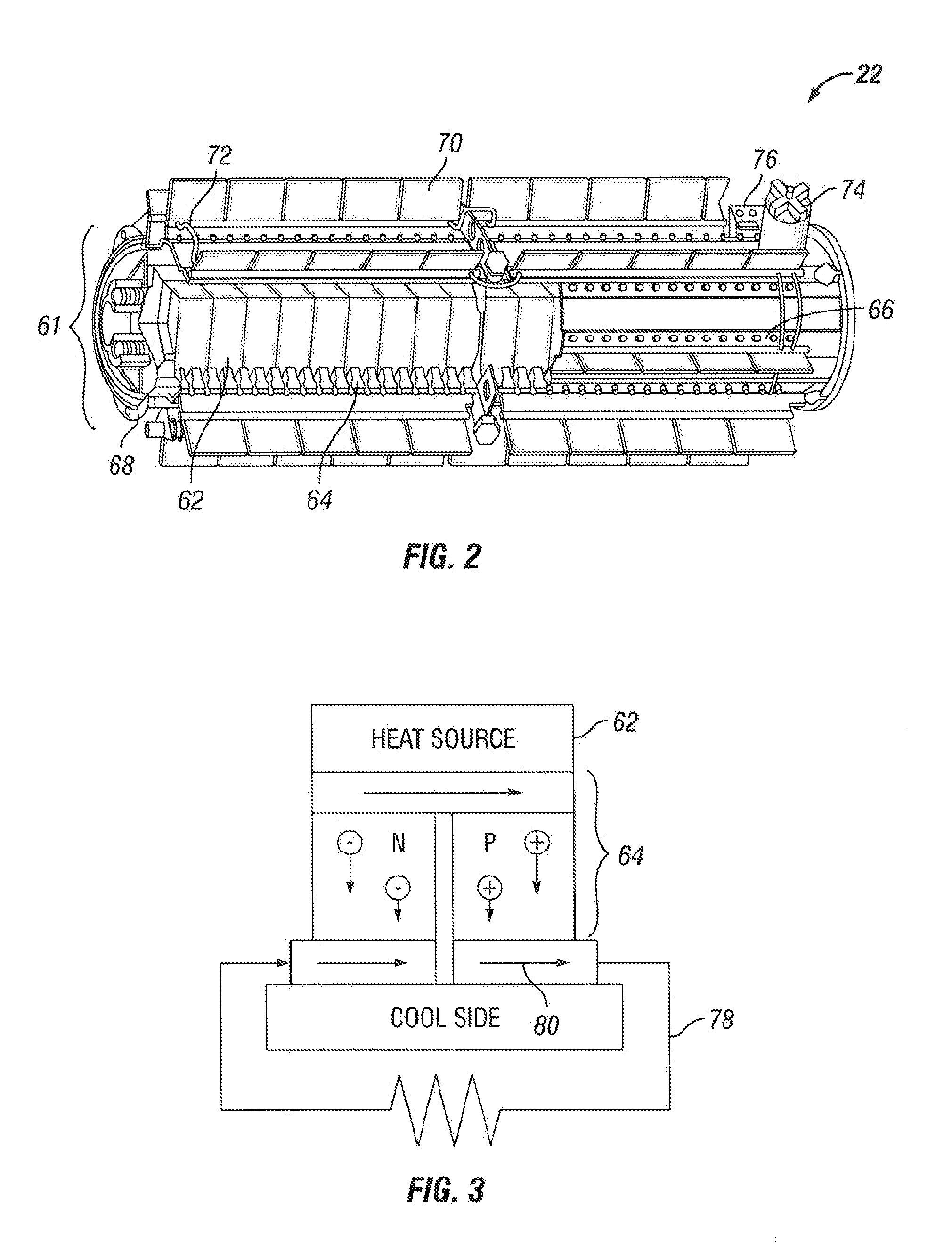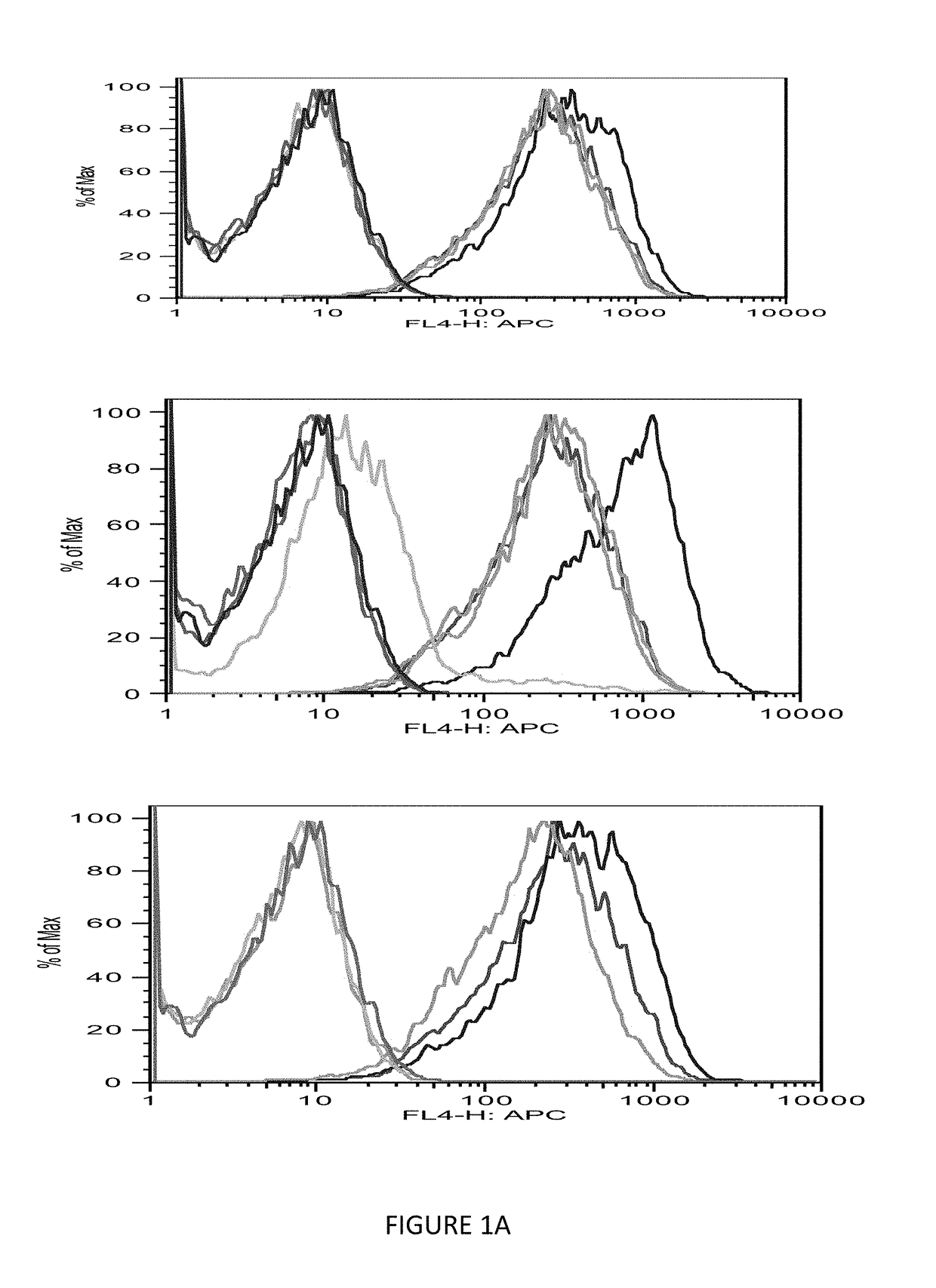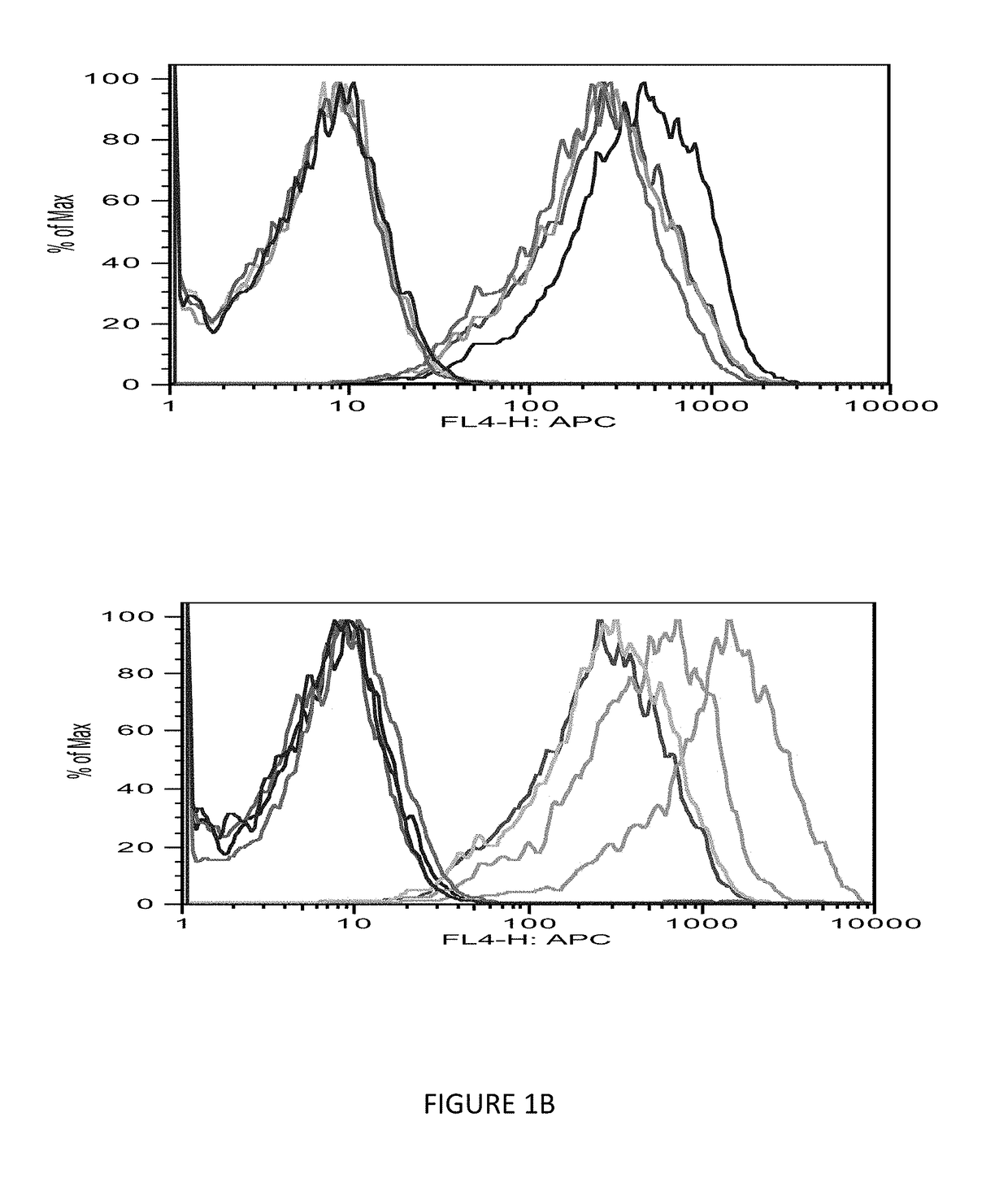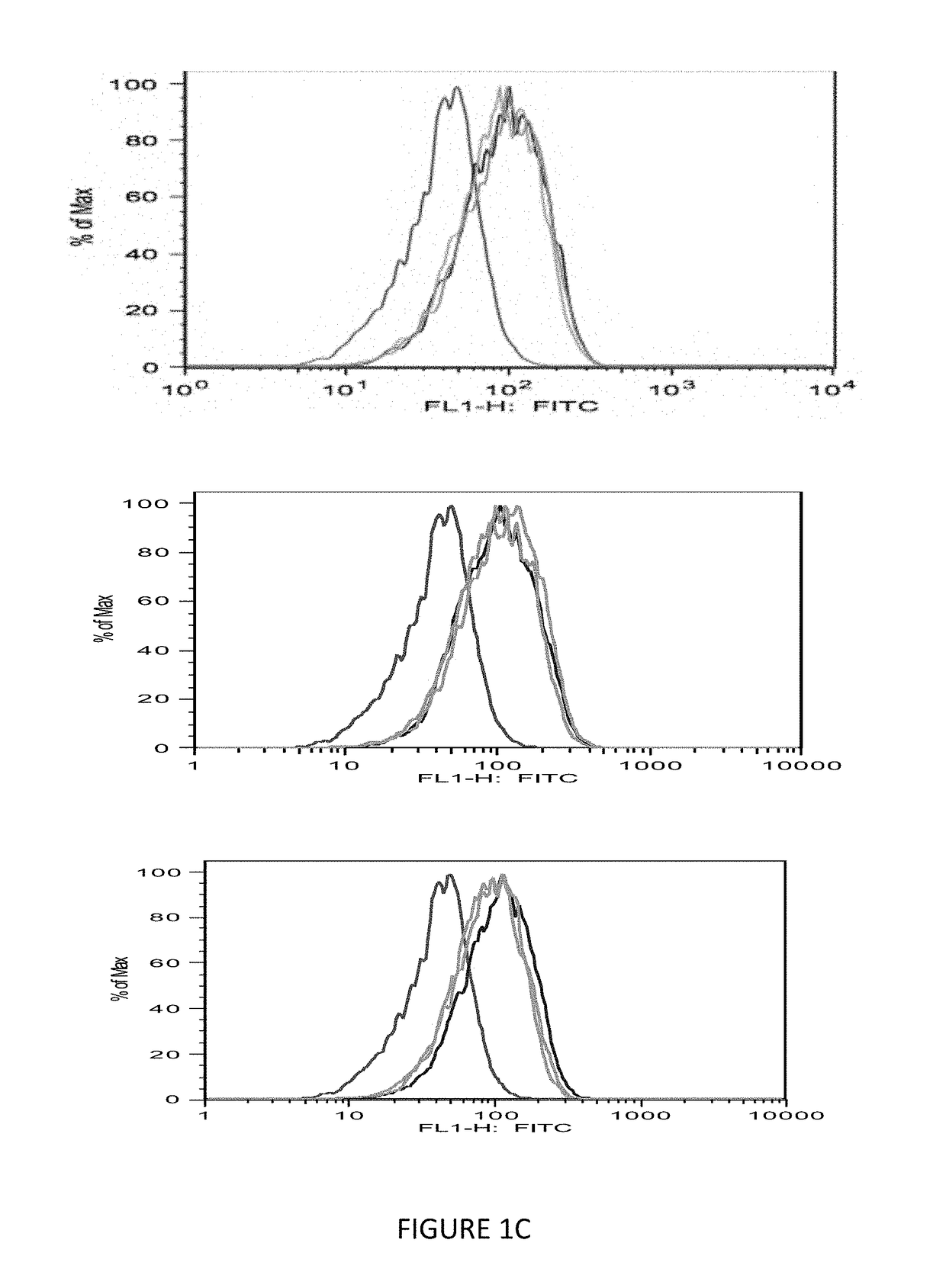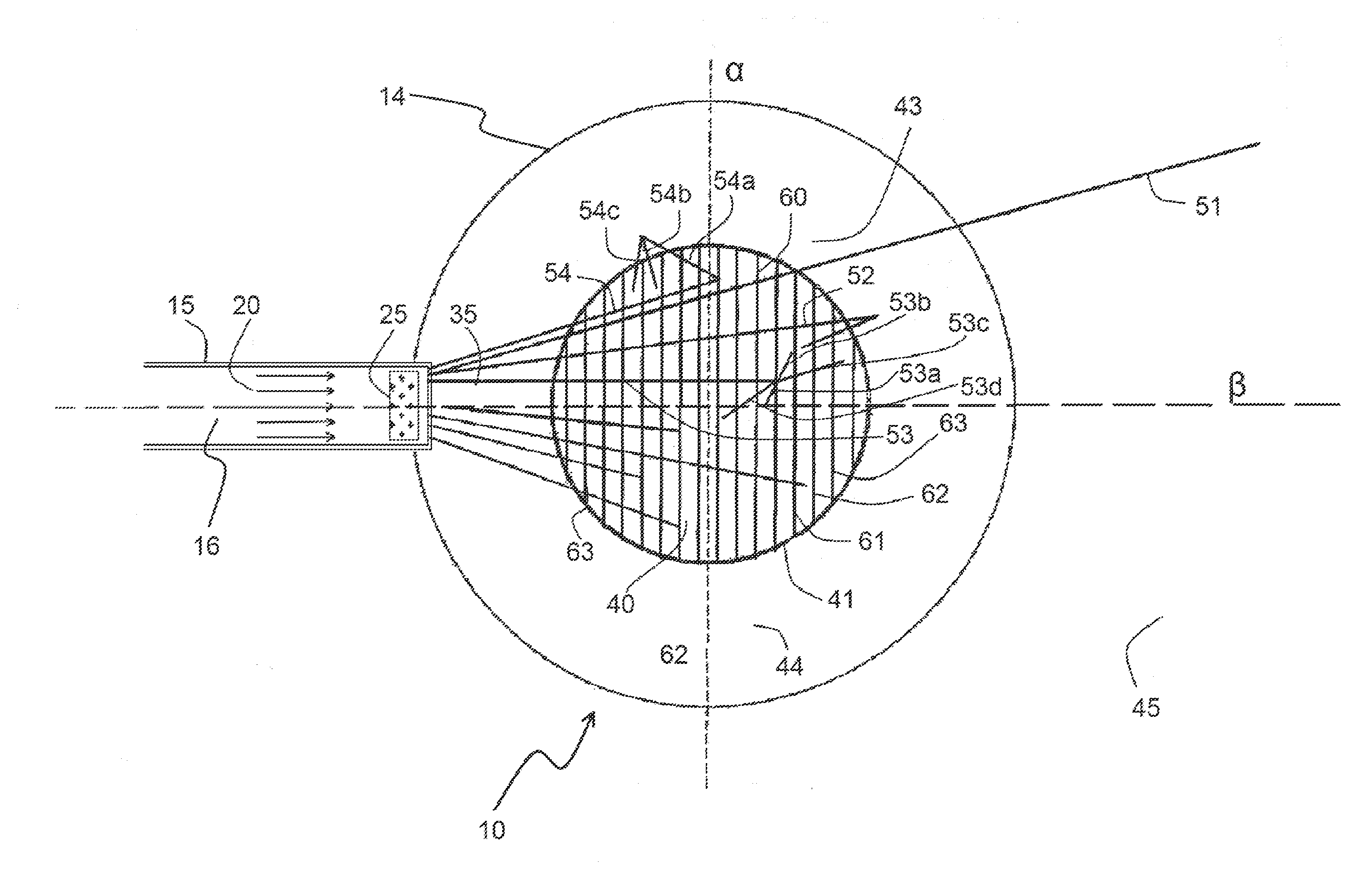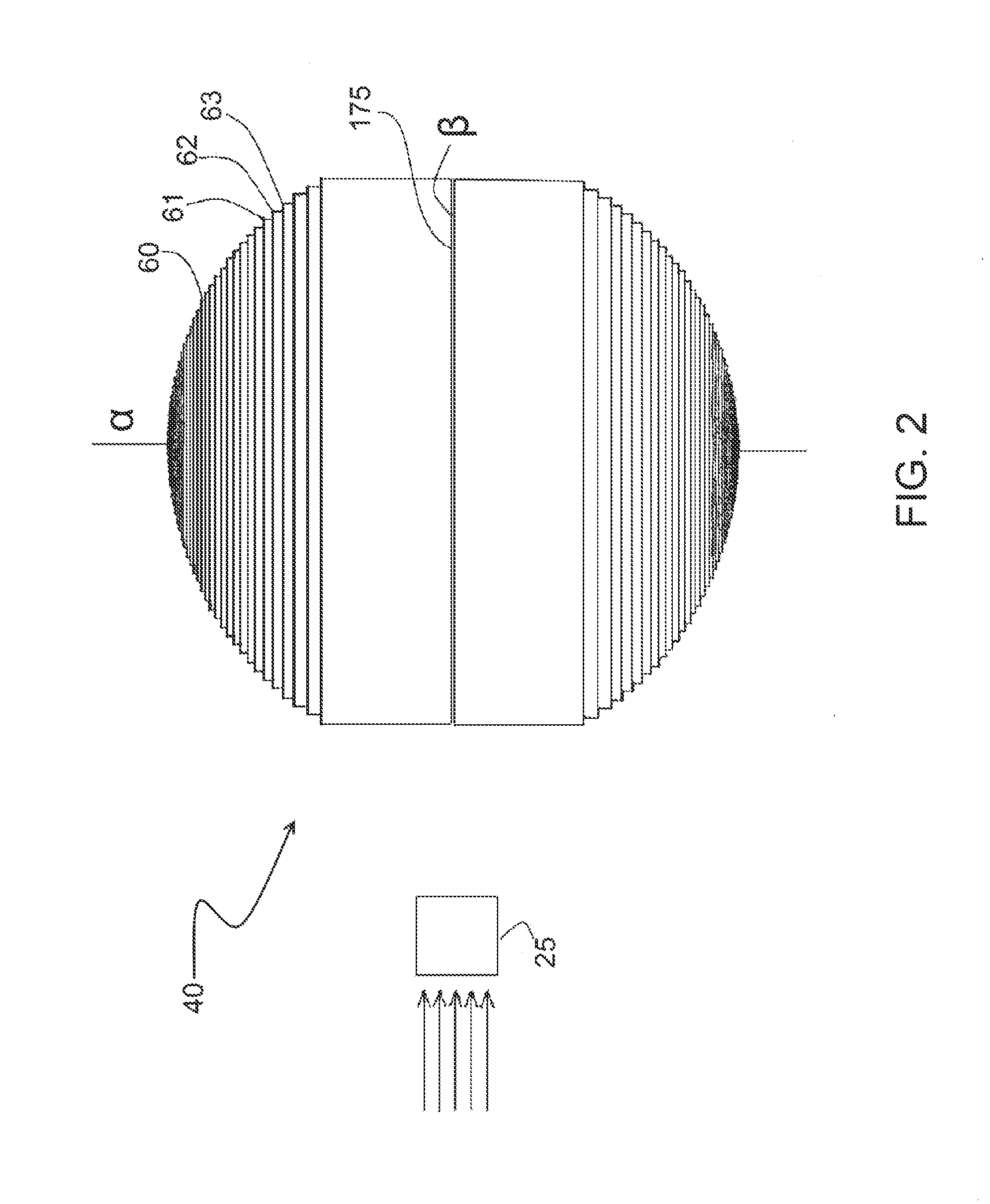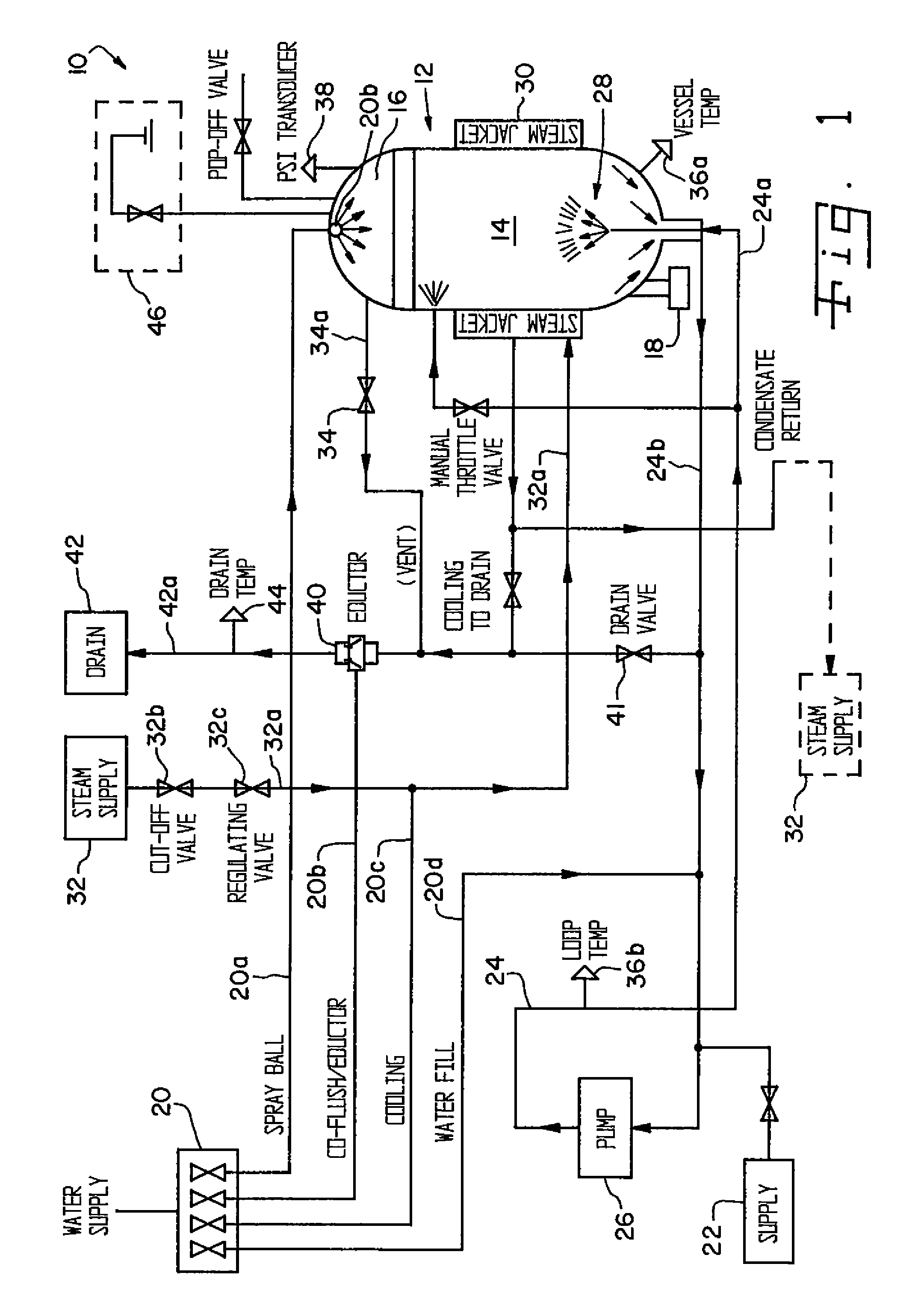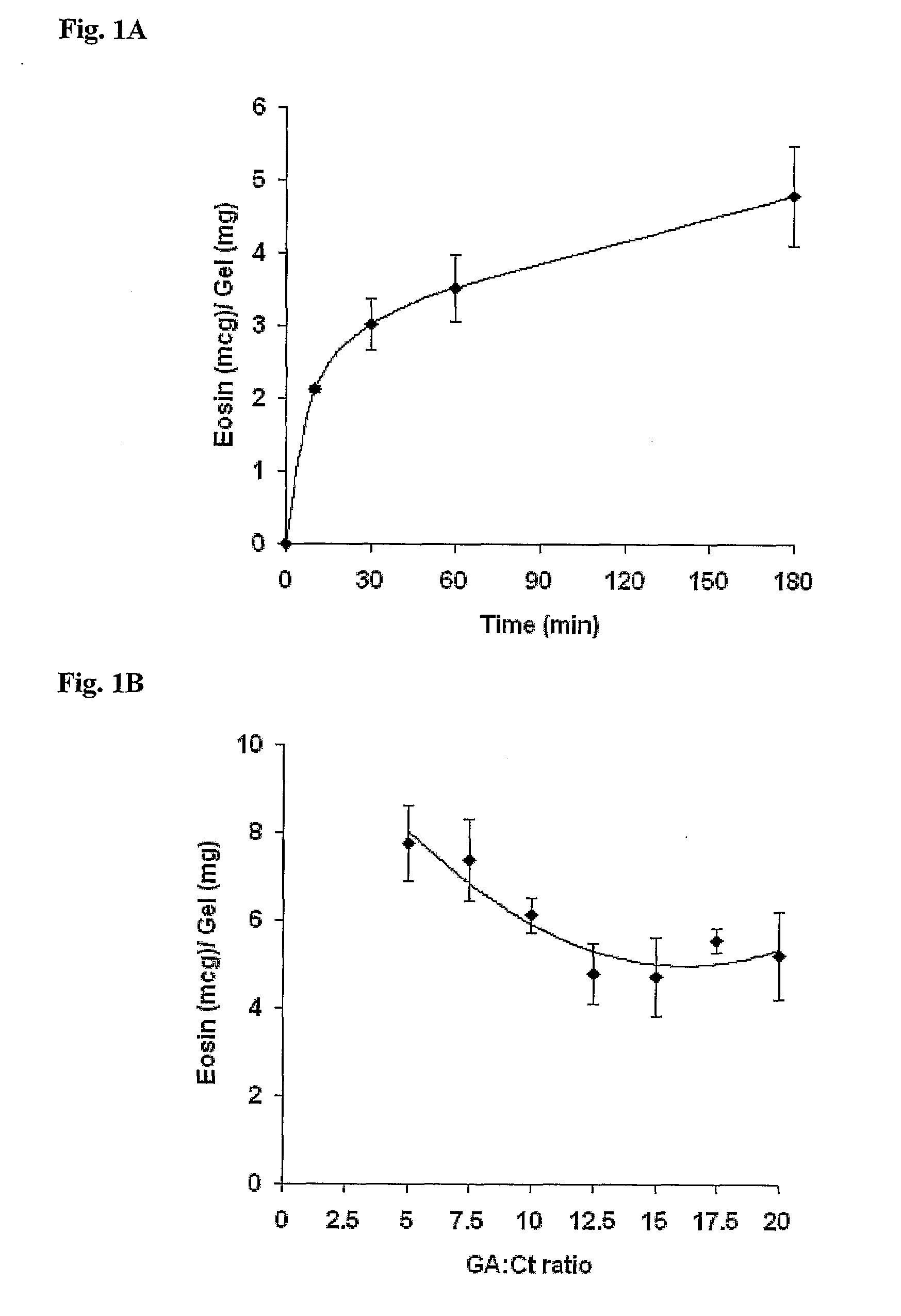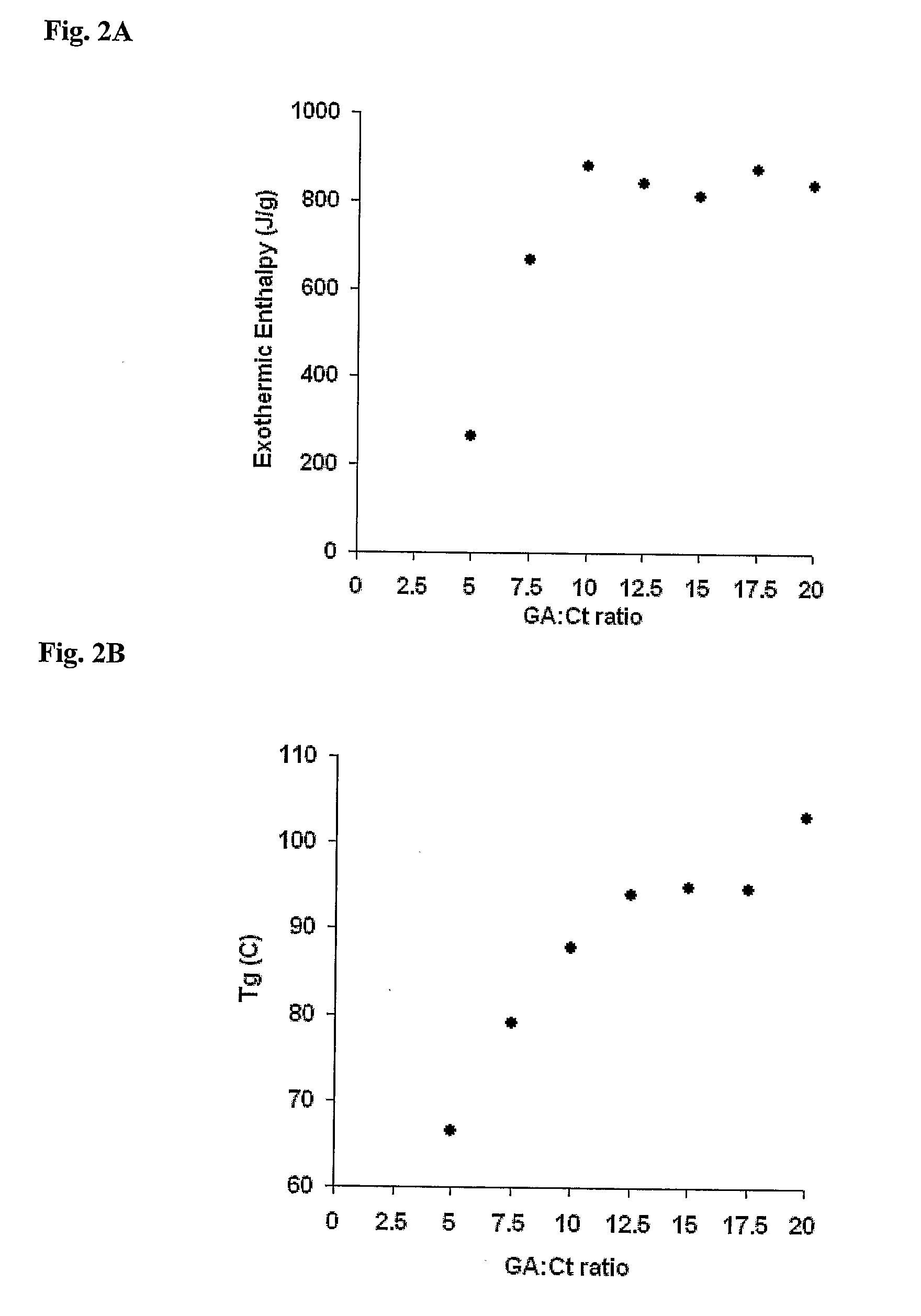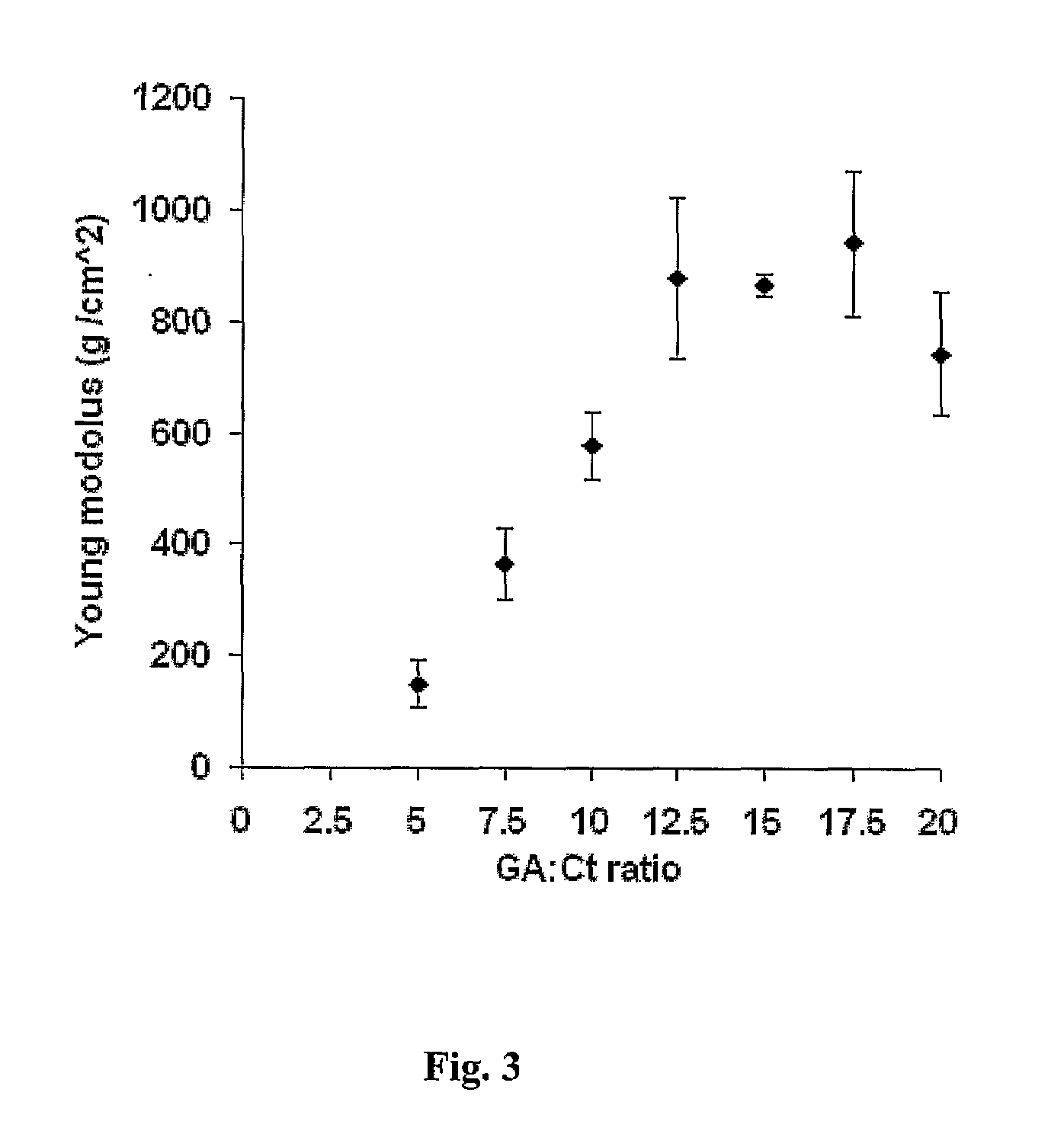Patents
Literature
Hiro is an intelligent assistant for R&D personnel, combined with Patent DNA, to facilitate innovative research.
271 results about "Radio isotopes" patented technology
Efficacy Topic
Property
Owner
Technical Advancement
Application Domain
Technology Topic
Technology Field Word
Patent Country/Region
Patent Type
Patent Status
Application Year
Inventor
Radioisotope: A version of a chemical element that has an unstable nucleus and emits radiation during its decay to a stable form.
Microparticle coated medical device
A drug-loaded microparticle is applied to a medical device for subsequent application to biological tissues. A method of formulating a drug-loaded microparticle and applying it to the surface of a medical device, such as a stent, is disclosed. The drug-loaded microparticle is formulated by combining a drug with various chemical solutions. Specified sizes of the microparticles and amounts of drug(s) contained within the microparticles may be varied by altering the proportions of the chemicals / solutions. In addition to various drugs, therapeutic substances and radioactive isotopes may also be loaded into the microparticles. The drug-loaded microparticle are suspended in a polymer solution forming a polymer matrix. The polymer matrix may be applied to the entire surface or only selected portions of the medical device via dipping, spraying or combinations thereof.
Owner:ABBOTT CARDIOVASCULAR
Bioabsorbable brachytherapy device
InactiveUS6575888B2Controlled release rateMinimally shieldsRadioactive preparation formsX-ray/gamma-ray/particle-irradiation therapyBrachytherapy deviceRadiopaque medium
A bioabsorbable brachytherapy device includes a tubular housing with sealed ends and an enclosed radioactive material. The radioactive material includes a radioisotope, such as palladium-103 or iodine-125. The tubular housing is made from a biocompatible and bioabsorbable polymeric material, and is sealed by means such as heat welding or solvent fixing. The device may further include a radiopaque medium and one or more therapeutic drugs.
Owner:FERRING BV
Indazole vitronectin receptor antagonist pharmaceuticals
InactiveUS6322770B1Improve stabilityBiocidePeptide/protein ingredientsUltrasound contrast mediaVitronectin
The present invention d ribs novel compounds of the formula: useful for the diagnosis and treatment of cancer, methods of imaging tumors in a patient, and methods of treating cancer in a patient. The present invention also provides novel compounds useful for monitoring therapeutic angiogenesis treatment and destruction of new angiogenic vasculature. The pharmaceuticals are comprised of a targeting moiety that binds to a receptor that is upregulated during angiogenesis, an optional linking group, and a therapeutically effective radioisotope or diagnostically effective imageable moiety. The imageable moiety is a gamma ray or positron emitting radioisotope, a magnetic resonance imaging contrast agent, an X-ray contrast agent, or an ultrasound contrast agent.
Owner:LANTHEUS MEDICAL IMAGING INC
Method for Production of Radioisotope Preparations and Their Use in Life Science, Research, Medical Application and Industry
The present invention relates to an universal method for the large scale production of high-purity carrier free or non carrier added radioisotopes by applying a number of “unit operations” which are derived from physics and material science and hitherto not used for isotope production. A required number of said unit operations is combined, selected and optimised individually for each radioisotope production scheme. The use of said unit operations allows a batch wise operation or a fully automated continuous production scheme. The radioisotopes produced by the inventive method are especially suitable for producing radioisotope-labelled bioconjugates as well as particles, in particular nanoparticles and microparticles.
Owner:EUROPEAN ORGANIZATION FOR NUCLEAR RESEARCH +1
Core-shell particle including signal-generating substance enclosed therein and process for producing the same
InactiveUS6881484B2Conveniently preparedSynthetic resin layered productsCellulosic plastic layered productsRadio isotopesPolymer science
A core-shell particle including a signal-generating substance therein, wherein the core-shell particle consists of (1) a core portion substantially made of a water-insoluble polymer compound; and (2) a shell portion substantially made of a water-soluble polymer compound having a reactive functional group, and covering a surface of the core portion in the manner of bristles of a brush; and the core portion and the shell portion are, as a whole, a block copolymer of a water-insoluble polymer and a water-soluble polymer, characterized in that the signal-generating substance is included in the core portion, is disclosed, and a process for producing the same is also disclosed.The core-shell particle including a signal-generating substance therein is useful as a labeling substance in which neither radioisotopes having handling restrictions nor unstable enzymes are required, a high sensitivity superior to fluorescent substances is achieved, and nonspecific absorption does not occur.
Owner:MITSUBISHI CHEM MEDIENCE +1
Bioabsorbable brachytherapy device
InactiveUS20010044567A1Radioactive preparation formsX-ray/gamma-ray/particle-irradiation therapyBrachytherapy deviceRadiopaque medium
A bioabsorbable brachytherapy device includes a tubular housing with sealed ends and an enclosed radioactive material. The radioactive material includes a radioisotope, such as palladium-103 or iodine-125. The tubular housing is made from a biocompatible and bioabsorbable polymeric material, and is sealed by means such as heat welding or solvent fixing. The device may further include a radiopaque medium and one or more therapeutic drugs.
Owner:FERRING BV
Complex combinatorial chemical libraries encoded with tags
Encoded combinatorial chemistry is provided, where sequential synthetic schemes are recorded using organic molecules, which define choice of reactant, and stage, as the same or different bit of information. Various products can be produced in the multi-stage synthesis, such as oligomers and synthetic non-repetitive organic molecules. Conveniently, nested families of compounds can be employed as identifiers, where number and / or position of a substituent define the choice. Alternatively, detectable functionalities may be employed, such as radioisotopes, fluorescers, halogens, and the like, where presence and ratios of two different groups can be used to define stage or choice. Particularly, pluralities of identifiers may be used to provide a binary or higher code, so as to define a plurality of choices with only a few detachable tags. The particles may be screened for a characteristic of interest, particularly binding affinity, where the products may be detachable from the particle or retained on the particle. The reaction history of the particles which are positive for the characteristic can be determined by the release of the tags and analysis to define the reaction history of the particle.
Owner:THE TRUSTEES OF COLUMBIA UNIV IN THE CITY OF NEW YORK +1
Proton accelerator complex for radio-isotopes and therapy
InactiveUS7554275B2Reduce maintenanceLarge energyMagnetic resonance acceleratorsTransit-time tubesRadio isotopesEngineering
A complex of proton accelerators, includes the following functionally interconnected components: a proton source, a cyclotron, at least one target, located either internally or externally to the cyclotron, a medium energy beam transport magnetic channel, a radiofrequency linear accelerator, a high energy beam transport channel towards an area dedicated to the irradiation of tumors with proton beams, as well as a modular system for supplying radio frequency power capable of feeding, independently two or more accelerating modules of the linac. An integrated computerized system controls the complex of accelerators so to carry out, either in alternation or simultaneously, both the production of radioisotopes—for medical, industrial and therapeutical purposes—and the therapeutical irradiation of, even deep seated tumors. The complex of accelerators produces proton beams which, applying the recently developed ‘spot scanning’ technique, are more suited for the tumor irradiation than the ones produced by cyclotrons and synchrotrons.
Owner:FOND PER ADROTERAPIA ONCOLOGICA TERA
Carrier-free 103pd brachytherapy seeds
InactiveUS20060052654A1Uniform radiation dosePretreated surfacesRadioactive preparation formsBrachytherapyIsotope
A brachytherapy seed comprising (a) carrier-free 103Pd isotope, (b) a substrate for the carrier-free 103Pd radioisotope, and (c) a casing for encapsulating the carrier-free 103Pd-laden substrate, is disclosed.
Owner:MEDI PHYSICS IN
Inorganic Nanoparticles of High Density to Destroy Cells In-Vivo
ActiveUS20110213192A1Safely employedEfficient emissionsBiocideHeavy metal active ingredientsHigh energy photonIsotope
The present application relates to novel excitable particles which can be used in the health sector. It more particularly relates to particles which can generate electrons and / or high energy photon when excited by ionizing radiations such as X- Rays, γ-Rays, radioactive isotope and / or electron beams, and to the uses thereof in health, in particular in human health. The inventive particles are made of an inorganic material comprising oxygen, in particular an oxide, said material having an adequate density, and can be activated in vitro, ex vivo, or in vivo, by controllable external excitation, in order to disturb, alter or destroy target cells, tissues or organs. The invention also relates to methods for the production of said particles, and to pharmaceutical or medical device compositions containing same.
Owner:NANOBIOTIX SA
High efficiency radio isotope energy converters using both charge and kinetic energy of emitted particles
InactiveUS20070273244A1Improve efficiencyPiezoelectric/electrostriction/magnetostriction machinesNuclear engineering problemsMechanical energyEngineering
An electrical energy generator with improved efficiency has a base on which is mounted an elastically deformable micromechanical element that has a section that is free to be displaced toward the base. An absorber of radioactively emitted particles is formed on the base or the displaceable section of the deformable element and a source is formed on the other of the displaceable section or the base facing the absorber across a small gap. The radioactive source emits charged particles such as electrons, resulting in a buildup of charge on the absorber, drawing the absorber and source together and storing mechanical energy as the deformable element is bent. When the force between the absorber and the source is sufficient to bring the absorber into effective electrical contact with the source, discharge of the charge between the source and absorber allows the deformable element to spring back, releasing the mechanical energy stored in the element. An electrical generator of improved efficiency includes a first energy source comprising a piezoelectric transducer secured to the deformable element to convert the released mechanical energy to electrical energy. A second energy source comprises a betavoltaic cell carried on the deformable element or electron collector cantilever beam to provide a direct current (DC) power output that can be added to the piezo-electric circuit's alternating current (AC) power output, such that there is a continuous power output that can be used to provide power to electronic circuits.
Owner:CORNELL RES FOUNDATION INC
Methods and apparatus for synthesizing imaging agents, and intermediates thereof
ActiveUS20130064769A1Organic chemistryRadioactive preparation carriersSynthesis methodsImaging agent
The present invention generally relates to methods and system for the synthesis of imaging agents, and precursors thereof. The methods may exhibit improved yields and may allow for the large-scale synthesis of imaging agents, including imaging agents comprising a radioisotope (e.g., 18F). Various embodiments of the invention may be useful as sensors, diagnostic tools, and the like. In some cases, methods for evaluating perfusion, including myocardial perfusion, are provided. Synthetic methods of the invention have also been incorporated into an automated synthesis unit to prepare and purify imaging agents that comprise a radioisotope. In some embodiments, the present invention provides a novel methods and systems comprising imaging agent 1, including methods of imaging in a subject comprising administering a composition comprising imaging agent 1 to a subject by injection, infusion, or any other known method, and imaging the area of the subject wherein the event of interest is located.
Owner:LANTHEUS MEDICAL IMAGING INC
Method and device for production of radio-isotopes from a target
InactiveUS20050069076A1Precise temperature controlEasy to useConversion outside reactor/acceleratorsRadio isotopesIsotope
The invention relates to a method for production of a radio-isotope (4) from a target (3), containing a precursor (1) of said radio-isotope (4), using a beam of accelerated particles, comprising the following method steps: preparation of a target (3), containing the precursor (1) of the radioisotope (4), irradiation of said target (3) within an irradiation chamber (10) with a beam of accelerated particles in order to induce the transmutation of the precursor (1) into the radio-isotope (4), heating said target (3) in order to bring about the efflux of the radio-isotope (4) from the target (3), collection of said radio-isotope (4), extracted as a gas and condensation of said radio-isotope (4) into a solid or liquid. The invention further relates to a device for carrying out the above method and use of the device and method for the production of palladium 103 from rhodium 103.
Owner:ION BEAM APPL
Methods and apparatus for synthesizing imaging agents, and intermediates thereof
ActiveUS8936777B2Ultrasonic/sonic/infrasonic diagnosticsOrganic chemistryRadio isotopesImaging agent
The present invention generally relates to methods and system for the synthesis of imaging agents, and precursors thereof. The methods may exhibit improved yields and may allow for the large-scale synthesis of imaging agents, including imaging agents comprising a radioisotope (e.g., 18F). Various embodiments of the invention may be useful as sensors, diagnostic tools, and the like. In some cases, methods for evaluating perfusion, including myocardial perfusion, are provided. Synthetic methods of the invention have also been incorporated into an automated synthesis unit to prepare and purify imaging agents that comprise a radioisotope. In some embodiments, the present invention provides a novel methods and systems comprising imaging agent 1, including methods of imaging in a subject comprising administering a composition comprising imaging agent 1 to a subject by injection, infusion, or any other known method, and imaging the area of the subject wherein the event of interest is located.
Owner:LANTHEUS MEDICAL IMAGING INC
Techniques for On-Demand Production of Medical Isotopes Such as Mo-99/Tc-99m and Radioactive Iodine Isotopes Including I-131
InactiveUS20110280356A1Minimize neutron absorptionReduce productionSpecific isotope recoveryConversion outside reactor/acceleratorsRadio isotopesNuclear engineering
A system for radioisotope production uses fast-neutron-caused fission of depleted or naturally occurring uranium targets in an irradiation chamber. Fast fission can be enhanced by having neutrons encountering the target undergo scattering or reflection to increase each neutron's probability of causing fission (m, f) reactions in U-238. The U-238 can be deployed as layers sandwiched between layers of neutron-reflecting material, or as rods surrounded by neutron-reflecting material.
Owner:GLOBAL MEDICAL ISOTOPE SYTEMS LLC +1
Target Device for Producing a Radioisotope
ActiveUS20080023645A1Conversion outside reactor/acceleratorsConversion in nuclear reactorParticle beamIrradiation
The present invention is related to an irradiation cell for producing a radioisotope of interest through the irradiation of a target material by a particle beam, comprising a metallic insert (2) forming a cavity (7) designed to house the target material and to be closed by an irradiation window, characterized in that said metallic insert (2) comprises at least two separate metallic parts (8,9) of different materials, being composed of at least a first part (8) comprising said cavity (7).
Owner:ION BEAM APPL
Apparatus and method for detection, location, and identification of gamma sources
InactiveUS20100168947A1High light yieldPrecise energy resolutionMaterial analysis by optical meansHandling using diaphragms/collimetersPhysicsElectric signal
An apparatus for detecting and determining a source azimuth for gamma radiation includes at least two scintillation crystals at angular offsets and directed toward a common plane of detection, photodetectors adjacent to each of the scintillation crystals for converting the light response of the scintillation crystals into distinct electrical signals, and a digital processing system configured to analyze spectral data from each electrical signal produced for each crystal. The digital processing system monitors a finite number of spectral windows corresponding to a selected set of radioisotopes, and uses one or more of the electrical signals to determine a signal intensity and a likely source azimuth for a detected radioisotope in the plane of detection. Another scintillation crystal directed outside of the common plane of detection may be used for three-dimensional detection. Related methods for detection and location of gamma ray sources are discussed.
Owner:SPACE MICRO A CORP OF DELAWARE
Modification of polymer surfaces as radioisotope carriers
A radioactive source is made by forming a polymer layer substantially free of inorganic polymers on a substrate material, and exposing the polymer layer to a radioactive isotope. The source is useful for inhibition of restenosis in coronary arteries after balloon angioplasty or stent implantation. In particular, a radioactive source of 32P, 90Y, or 144Ce is deposited on a poly(ethylene terephtalate) (PET) substrate. The polymer substrate was first coated with pH-sensitive hydrogel and then adsorbed various amount of phosphoric acid (PA) in aqueous solutions. The substrate was immersed in 32P, 90YCl3 or 144CeCl3 solutions, and then 32P, 90Y or 144Ce was deposited on the surface as 32PPO4, 90YPO4 or 144Ce PO4. Two different polyurethanes were used to encapsulate and seal the deposited isotopes on the surface to minimize the leakage of the isotope.
Owner:THE TRUSTEES OF COLUMBIA UNIV IN THE CITY OF NEW YORK
Electron linac for medical isotope production with improved energy efficiency and isotope recovery
ActiveUS20130083880A1Reduces effective operating voltageImprove machine efficiencyConversion outside reactor/acceleratorsLinear acceleratorsRadio isotopesBeam energy
A method and isotope linac system are provided for producing radio-isotopes and for recovering isotopes. The isotope linac is an energy recovery linac (ERL) with an electron beam being transmitted through an isotope-producing target. The electron beam energy is recollected and re-injected into an accelerating structure. The ERL provides improved efficiency with reduced power requirements and provides improved thermal management of an isotope target and an electron-to-x-ray converter.
Owner:UCHICAGO ARGONNE LLC
Large-scale preparation method of high-stability caesium removing adsorbent, product of preparation method and application of product
PendingCN108160048AEfficient removalEmission reductionOther chemical processesRadioactive contaminantsParticulatesSorbent
The invention relates to a large-scale preparation method of high stability caesium removing adsorbent, a product of the preparation method and application of the product, in particular to transitionmetal-stabilized ferrocyanide adsorbent supported by particulate inorganic oxide or activated carbon. The transition metal-stabilized ferrocyanide adsorbent comprises a particulate inorganic oxide carrier or a particulate activated carbon carrier, a transition metal-stabilized ferrocyanide layer which coats the inorganic oxide carrier or activated carbon carrier and a polymer material layer coating the transition metal-stabilized ferrocyanide layer. The adsorbent has high crushing strength and a low ion leaching rate. The invention also relates to the preparation method of the adsorbent and the application of the adsorbent in removal of radioisotope Cs ions, stable-isotope Cs ions, radioisotope Rb ions and stable-isotopic Rb ions.
Owner:TSINGHUA UNIV
Vitrified chemically bonded phosphate ceramics for immobilization of radioisotopes
A method of immobilizing a radioisotope and vitrified chemically bonded phosphate ceramic (CBPC) articles formed by the method are described. The method comprises combining a radioisotope-containing material, MgO, a source of phosphate, and optionally, a reducing agent, in water at a temperature of less than 100° C. to form a slurry; curing the slurry to form a solid intermediate CBPC article comprising the radioisotope therefrom; comminuting the intermediate CBPC article, mixing the comminuted material with glass frits, and heating the mixture at a temperature in the range of about 900 to about 1500° C. to form a vitrified CBPC article comprising the radioisotope immobilized therein.
Owner:UCHICAGO ARGONNE LLC
Particulate materials and compositions for radio therapy
Owner:XL SCI TECH
Inorganic nanoparticles of high density to destroy cells in-vivo
ActiveUS8845507B2Safely employedEfficient emissionsBiocideHeavy metal active ingredientsRadio isotopesHigh energy photon
The present application relates to novel excitable particles which can be used in the health sector. It more particularly relates to particles which can generate electrons and / or high energy photon when excited by ionizing radiations such as X-Rays, γ-Rays, radioactive isotope and / or electron beams, and to the uses thereof in health, in particular in human health. The inventive particles are made of an inorganic material comprising oxygen, in particular an oxide, said material having an adequate density, and can be activated in vitro, ex vivo, or in vivo, by controllable external excitation, in order to disturb, alter or destroy target cells, tissues or organs. The invention also relates to methods for the production of said particles, and to pharmaceutical or medical device compositions containing same.
Owner:NANOBIOTIX SA
Alpha or beta emitters attached to fragments in radioimmunotherapy
InactiveUS6667024B1Minimizing damageGood tumor uptakeOrganic active ingredientsAntinoxious agentsAntigen Binding FragmentBinding site
The present invention relates to radioimmunoconjugates useful in targeted radioimmunotherapy and methods of treating a patient using radioimmunoconjugates. The radioimmunoconjugates of the present invention comprise an alpha- or beta-emitting radioisotope and a binding site linked to or on an antigen-binding fragment of an antibody which specifically binds to a tumor-associated antigen. The methods of treating a patient can include administering one or more clearing agents to the patient in conjunction with the radioimmunoconjugate of the present invention, as well as subsequently grafting bone-marrow or autologous stem-cells to the patient.
Owner:CENT FOR MOLECULAR BIOLOGY & MEDICINE
Apparatus, System and Method For Generating Power In A Wellbore
An apparatus, system and method provides electrical power in a subterranean well. A radioisotope thermoelectric generator may be positioned and installed in a downhole location in a wellbore. The location of the radioisotope thermoelectric generator may be within a completion string. A radioisotope thermoelectric generator comprises a core having a radioisotope for producing heat, and a thermocouple. The thermocouple comprises at least two different metals, and is positioned adjacent to the core. The radioisotope thermoelectric generator flows heat from the core to the thermocouple to produce electricity that may be stored in an energy storage device, or used to power a component. The produced electrical power may be employed to activate downhole sensors, valves, or wireless transmitters associated with the operation and production of an oil or gas well.
Owner:CHEVROU USA INC
Brachytherapy method of treating skin tumors using a tailor-made radioactive source
ActiveUS20110201866A1Easy to controlPrevent skinAntineoplastic agentsRadiation therapyMedicineBrachytherapy
The present invention refers to a method of treating a cancerous or non-cancerous skin lesion of a subject, e.g. a human patient, by epidermal radioisotope therapy, a specialized type of brachytherapy, comprising the steps of (a) defining and marking an area of skin to be treated; (b) covering said area with a protective layer, e.g. a protective film or foil; (c) applying a tailor-made radioactive source by applying a layer of a radioactive source material on said protective layer, such that said area is covered by said material while any area not to be treated is spared; and (d) removing the radioactive source after a predetermined time period of irradiation.
Owner:ONCOBETA INT GMBH
Monoclonal antigen-binding proteins to intracellular oncogene products
ActiveUS20180134804A1Antibody mimetics/scaffoldsImmunoglobulins against cell receptors/antigens/surface-determinantsRadio isotopesIntravenous gammaglobulin
Antigen binding proteins specific for an HLA-A2 restricted Ras peptide are disclosed. The antigen binding proteins encompass antibodies in a variety of forms, including full-length antibodies, substantially intact antibodies, Fab fragments, F(ab′)2 fragments, and single chain Fv fragments. Fusion proteins, such as scFv fusions with immunoglobulin or T-cell receptor domains, and bispecific antibodies incorporating the specificity of the antigen binding region for each peptide are also contemplated by the disclosure. Furthermore, immunoconjugates may include antibodies to which is linked a radioisotope, fluorescent or other detectable marker, cytotoxin, or other molecule are also encompassed by the disclosure. Among other things, immunoconjugates can be used for delivery of an agent to elicit a therapeutic effect or to facilitate an immune effector function.
Owner:MEMORIAL SLOAN KETTERING CANCER CENT +1
Accelerator-based method of producing isotopes
ActiveUS20110194662A1Reduce riskReduce the amount requiredConversion outside reactor/acceleratorsChemical treatmentRadio isotopes
The invention provides a method using accelerators to produce radio-isotopes in high quantities. The method comprises: supplying a “core” of low-enrichment fissile material arranged in a spherical array of LEU combined with water moderator. The array is surrounded by substrates which serve as multipliers and moderators as well as neutron shielding substrates. A flux of neutrons enters the low-enrichment fissile material and causes fissions therein for a time sufficient to generate desired quantities of isotopes from the fissile material. The radio-isotopes are extracted from said fissile material by chemical processing or other means.
Owner:UCHICAGO ARGONNE LLC
System for treating infectious waste matter
InactiveUS7910788B2Efficient removalSafely treating and disposingSolid waste disposalTransportation and packagingRadio isotopesEnvironmental engineering
Owner:DIGESTOR LLC
Biodegradable composite for internal local radiotherapy
InactiveUS20090304587A1Remove of complexity and discomfortEliminate needRadioactive preparation carriersAntineoplastic agentsLocal radiotherapySimple Organic Compounds
The present invention discloses composites which generally comprise a polymeric matrix and a hydrophobic organic compound which is associated with a radioisotope. The composites are biocompatible and biodegradable hydrogels suitable for use in internal local radiation therapy
Owner:YISSUM RES DEV CO OF THE HEBREWUNIVERSITY OF JERUSALEM LTD +1
Features
- R&D
- Intellectual Property
- Life Sciences
- Materials
- Tech Scout
Why Patsnap Eureka
- Unparalleled Data Quality
- Higher Quality Content
- 60% Fewer Hallucinations
Social media
Patsnap Eureka Blog
Learn More Browse by: Latest US Patents, China's latest patents, Technical Efficacy Thesaurus, Application Domain, Technology Topic, Popular Technical Reports.
© 2025 PatSnap. All rights reserved.Legal|Privacy policy|Modern Slavery Act Transparency Statement|Sitemap|About US| Contact US: help@patsnap.com
